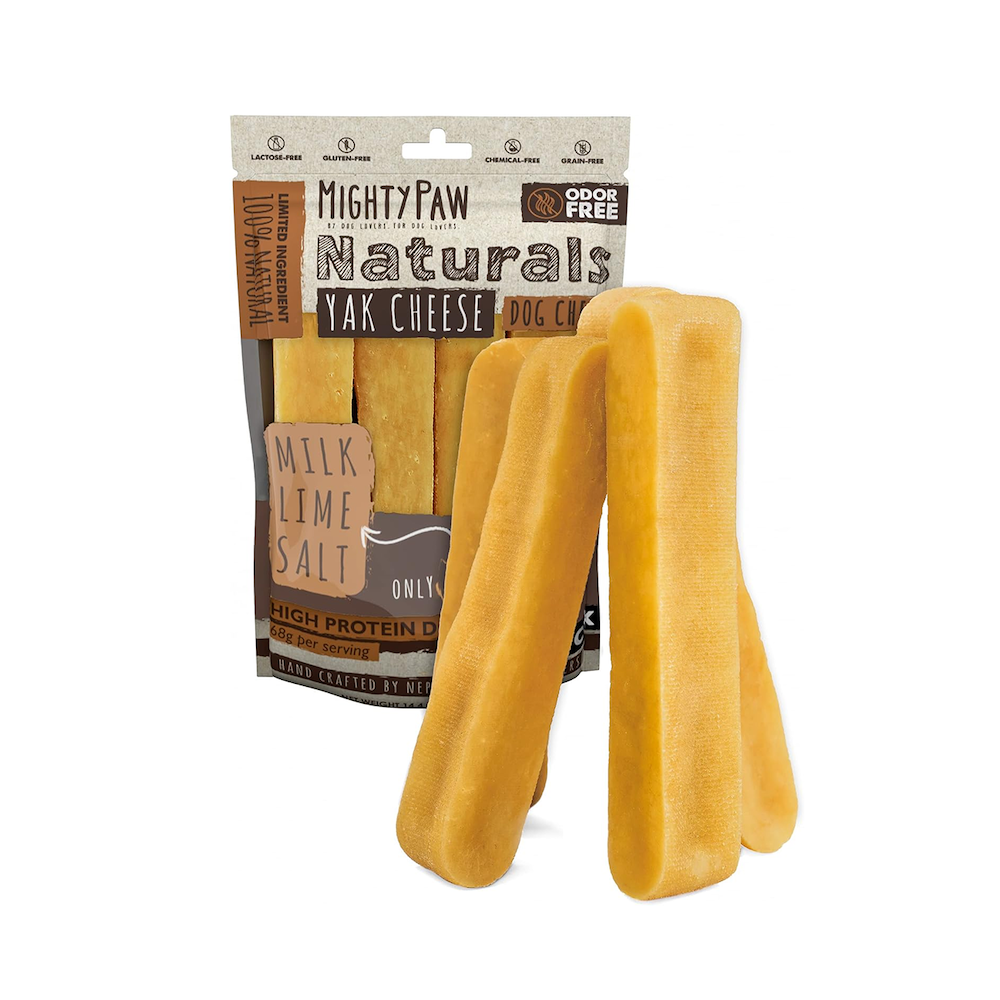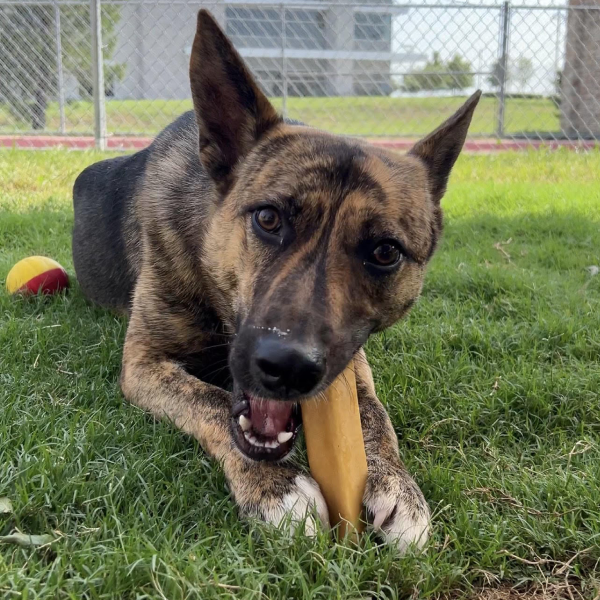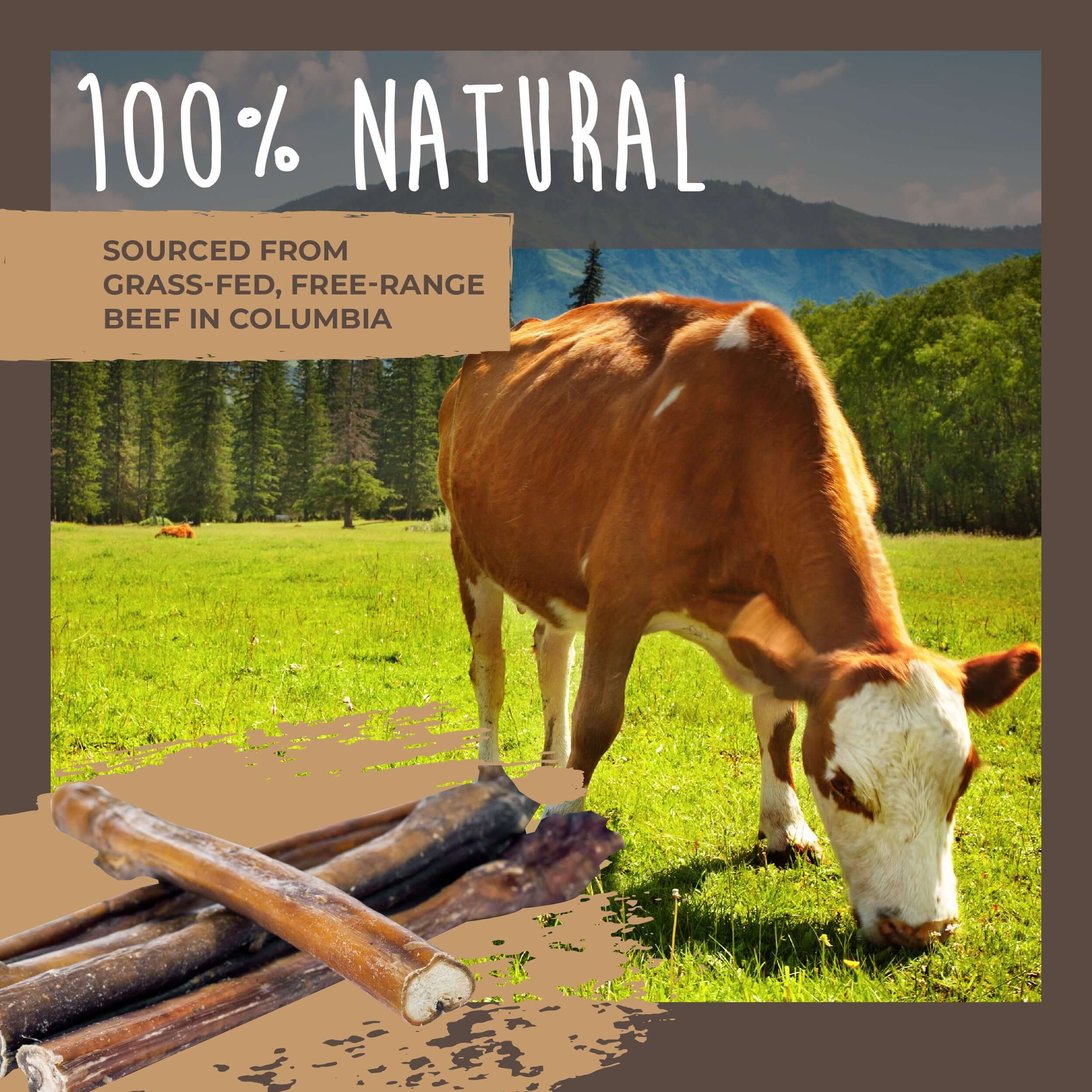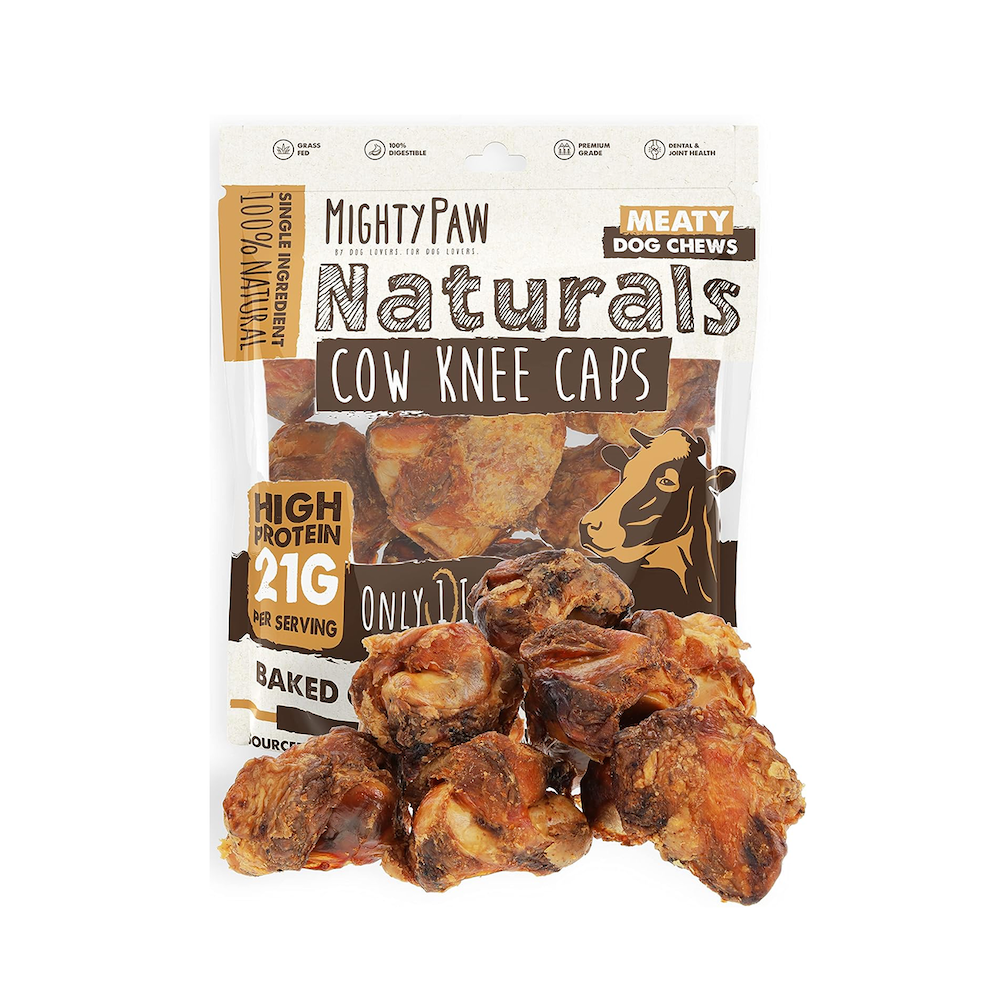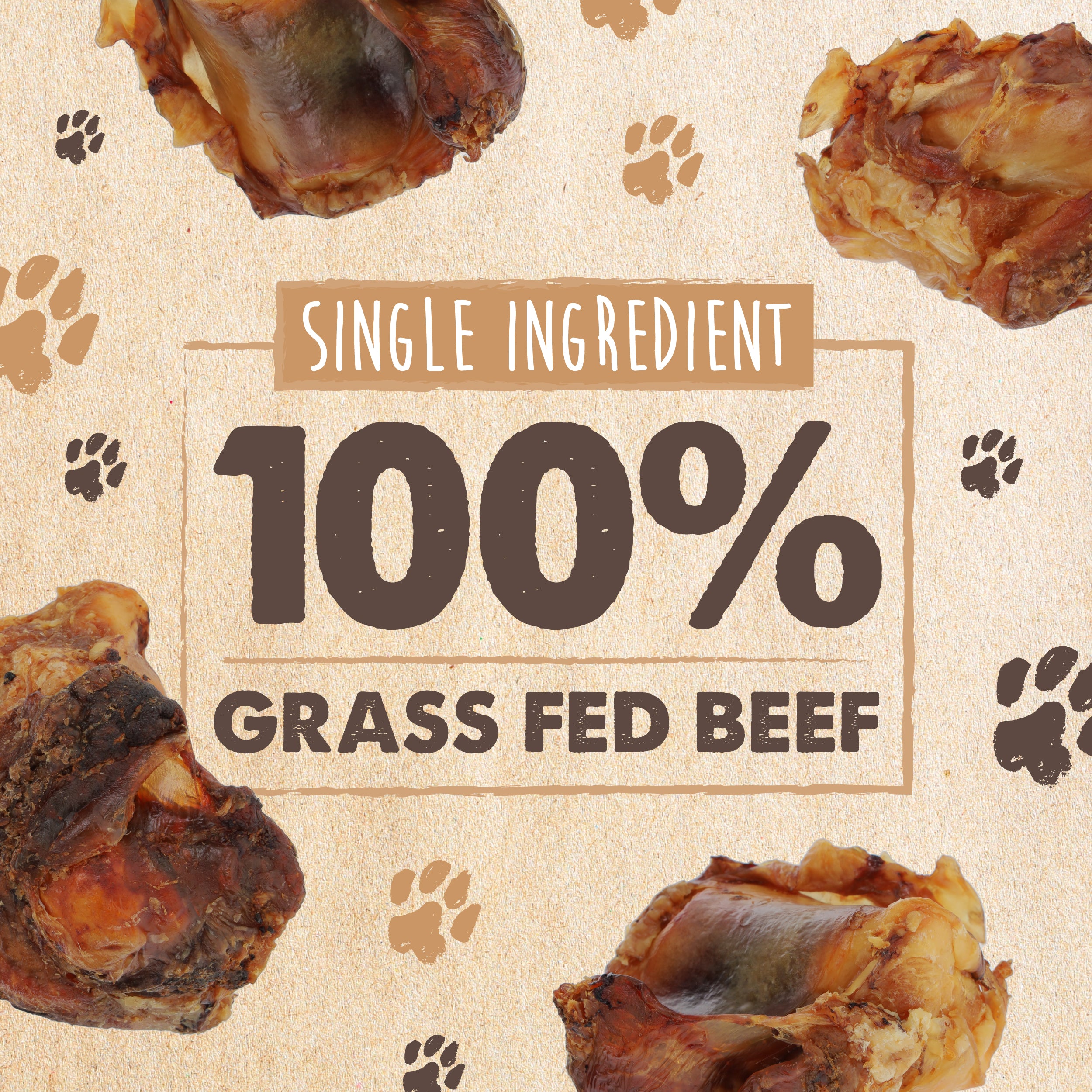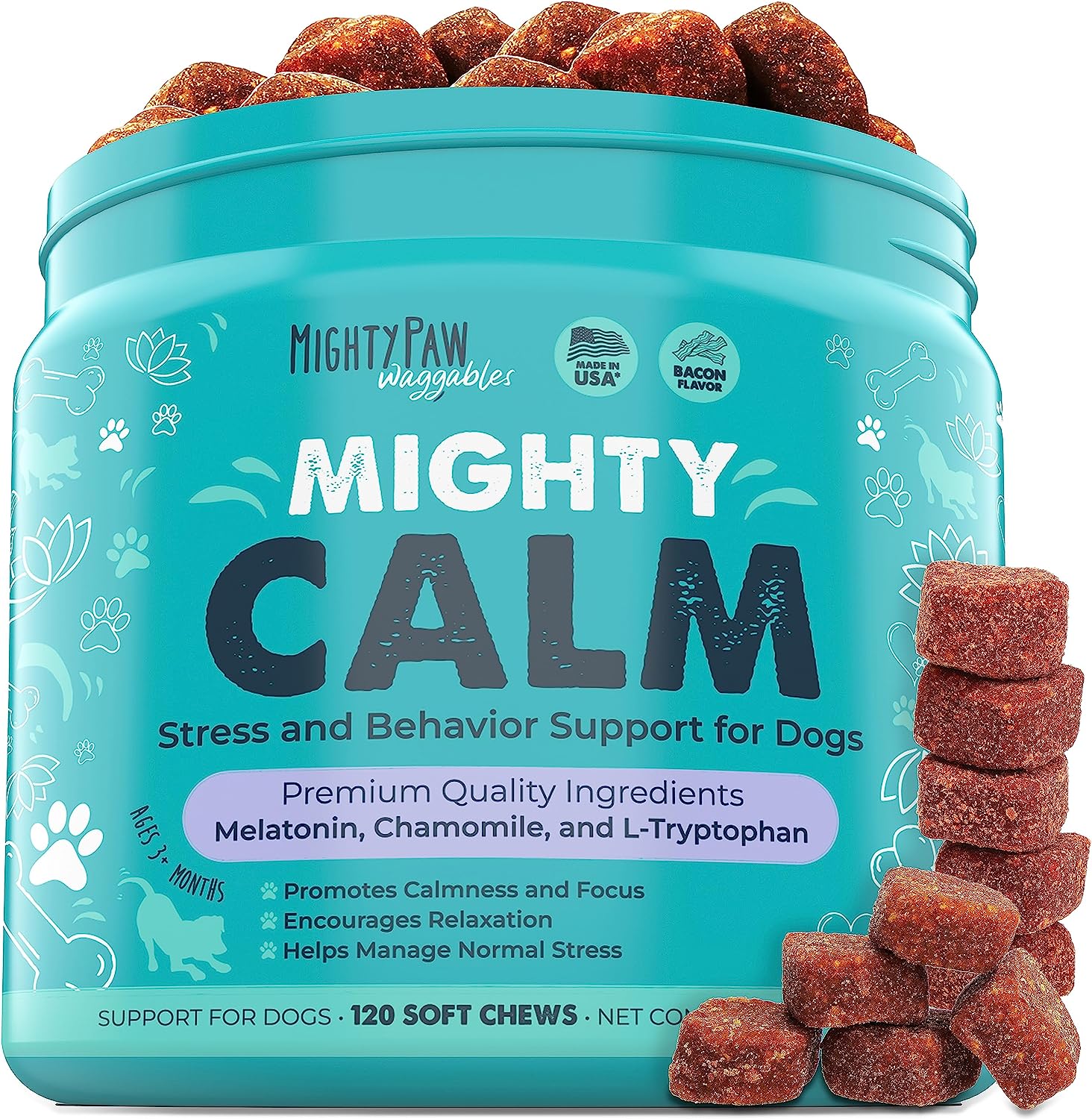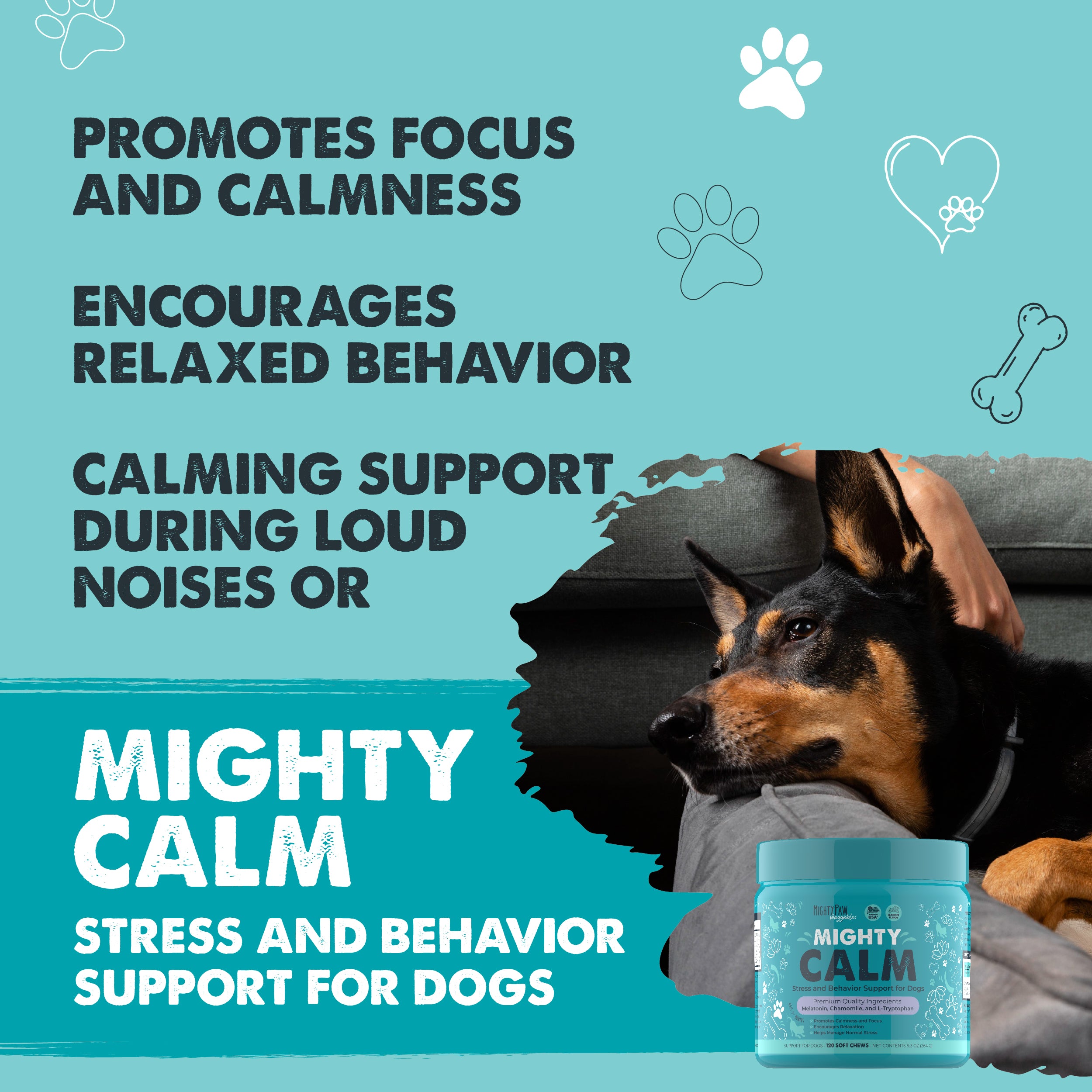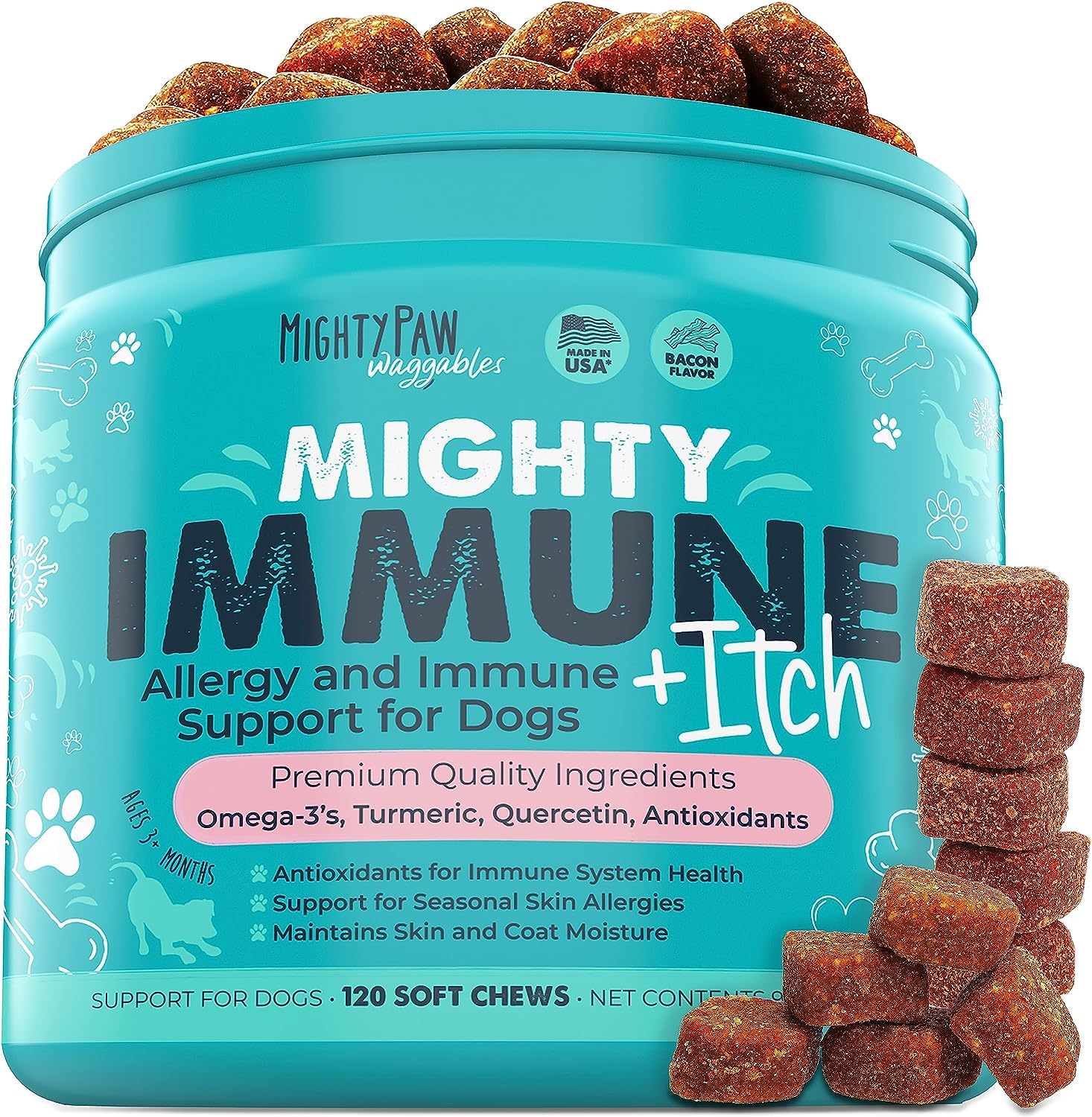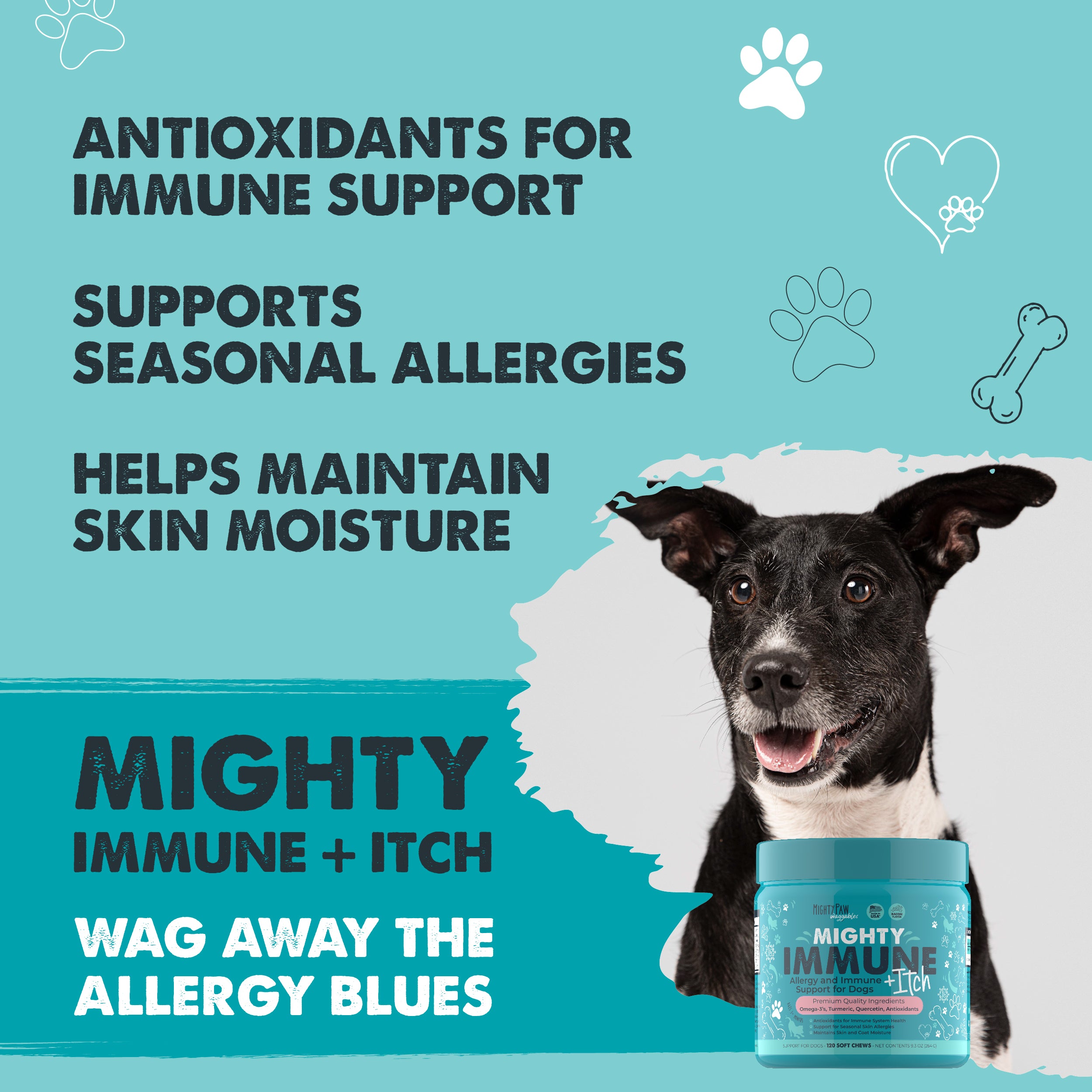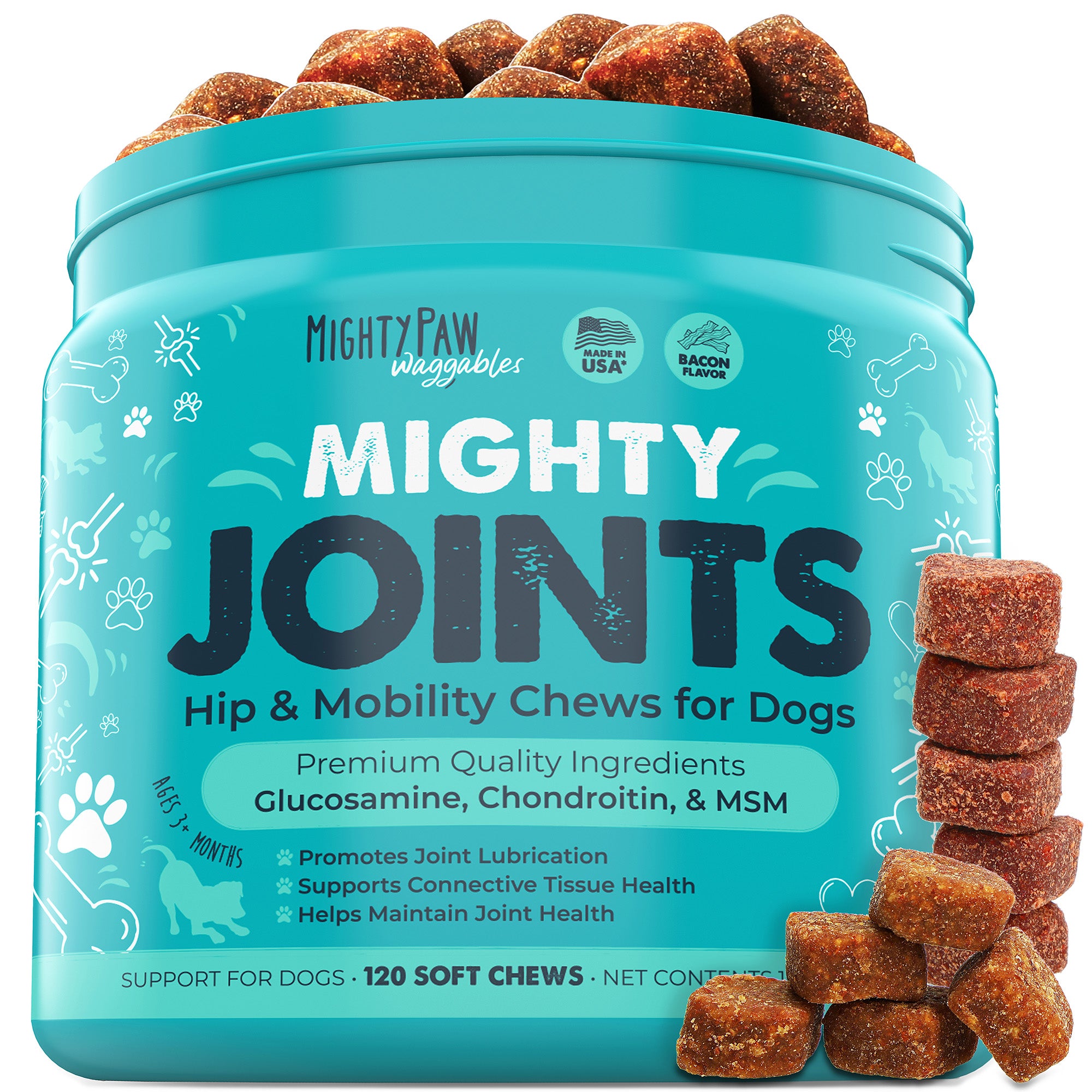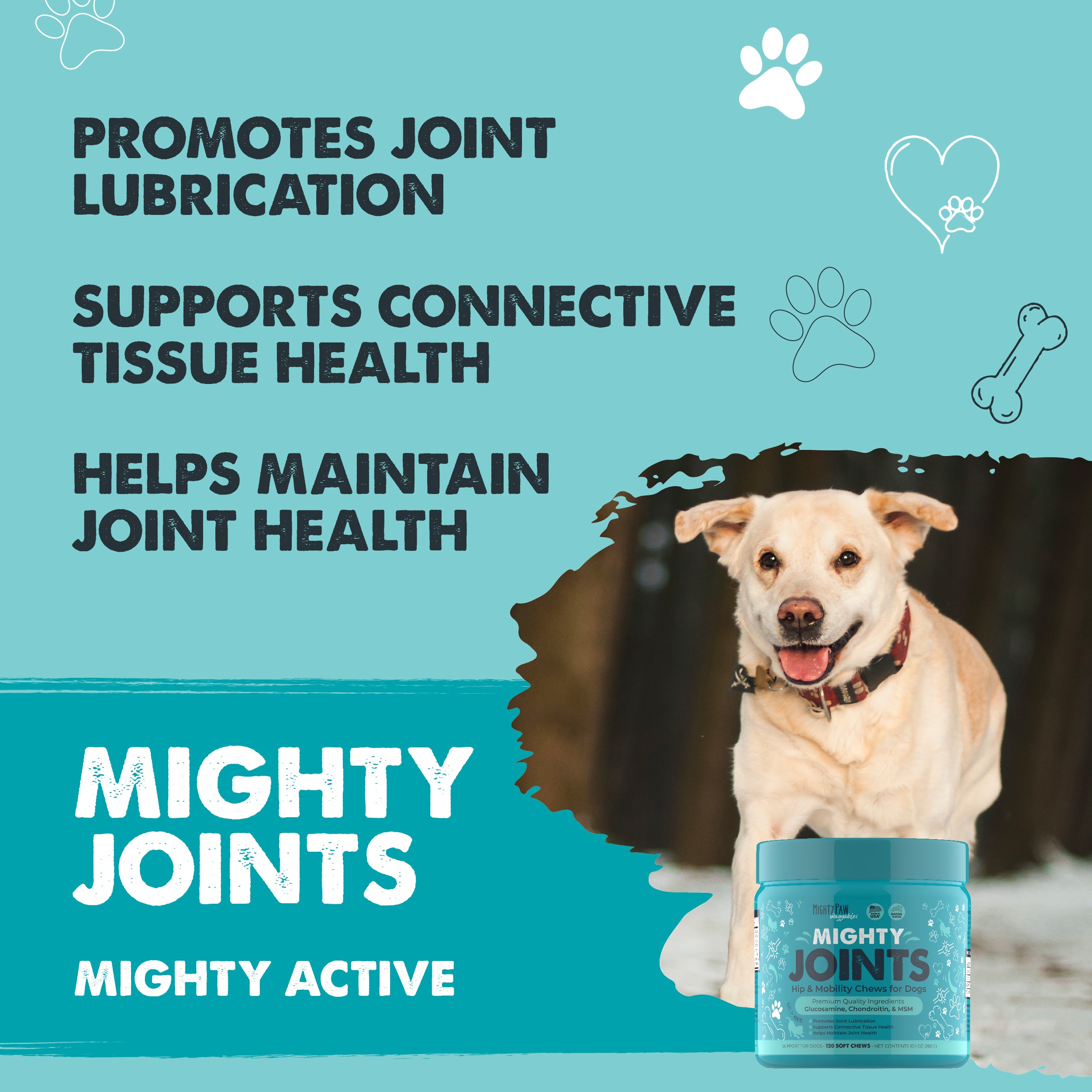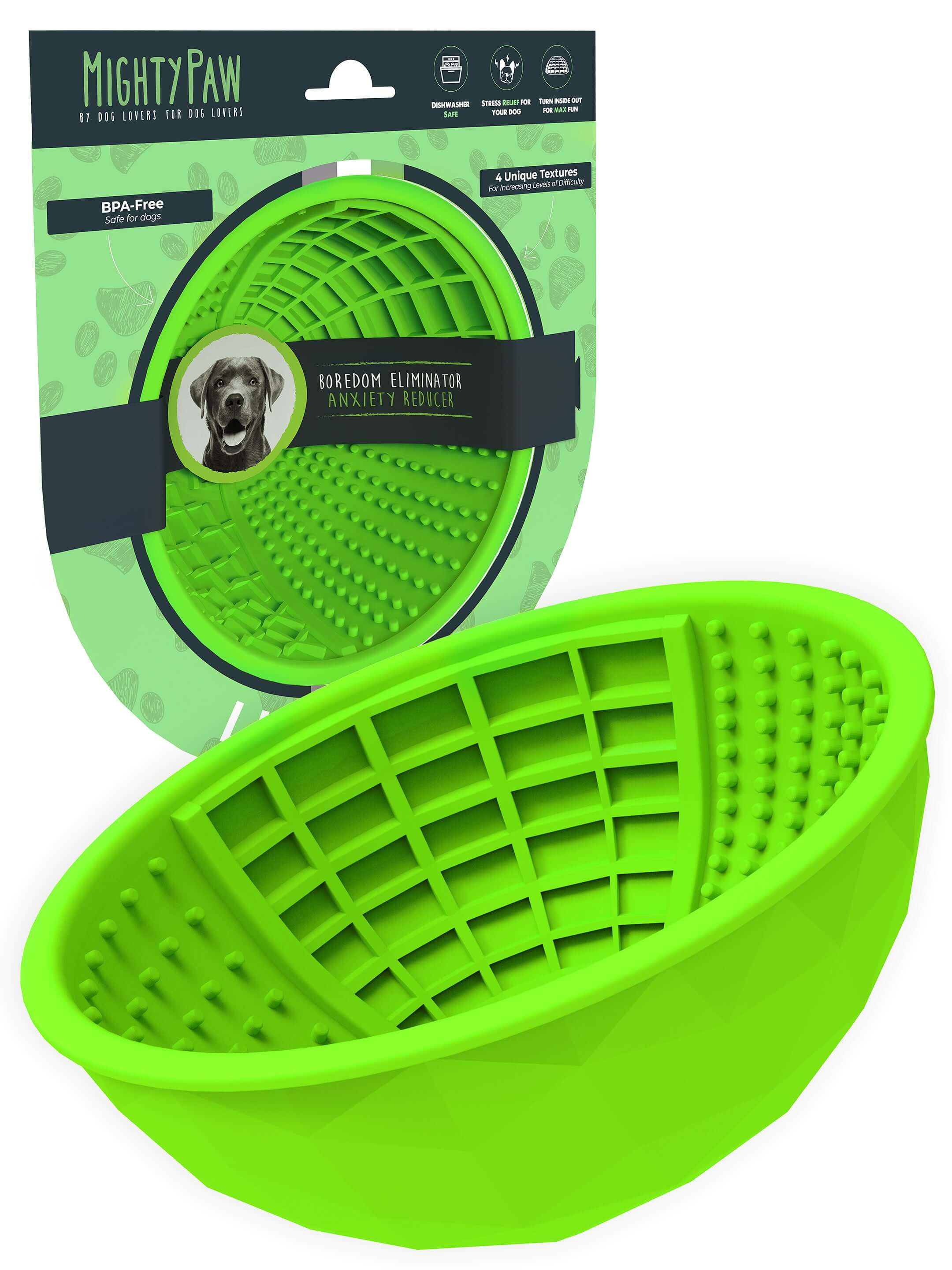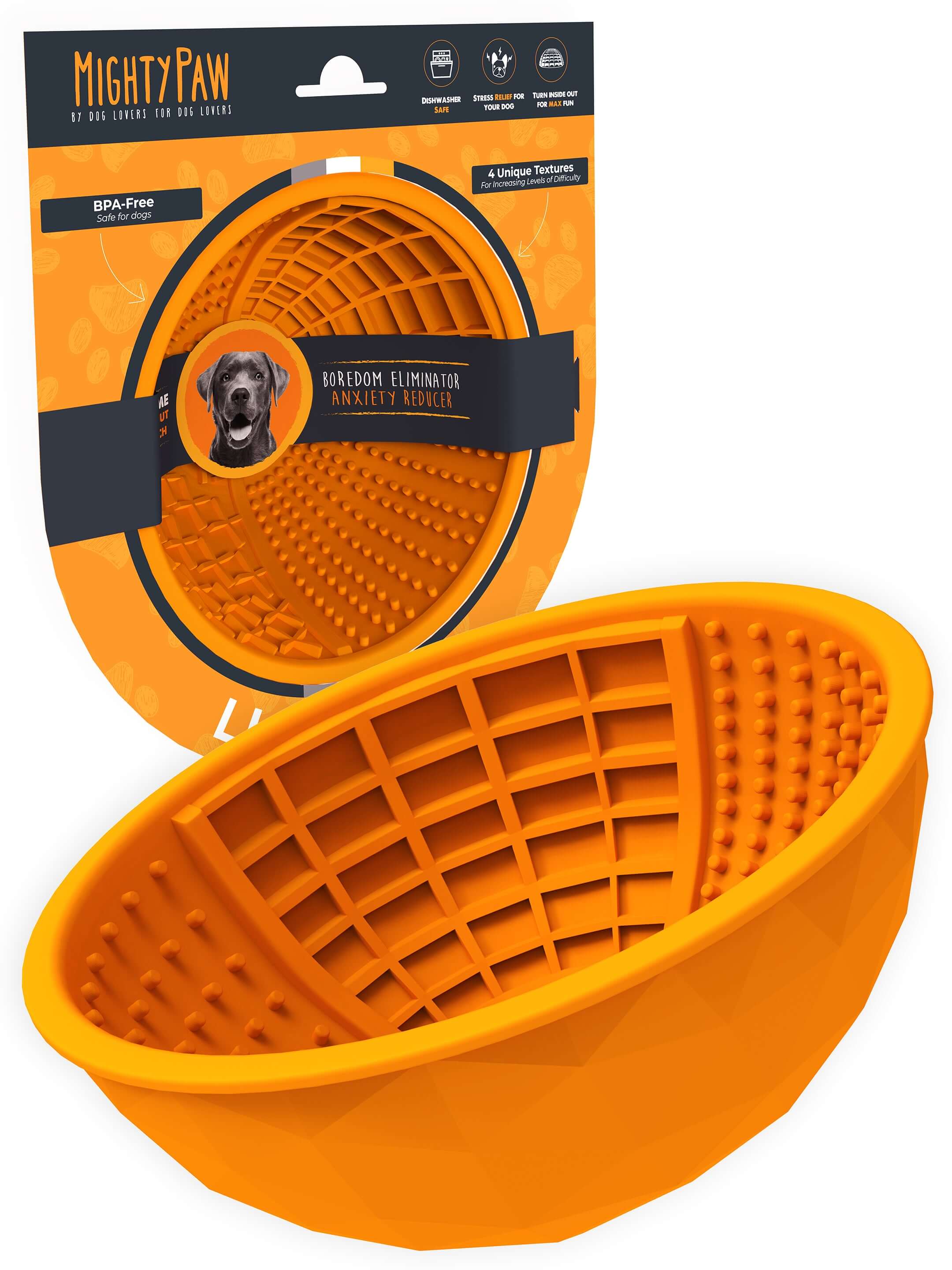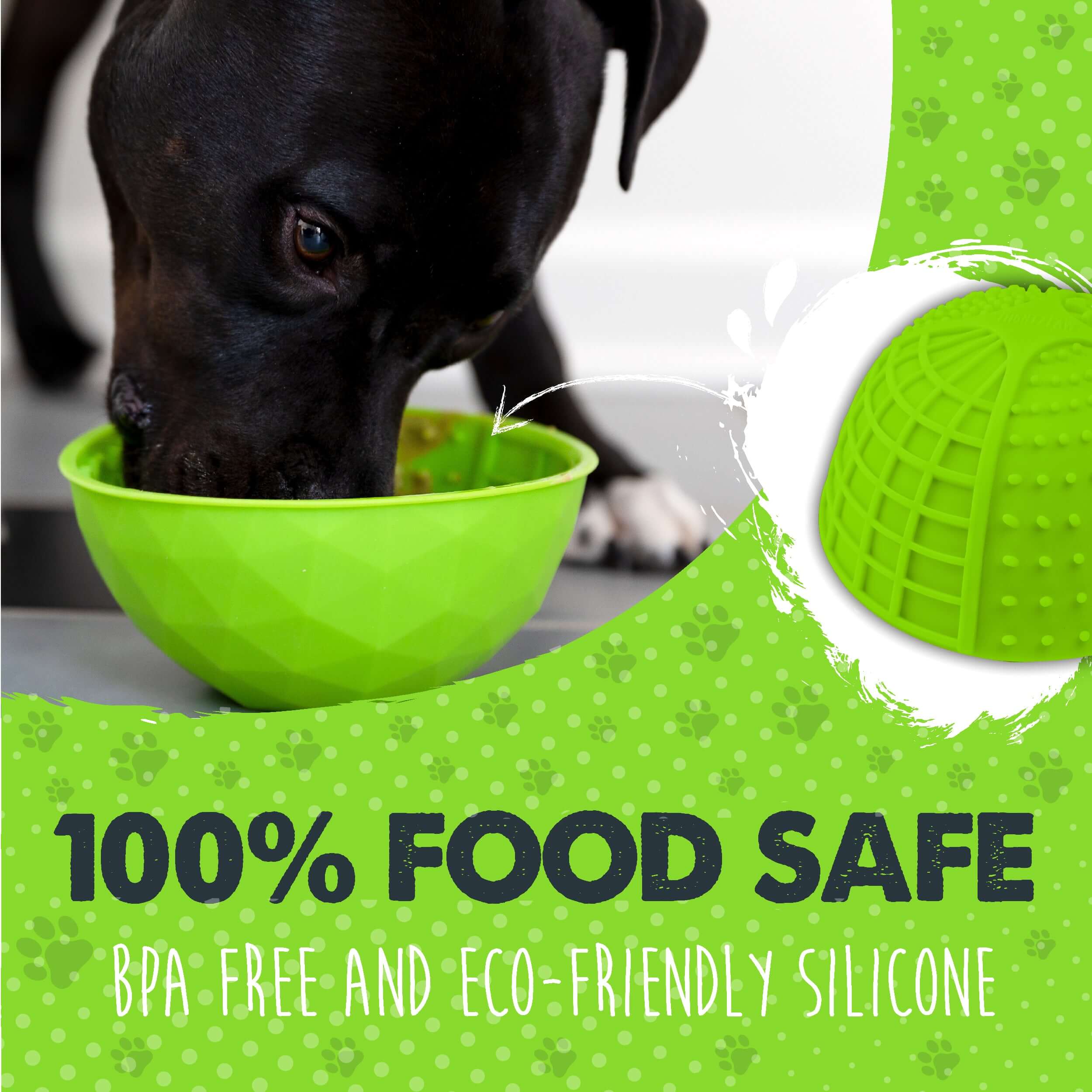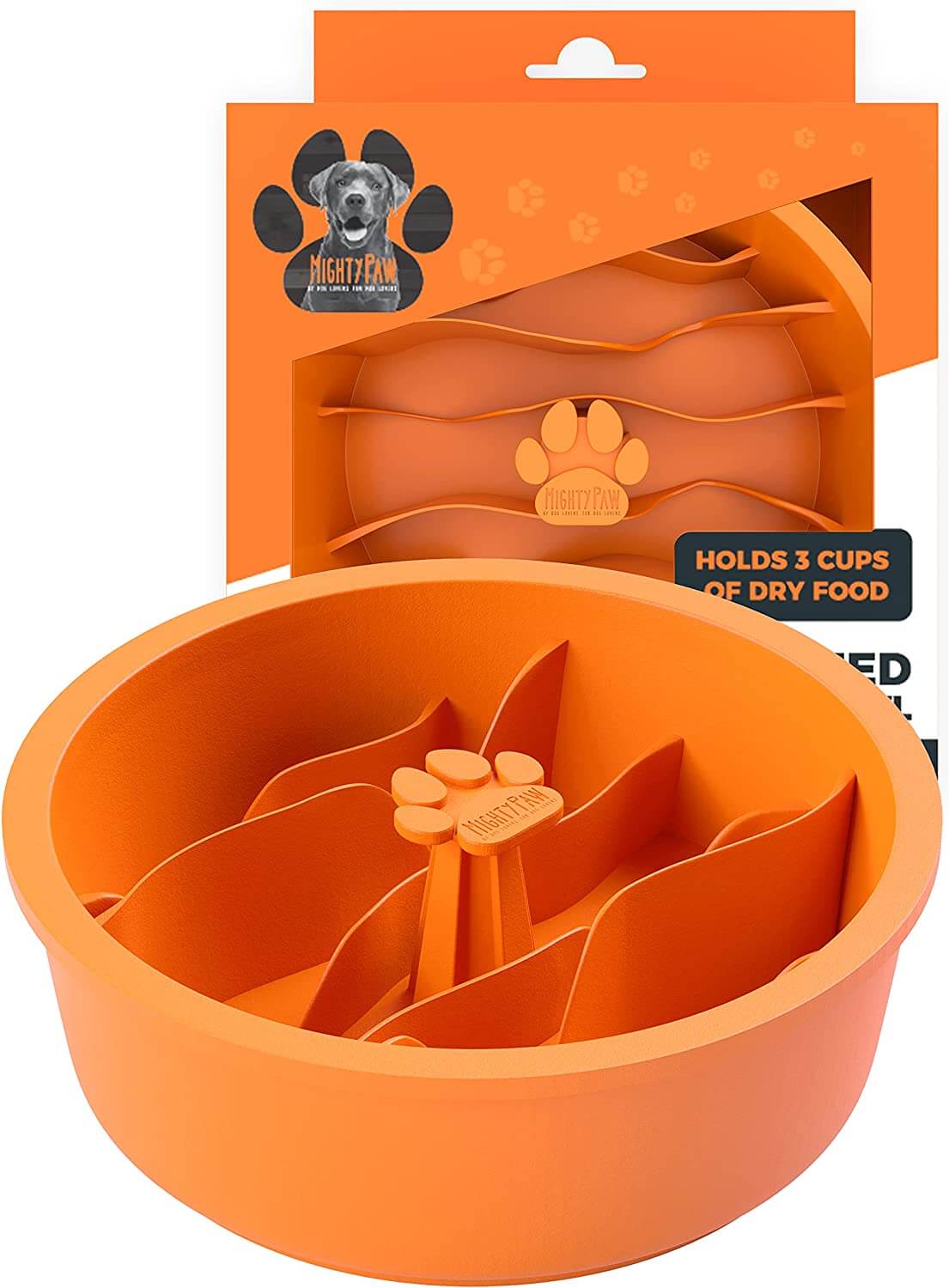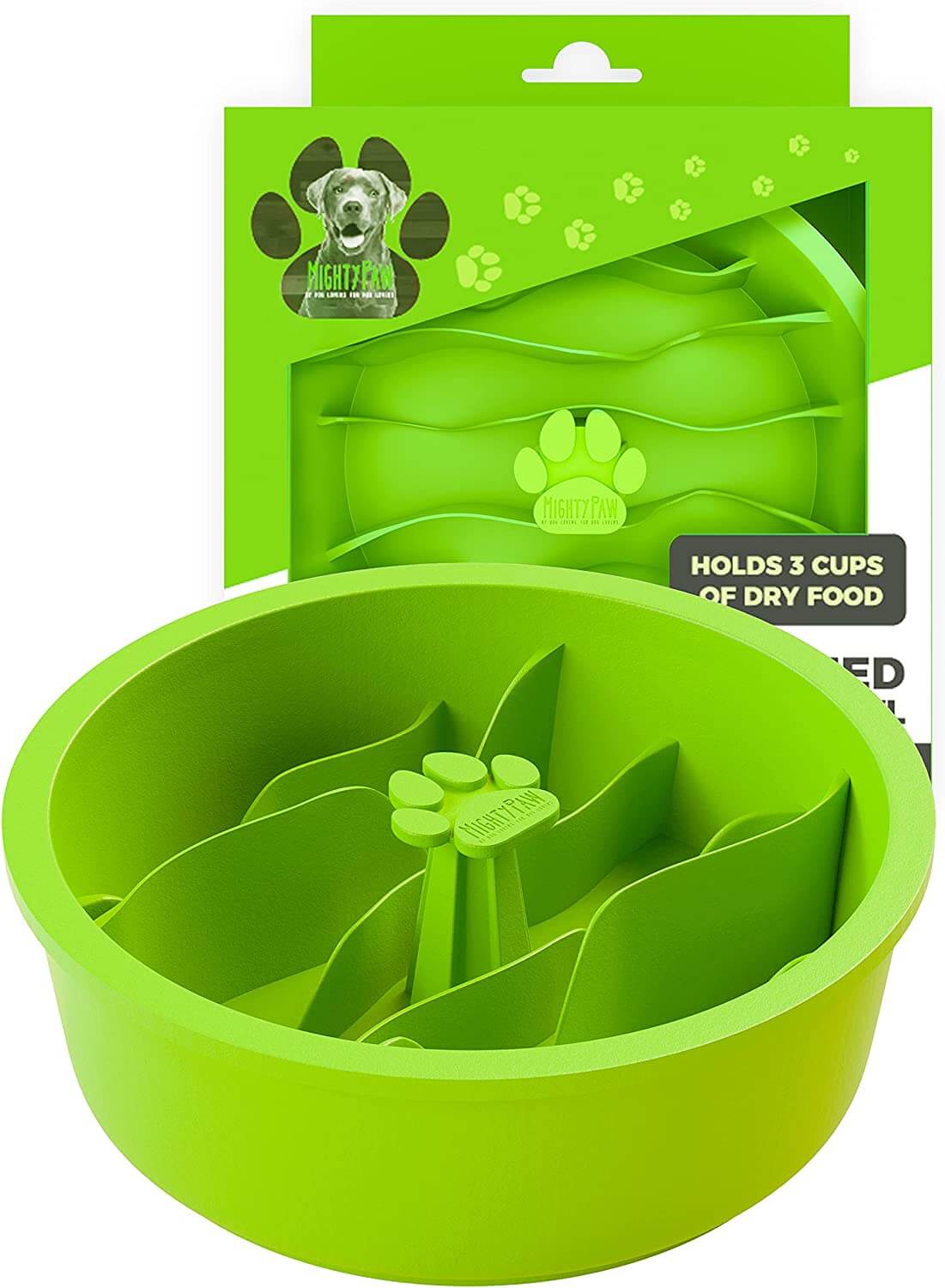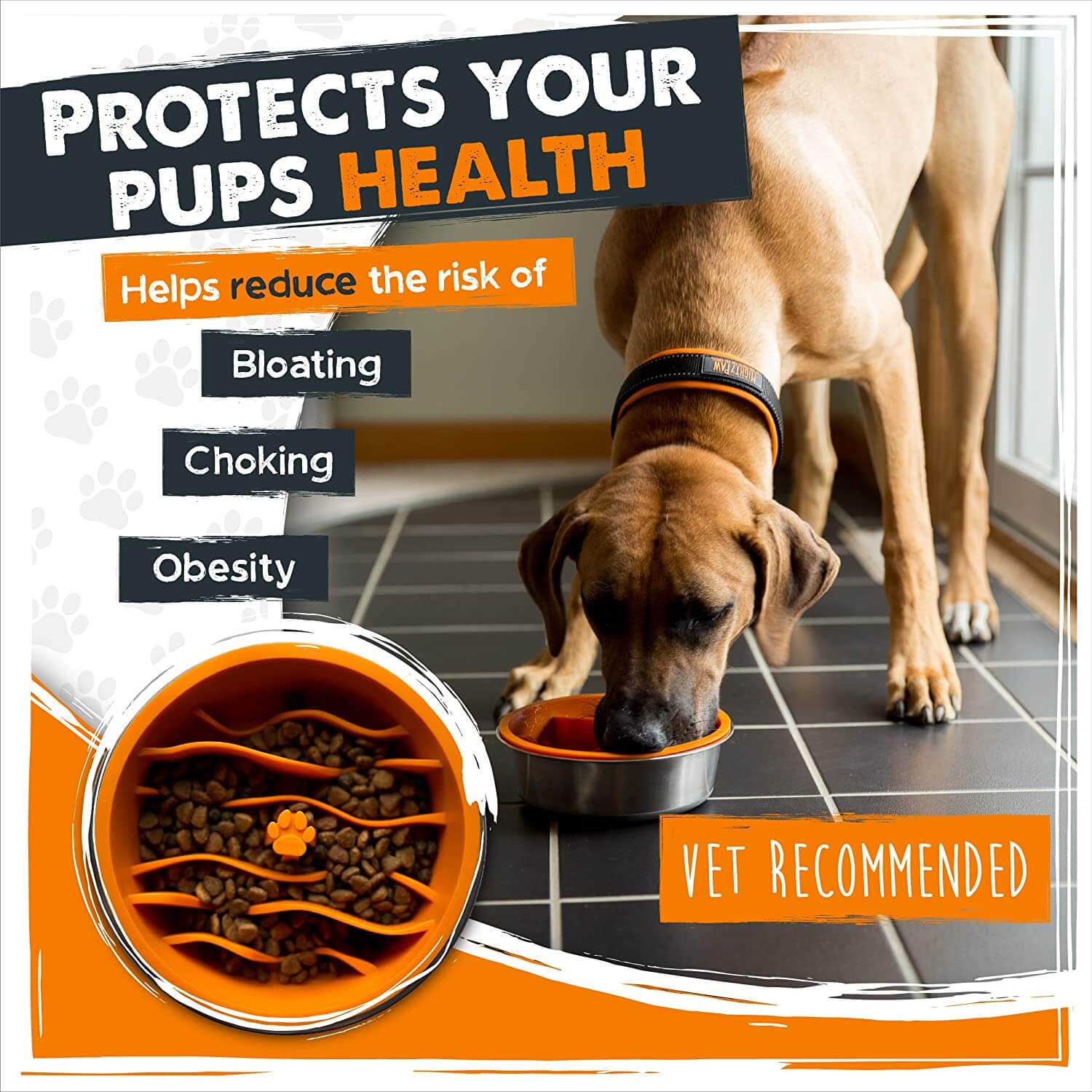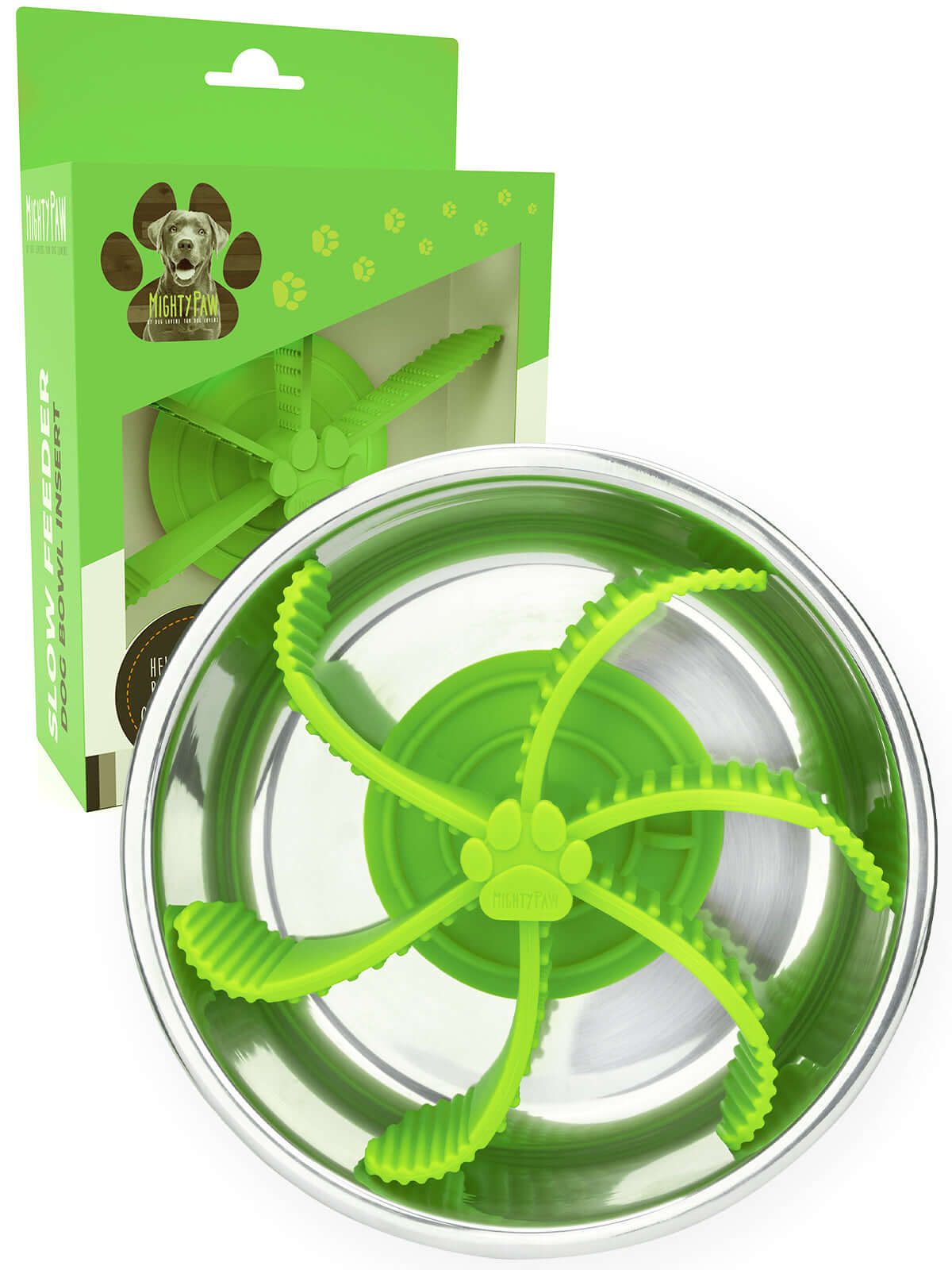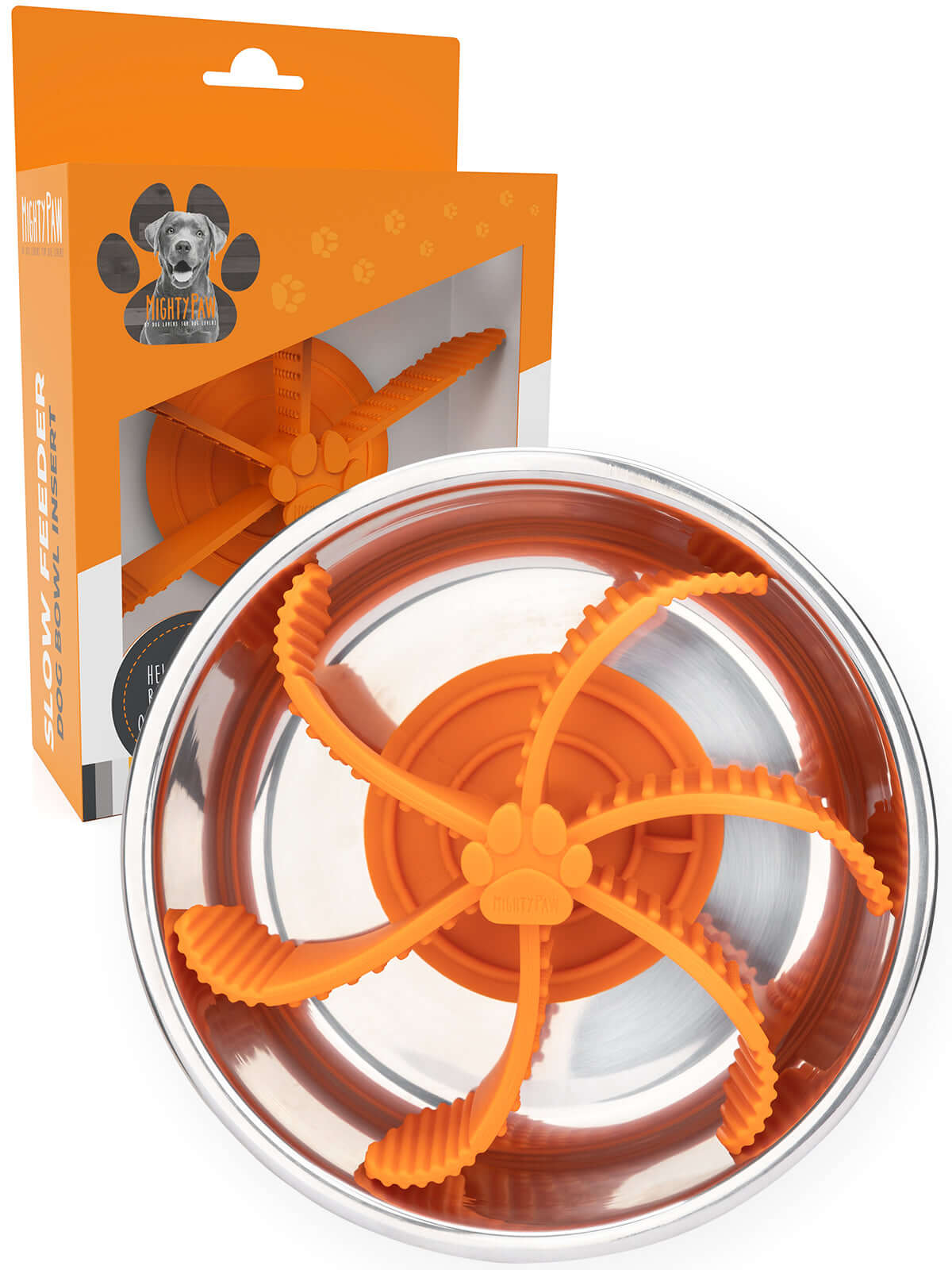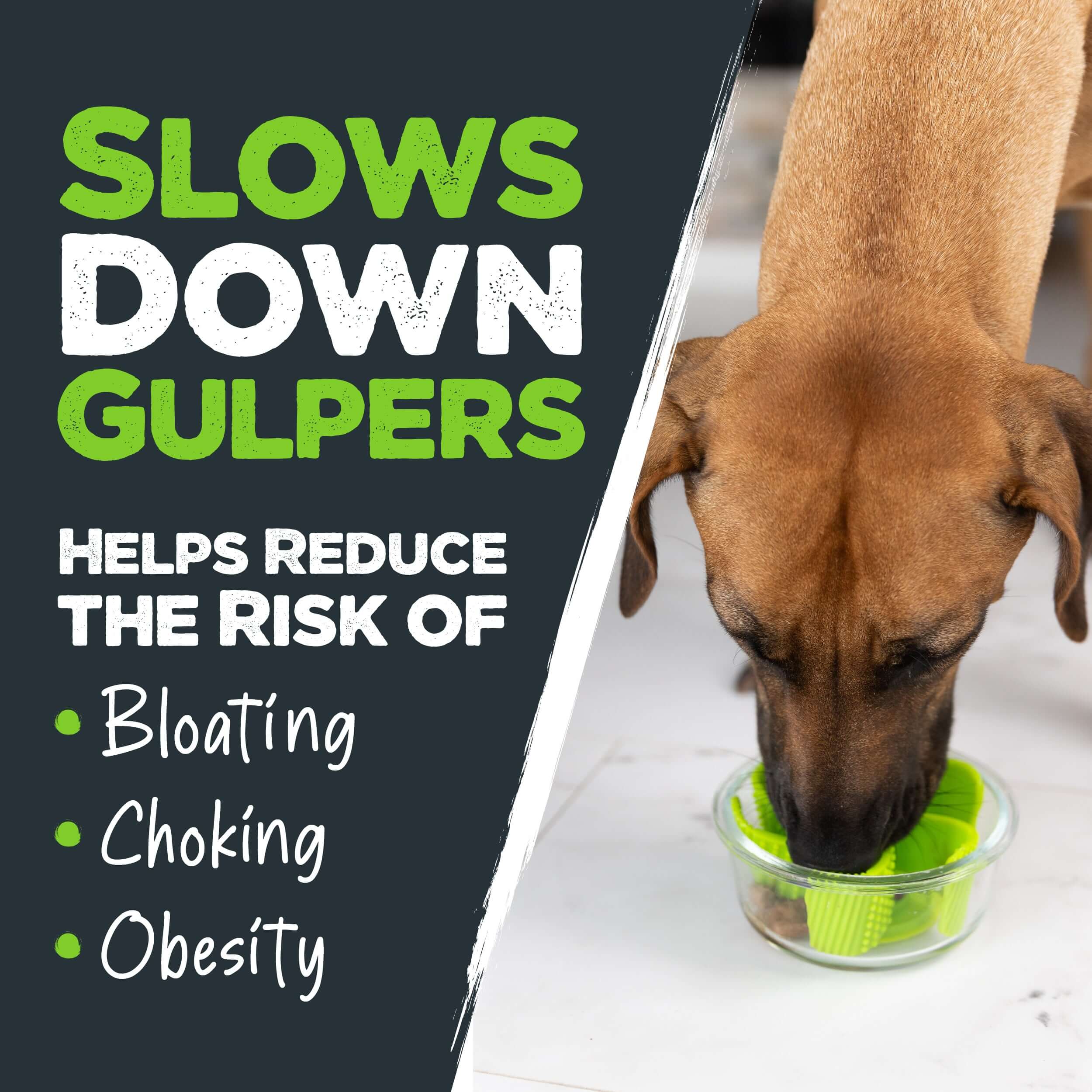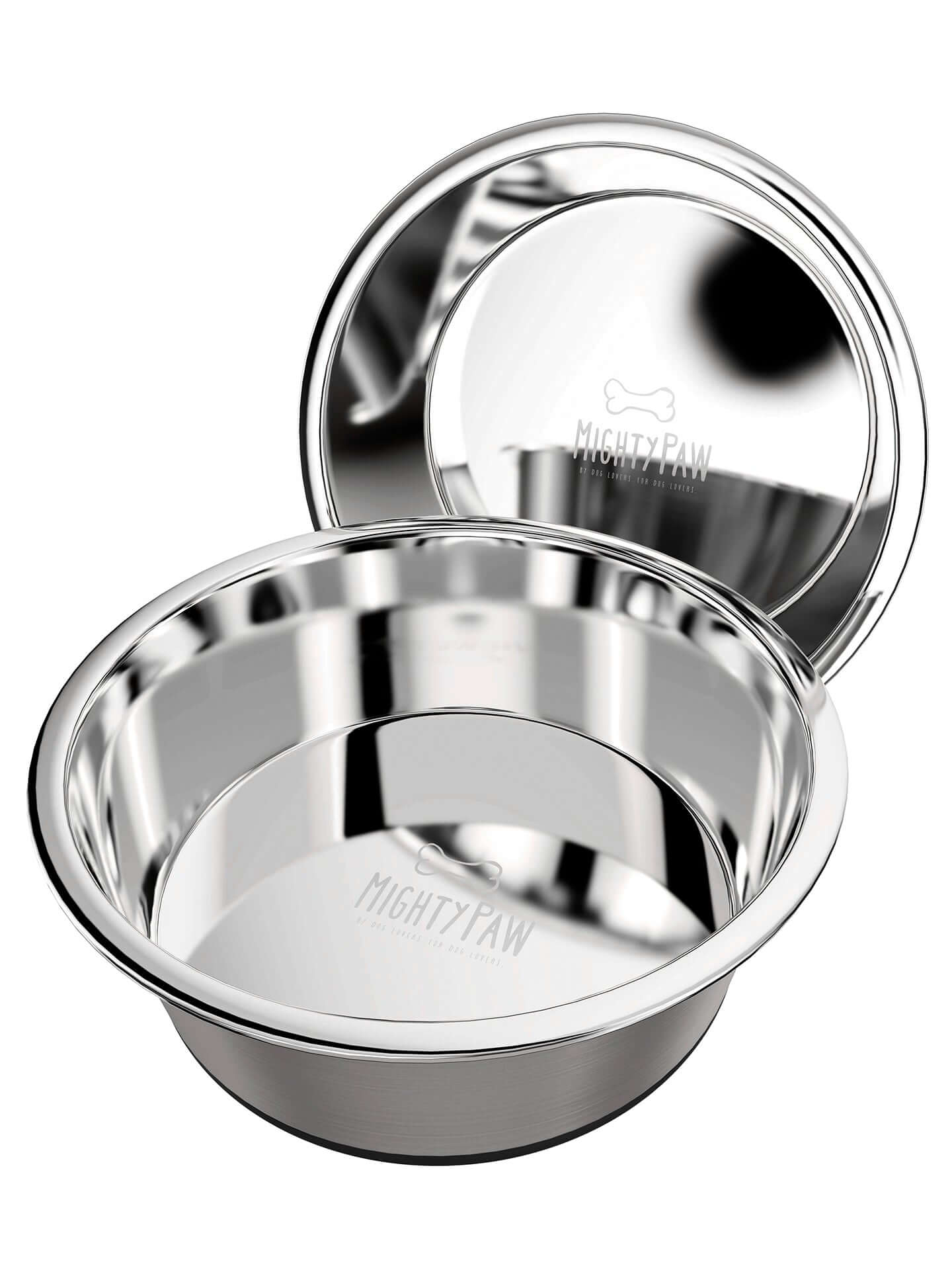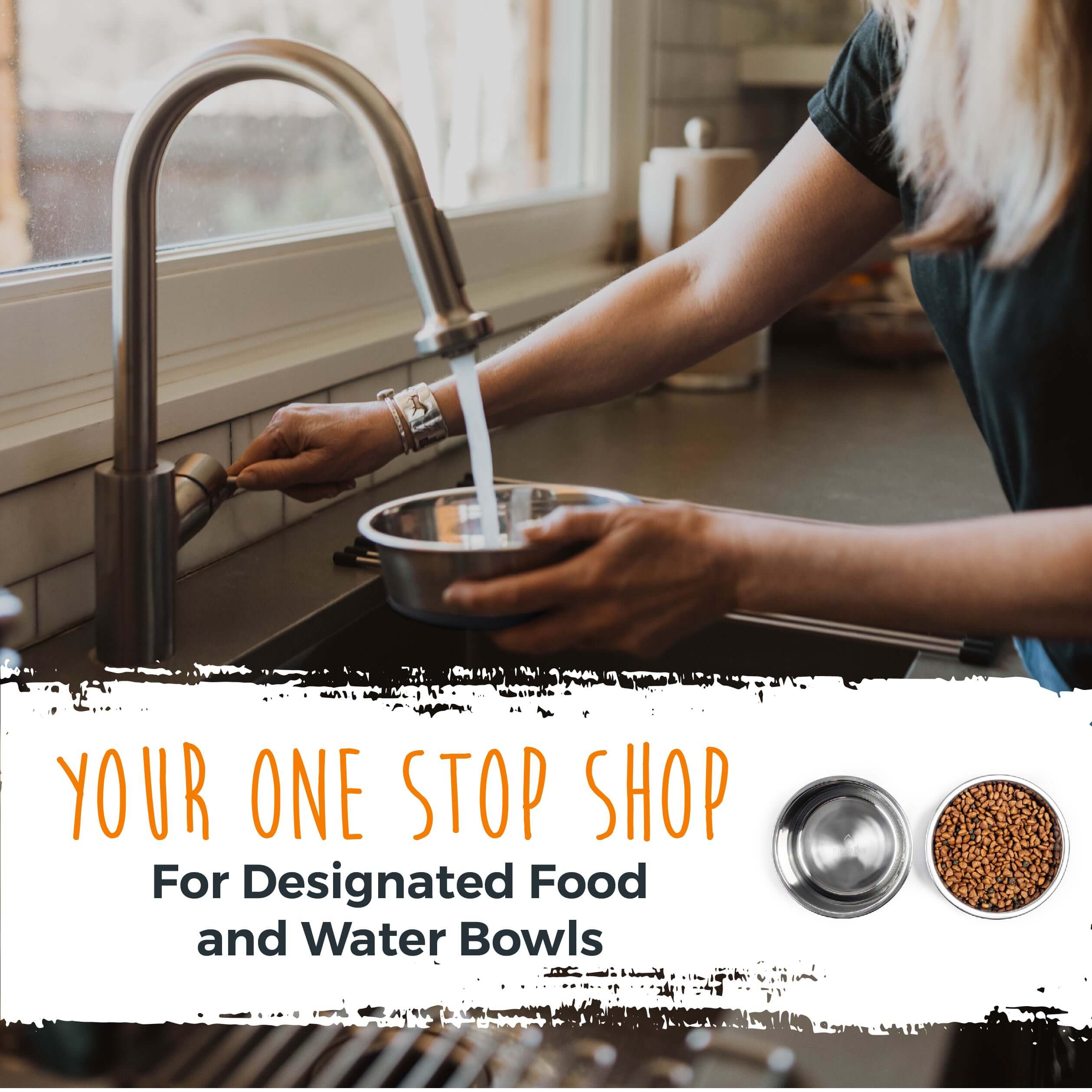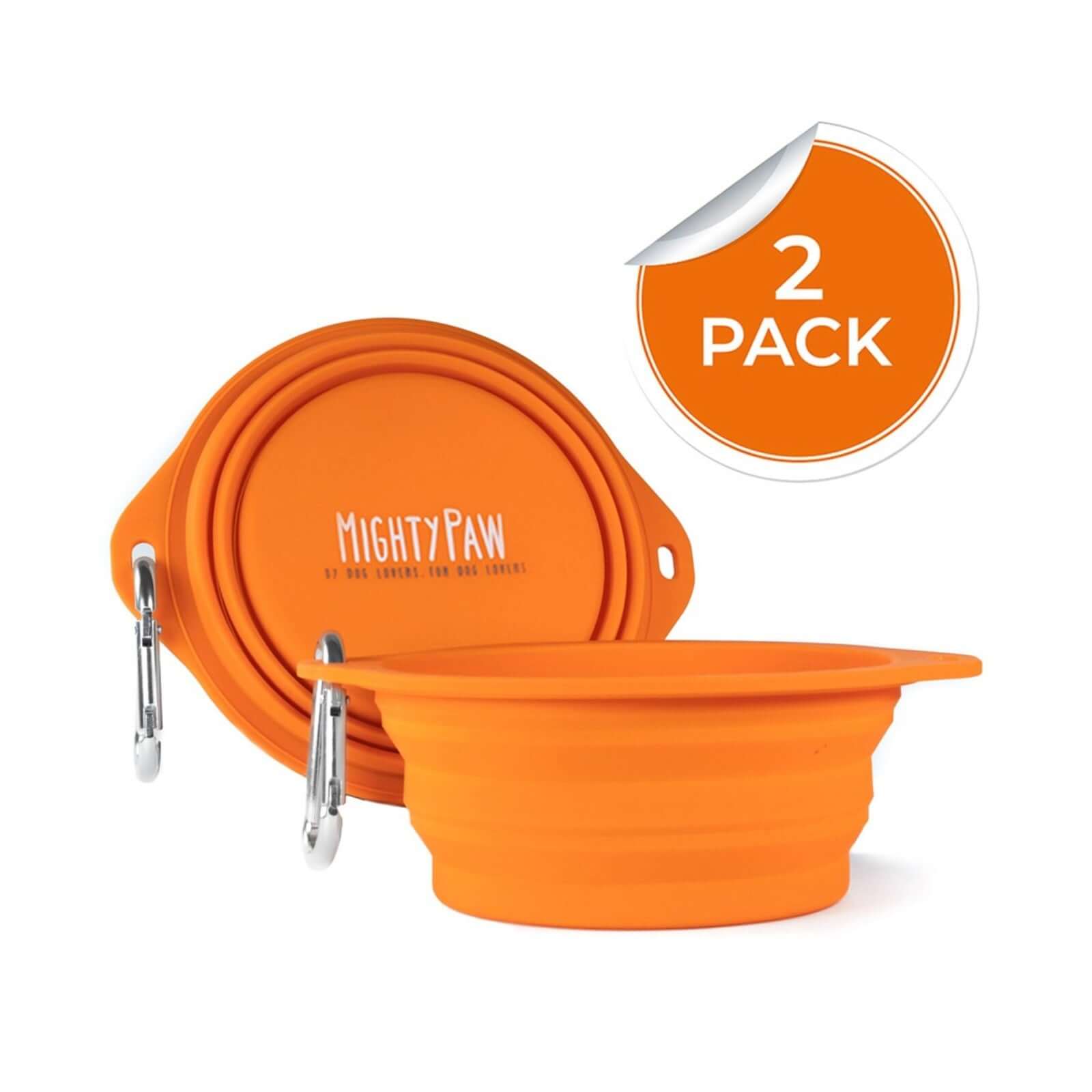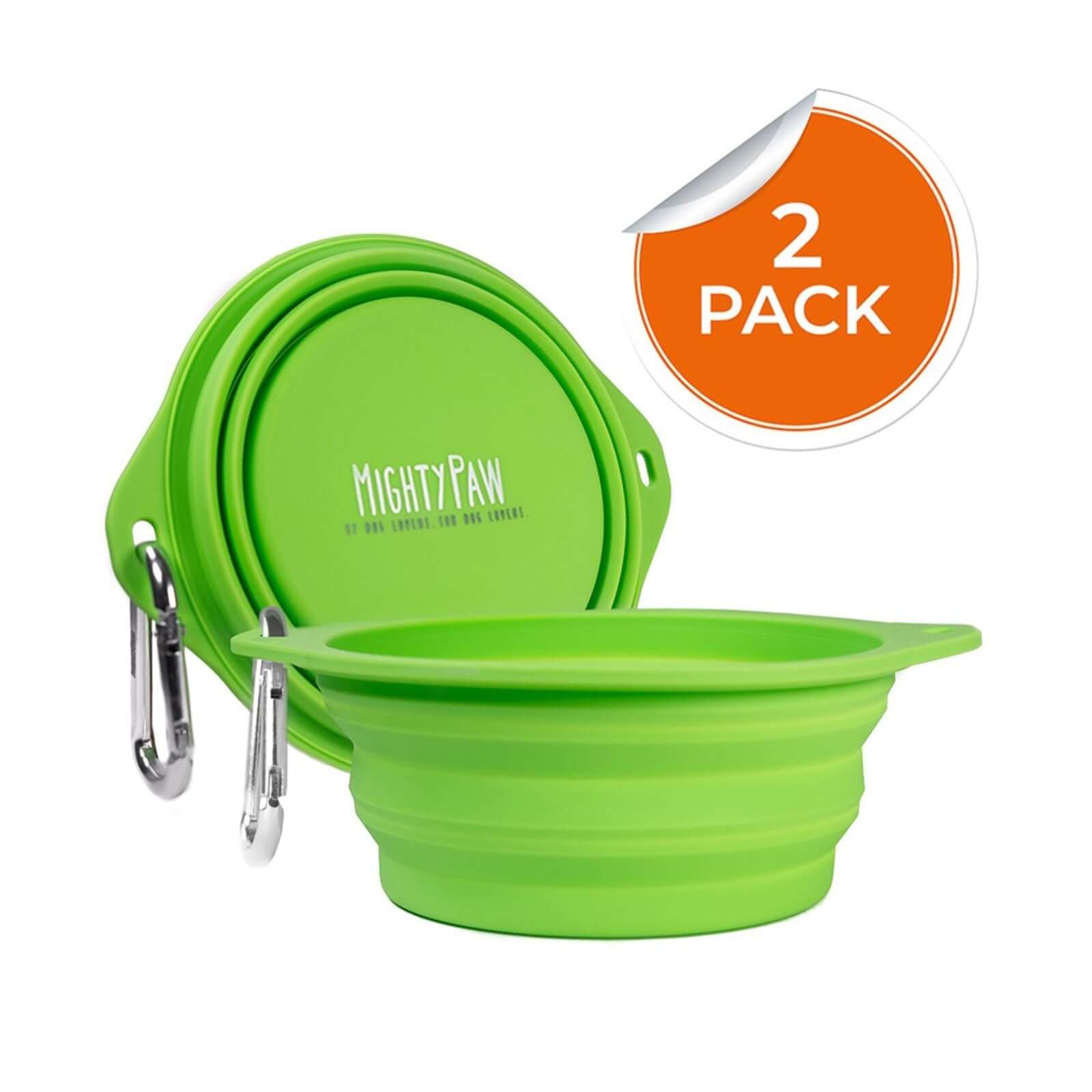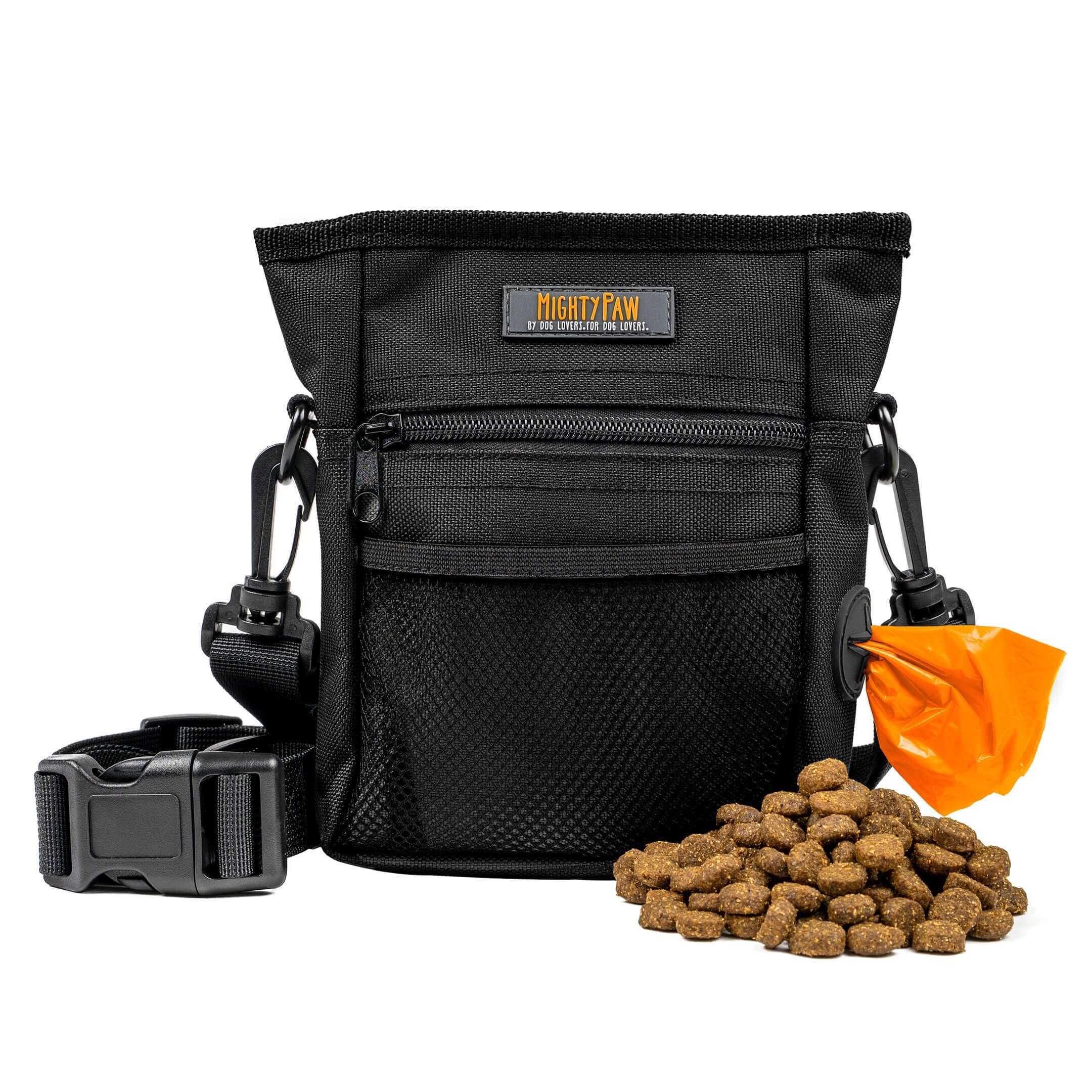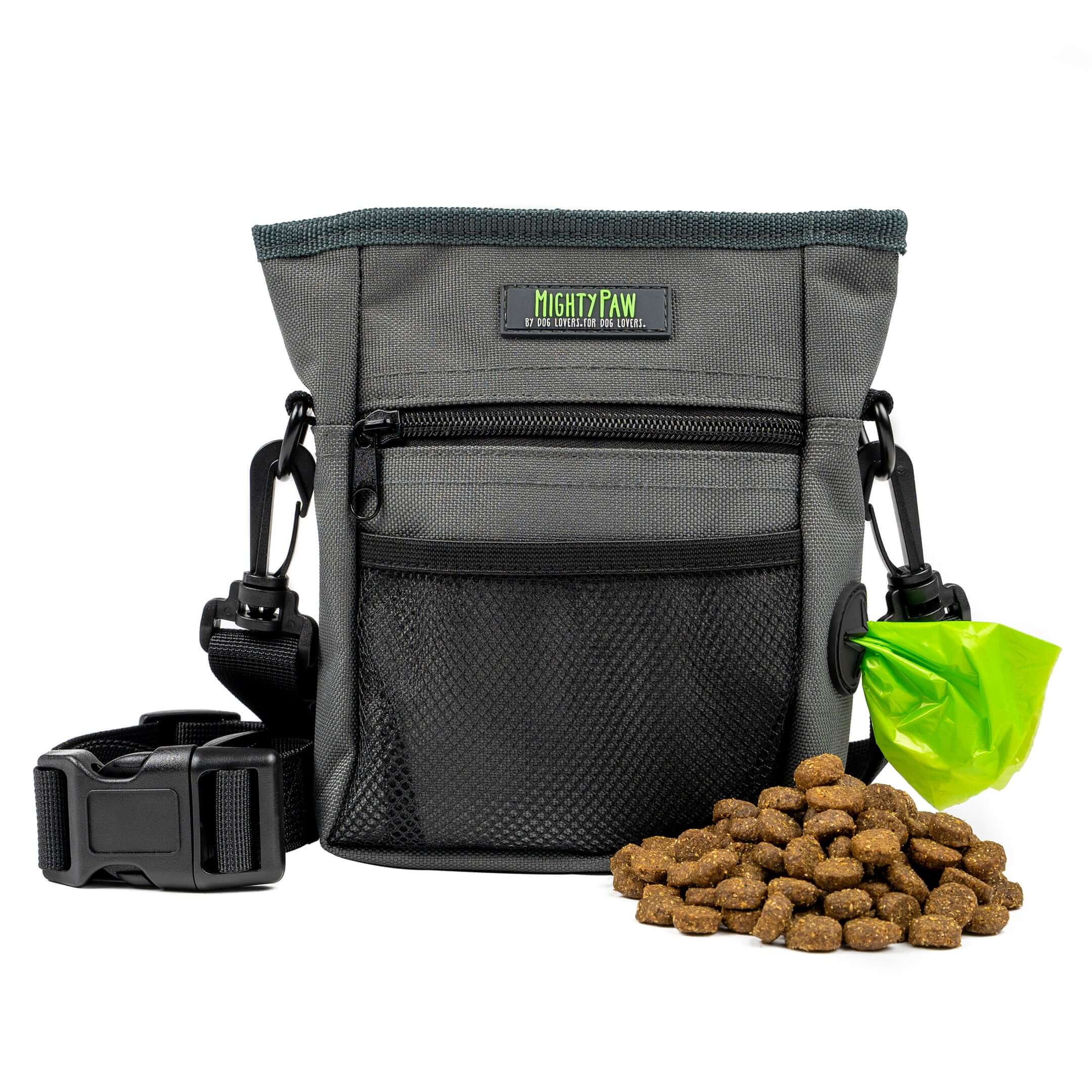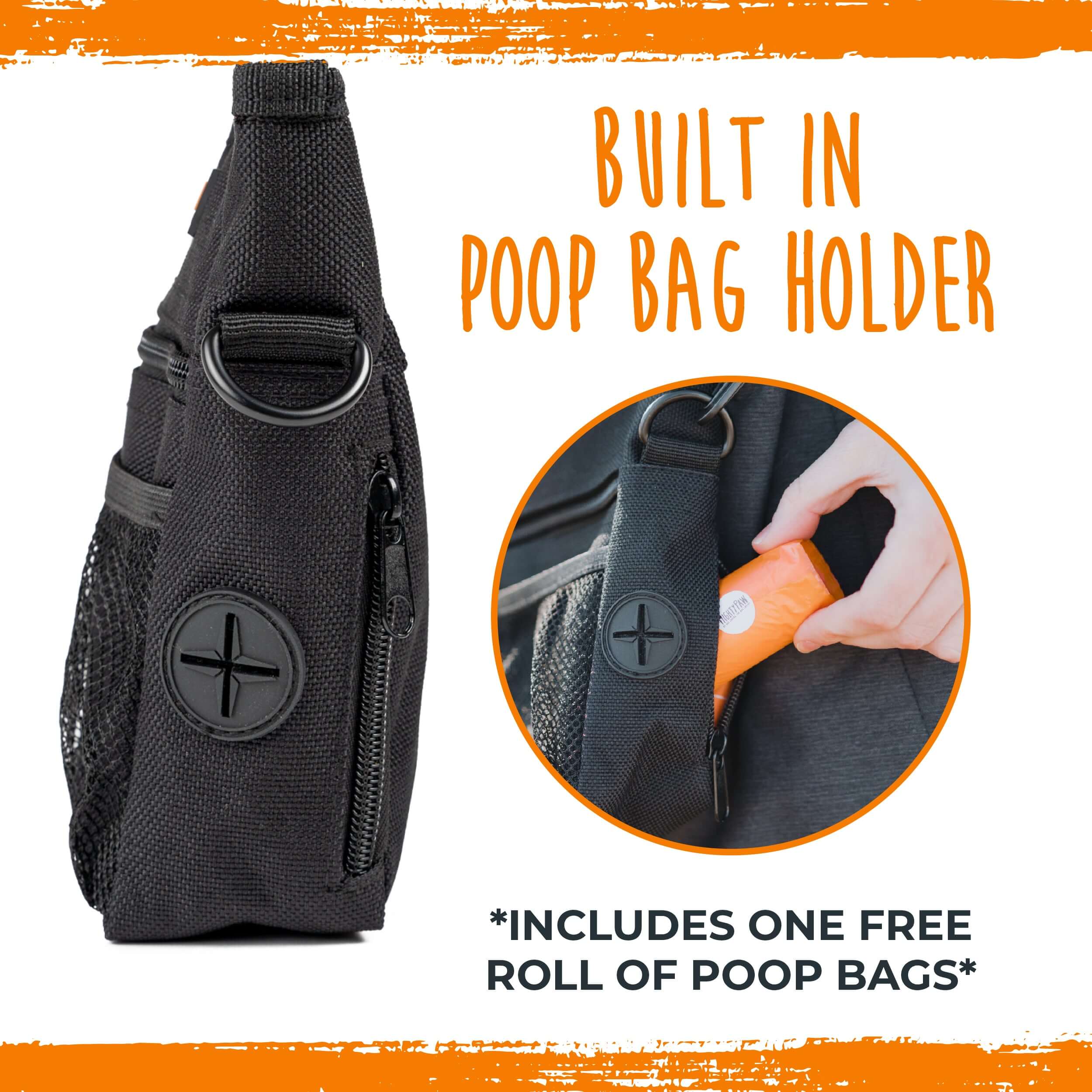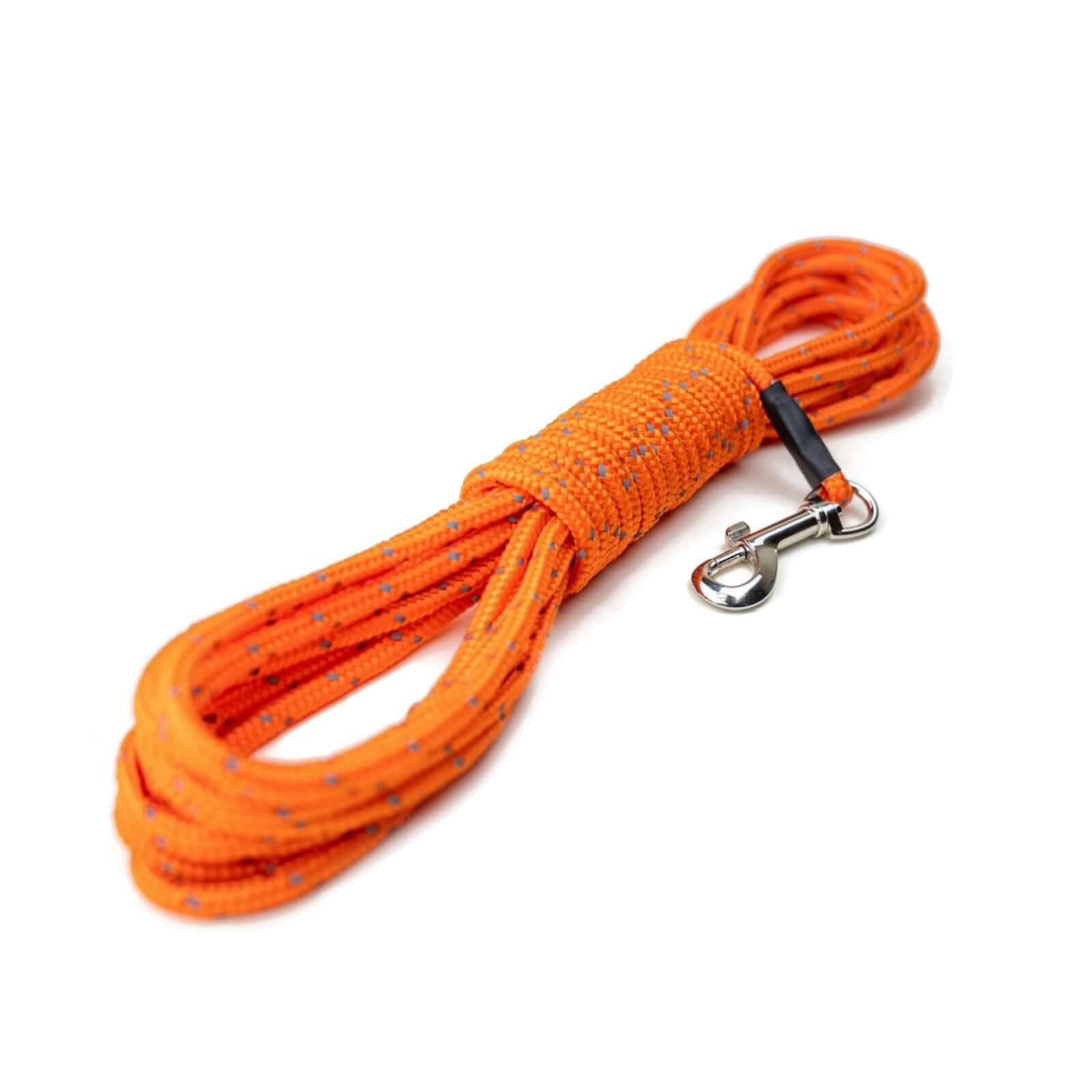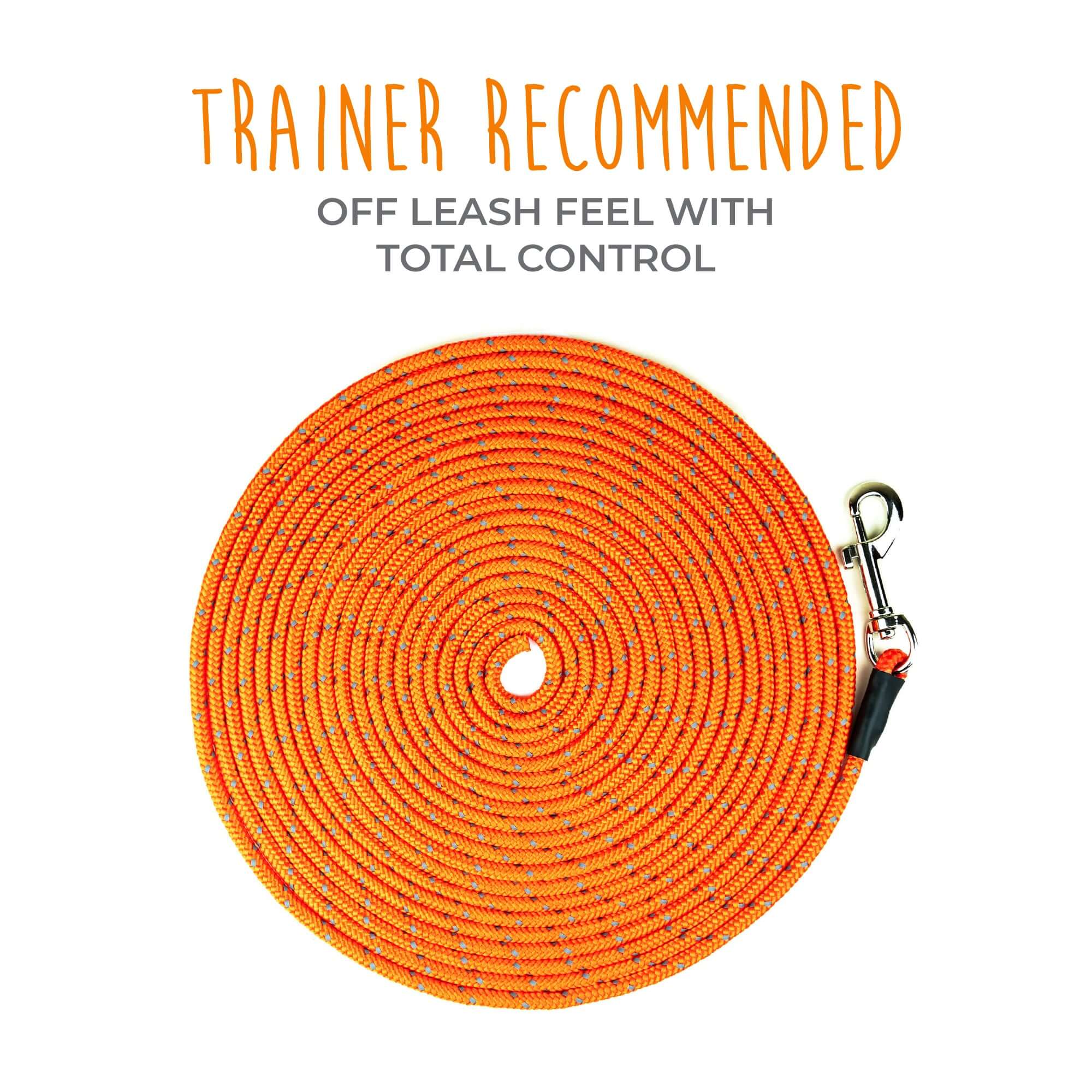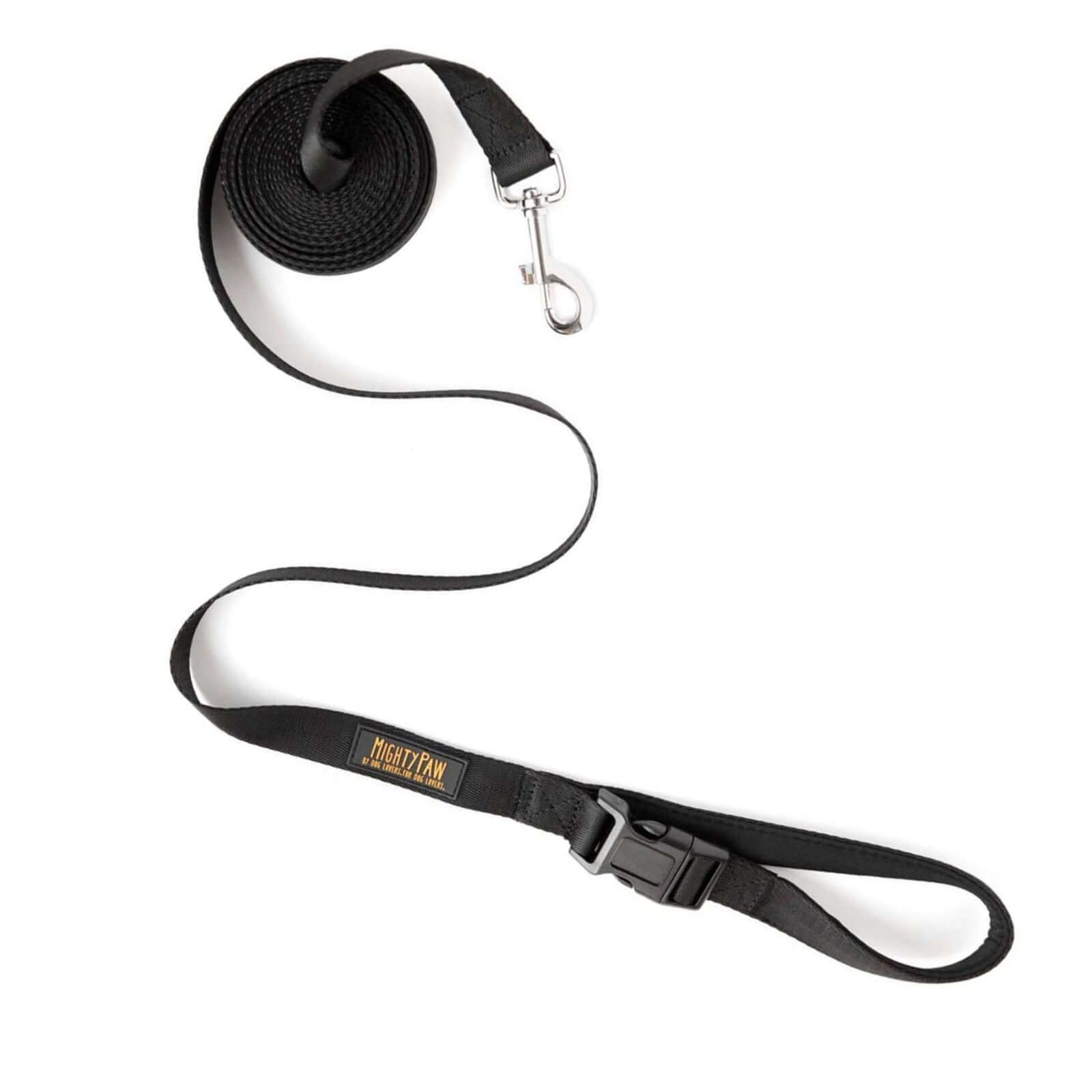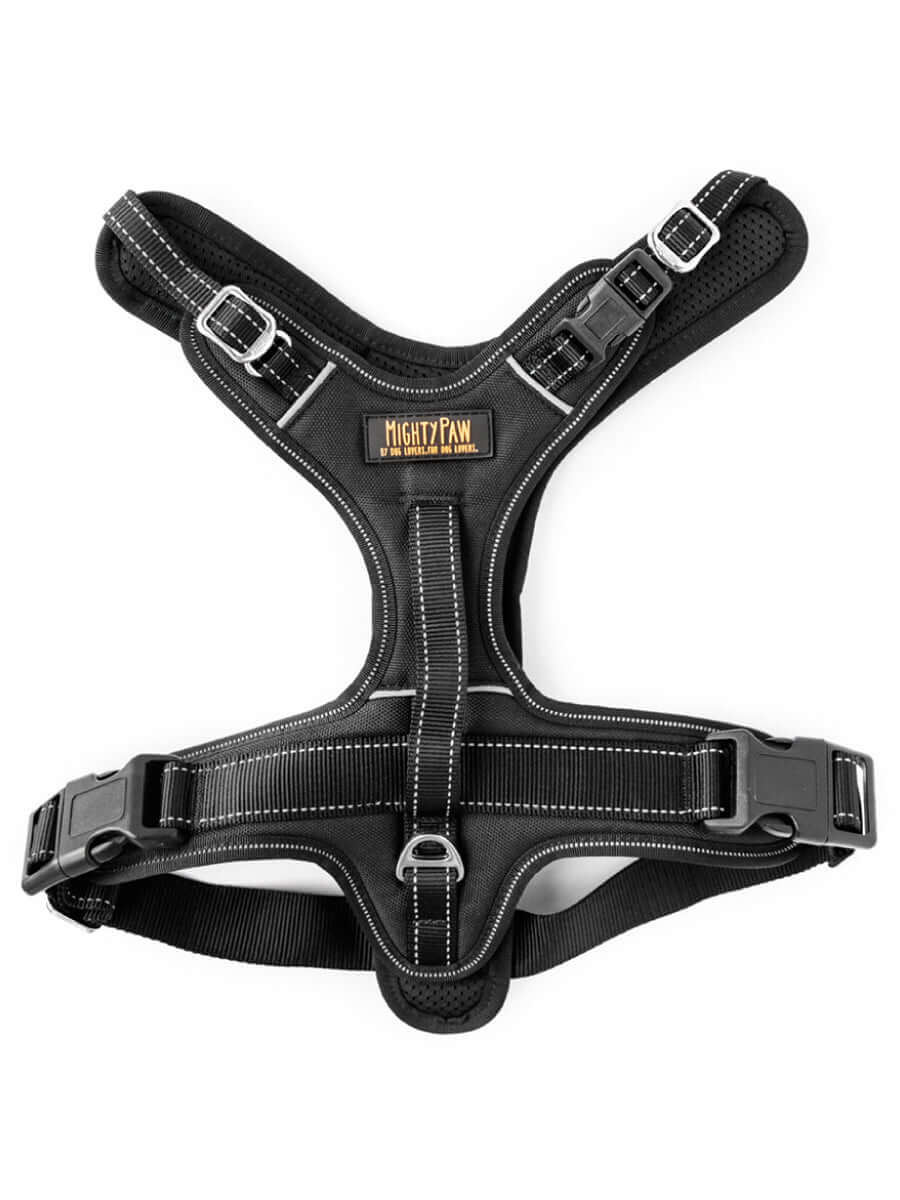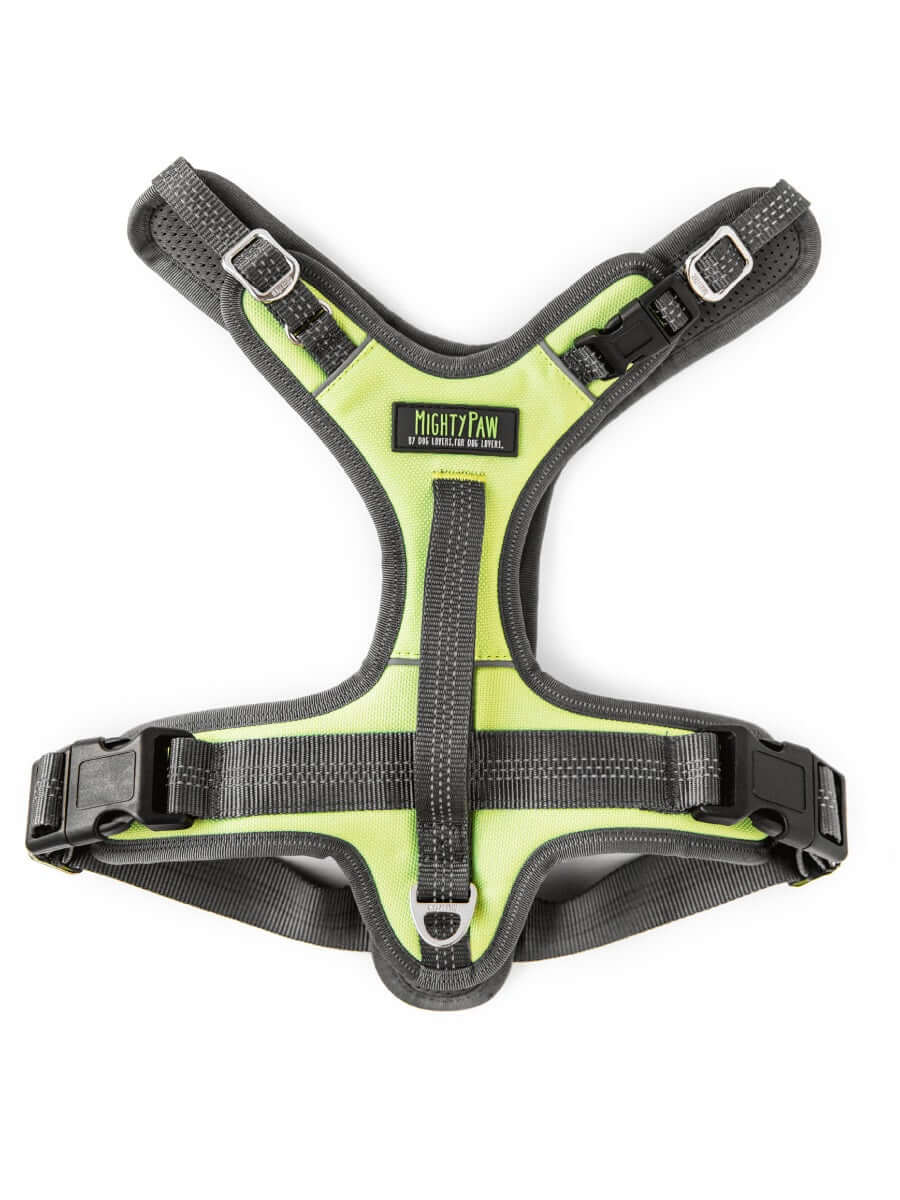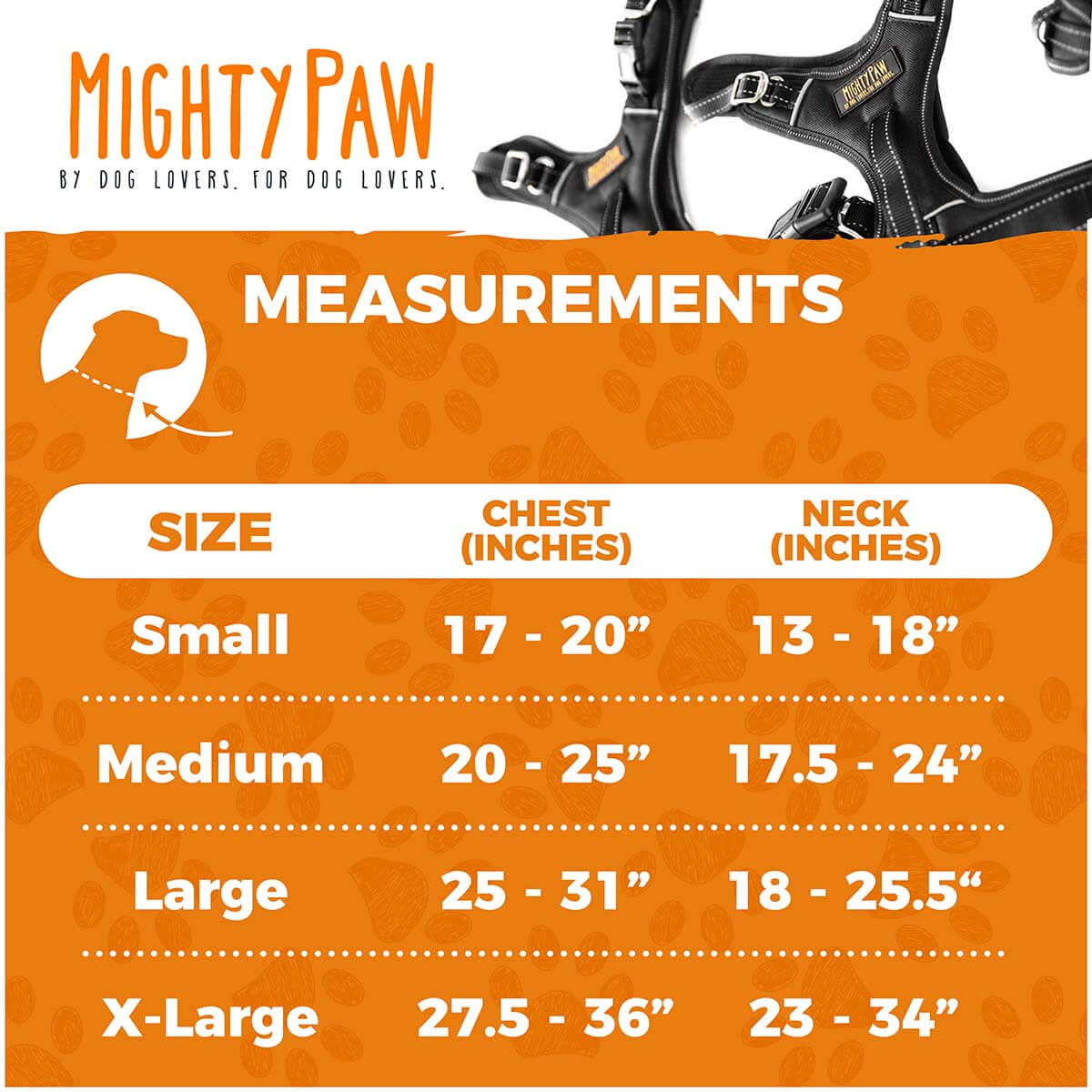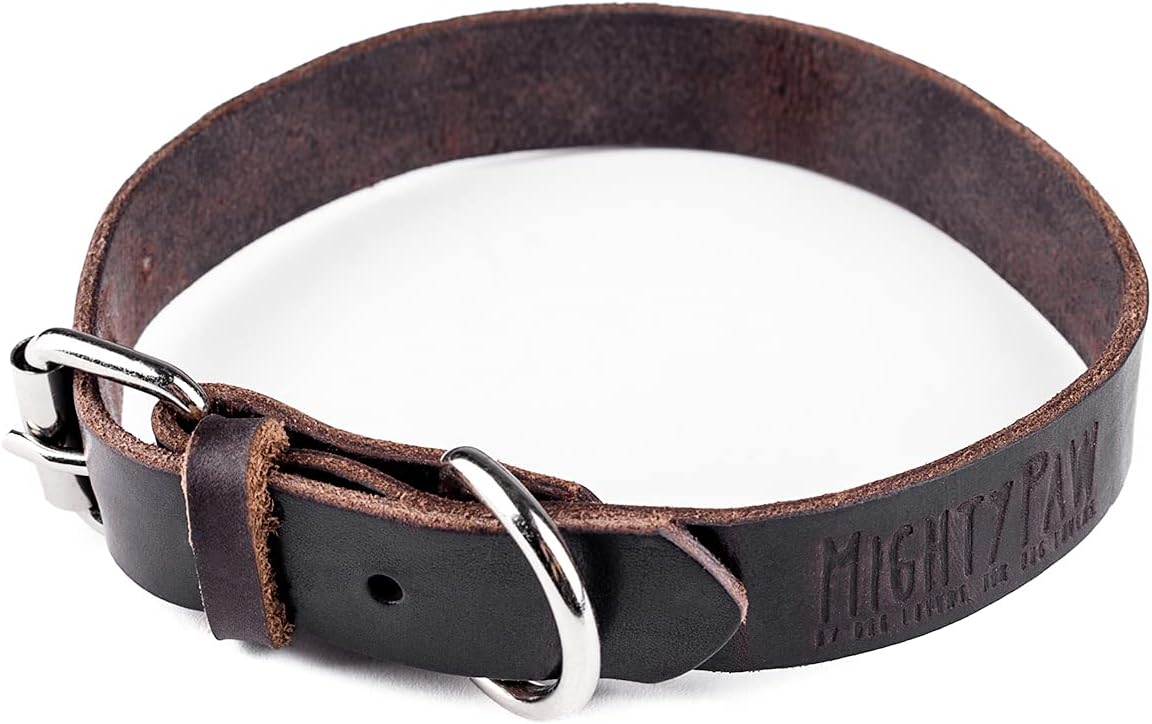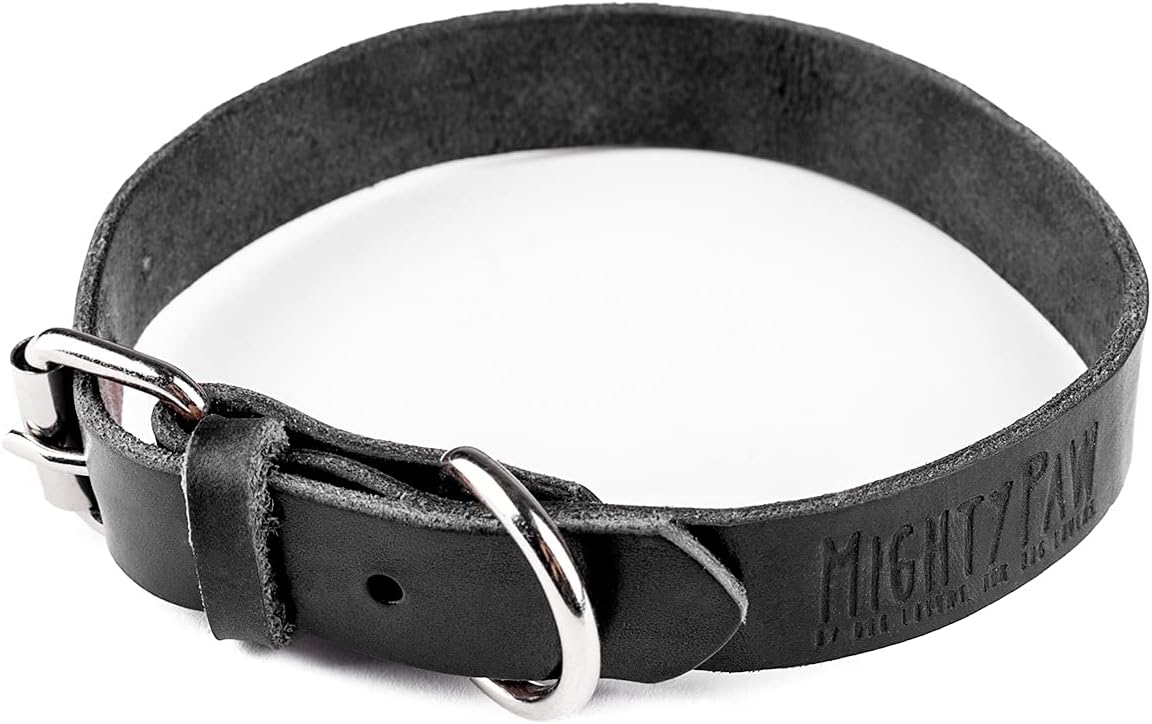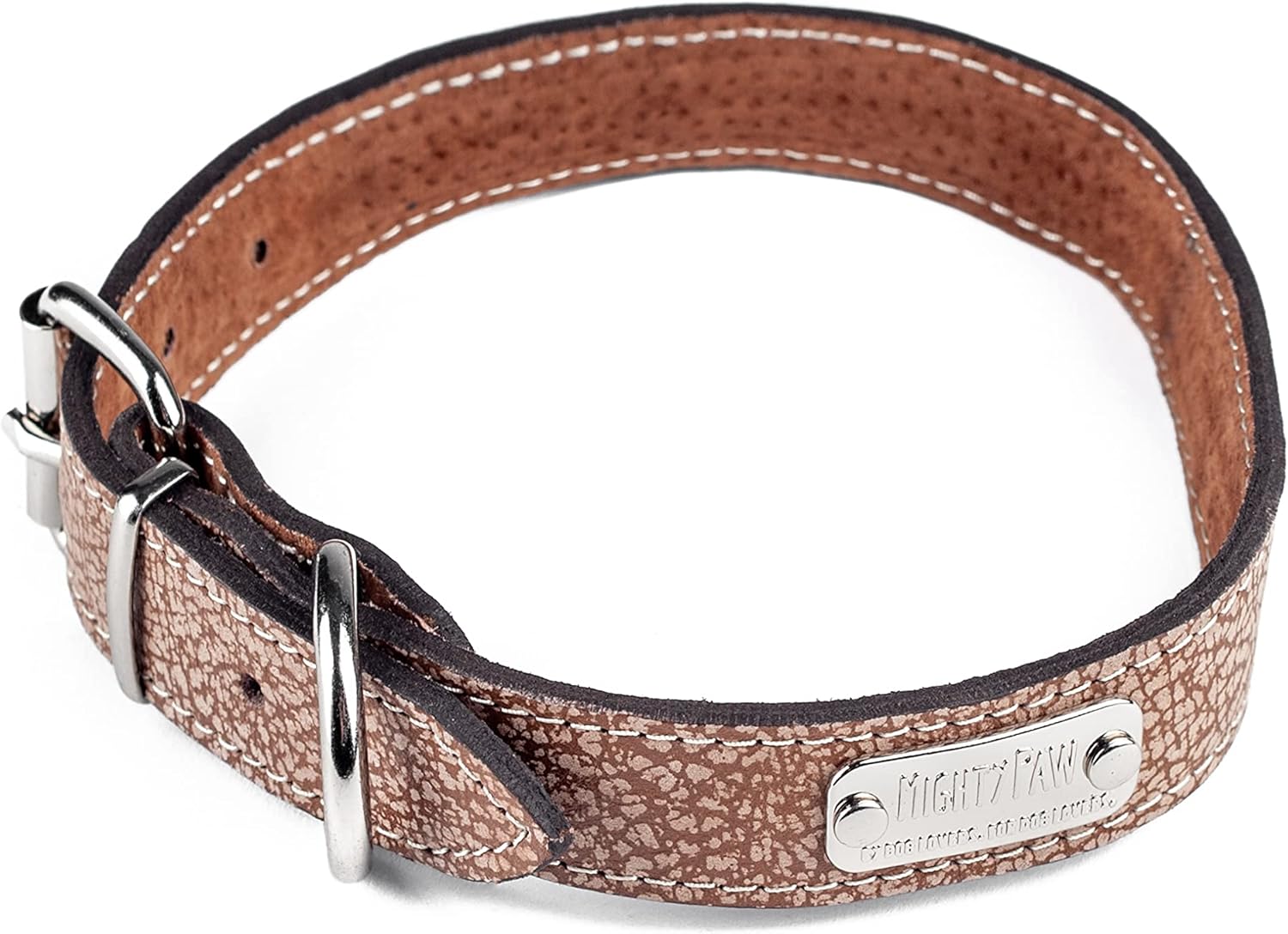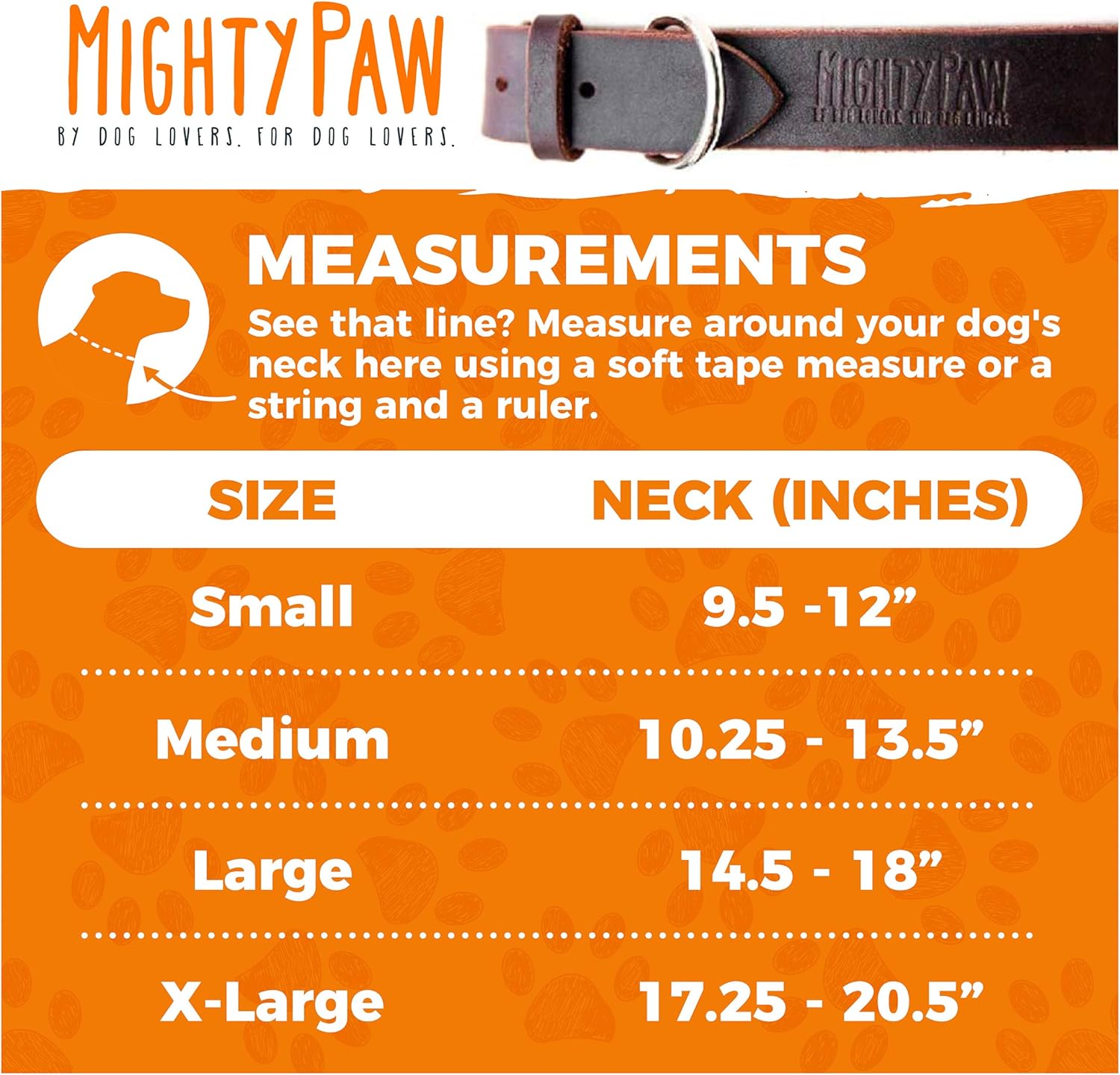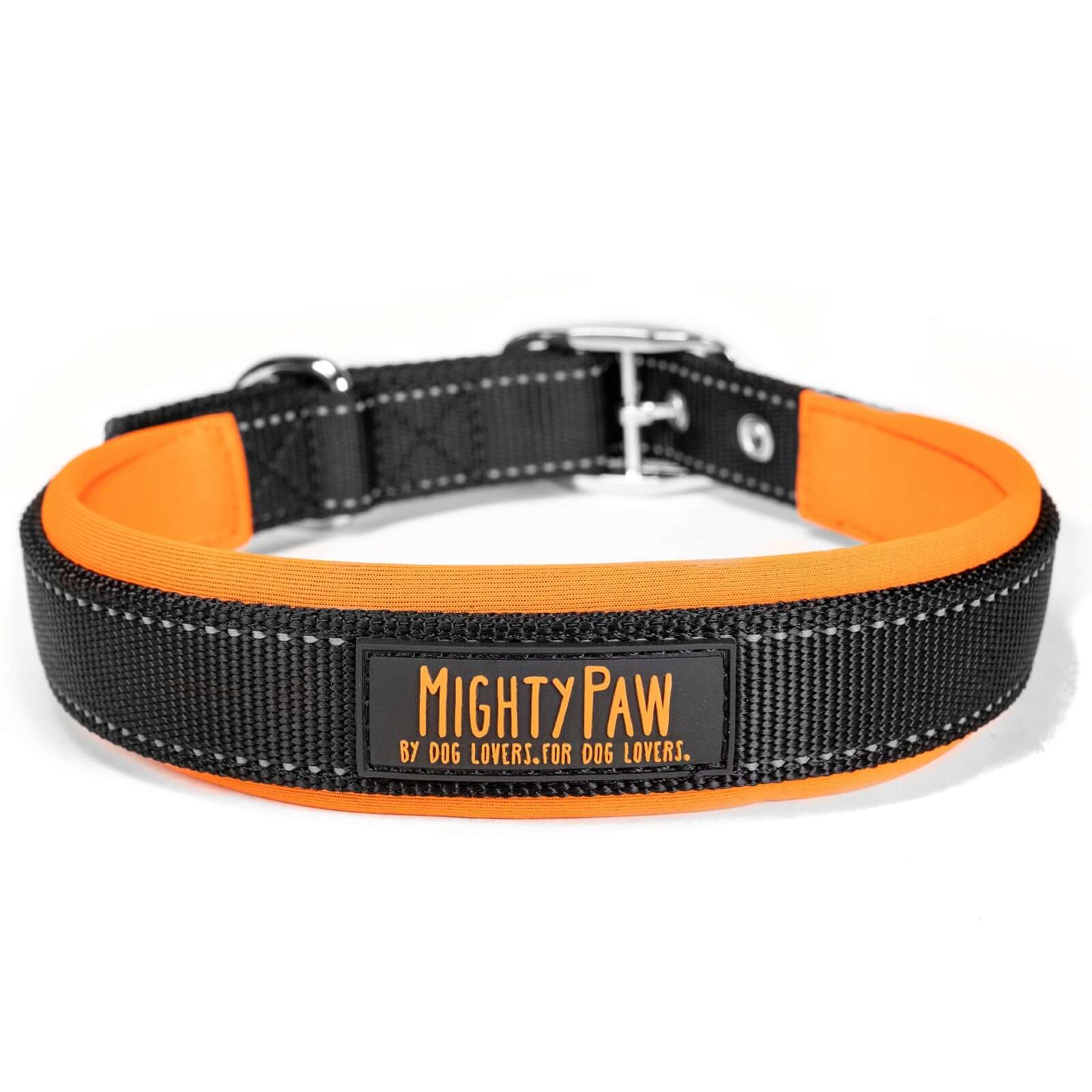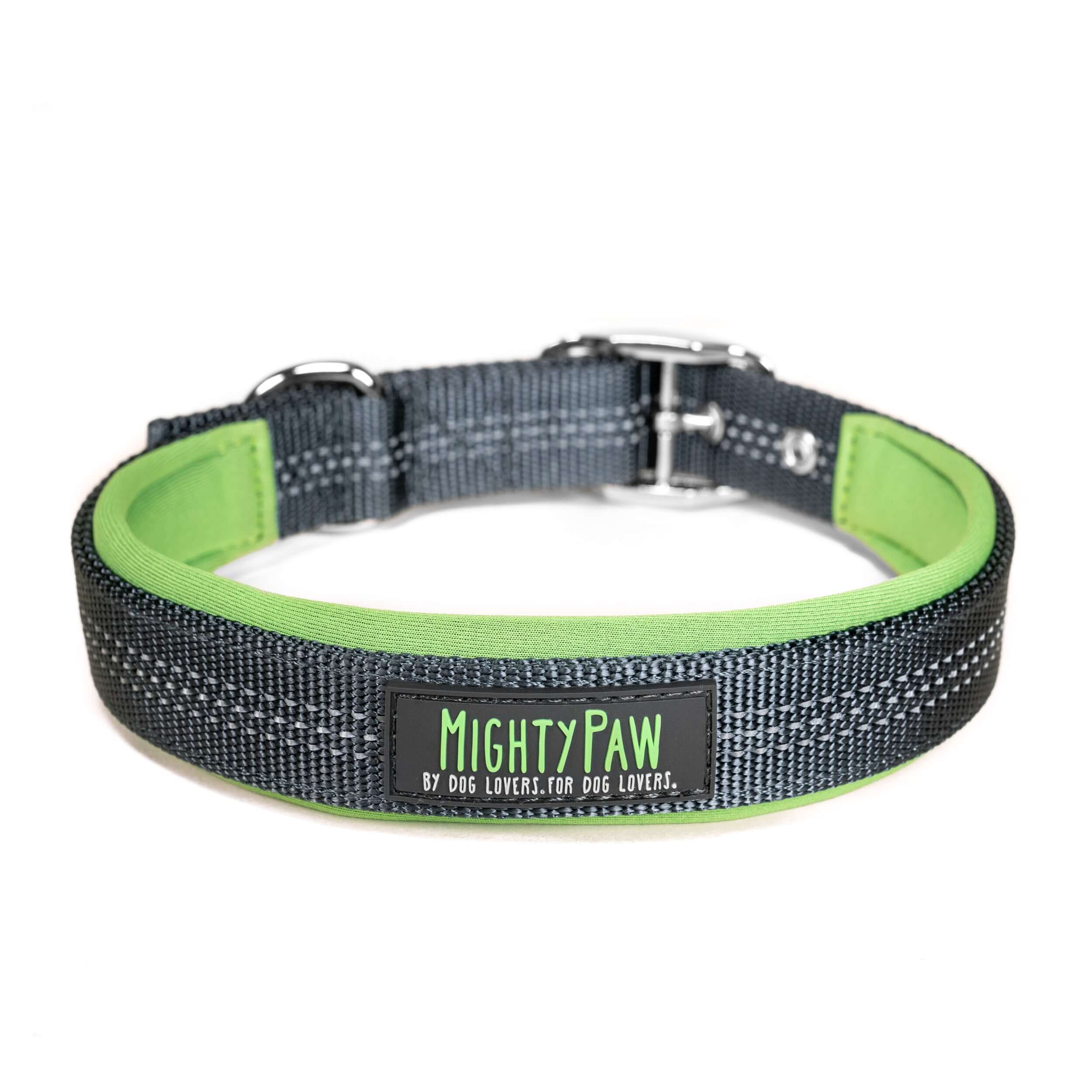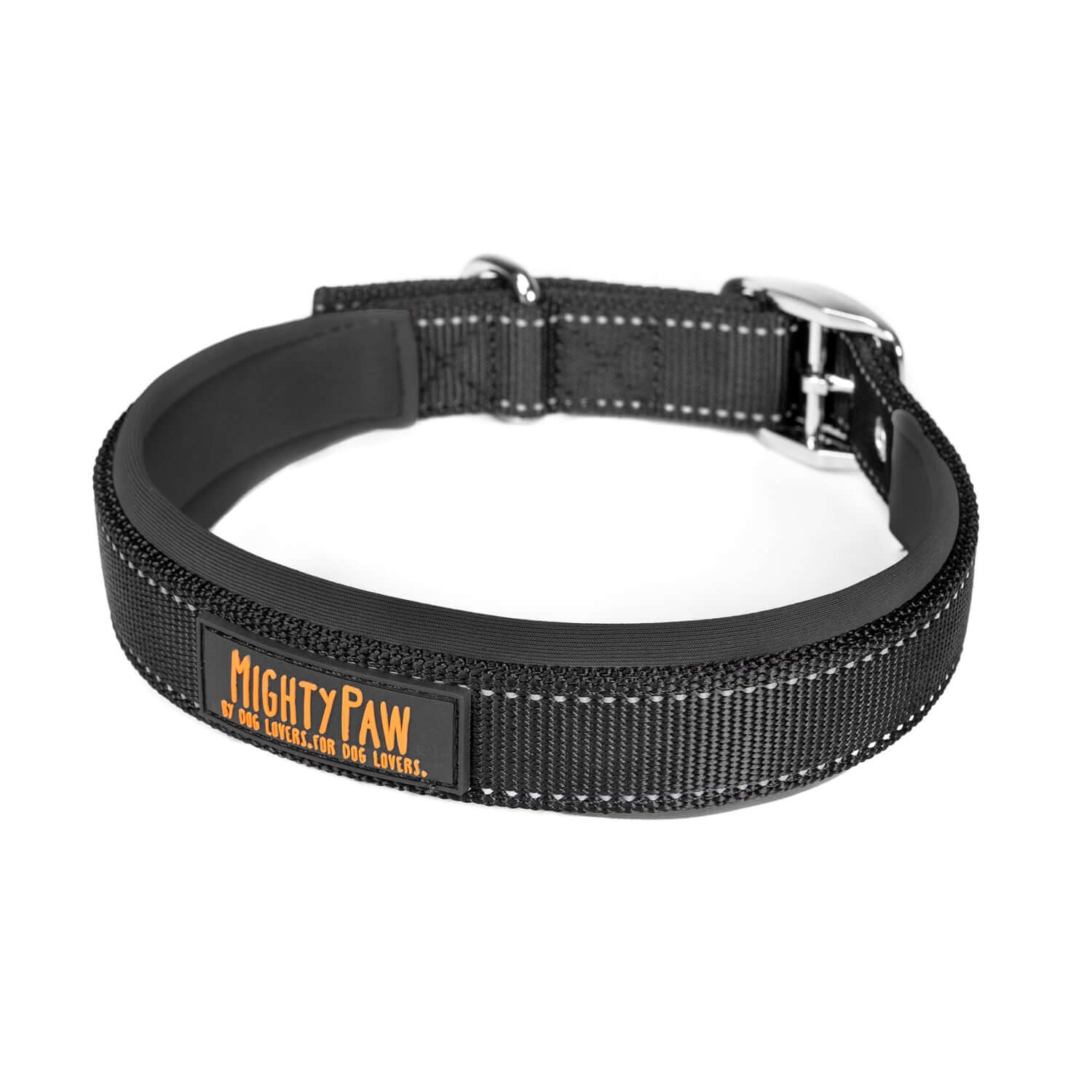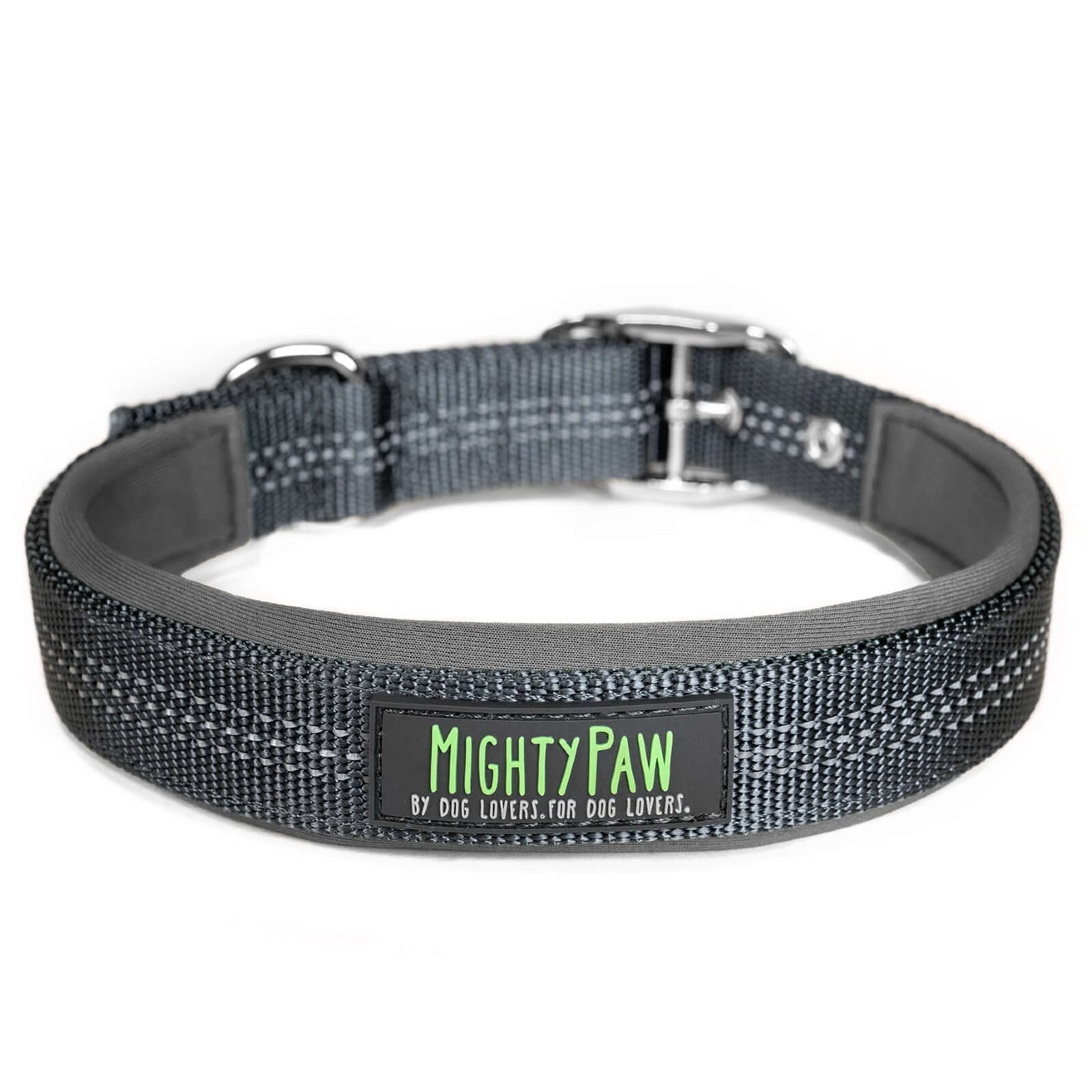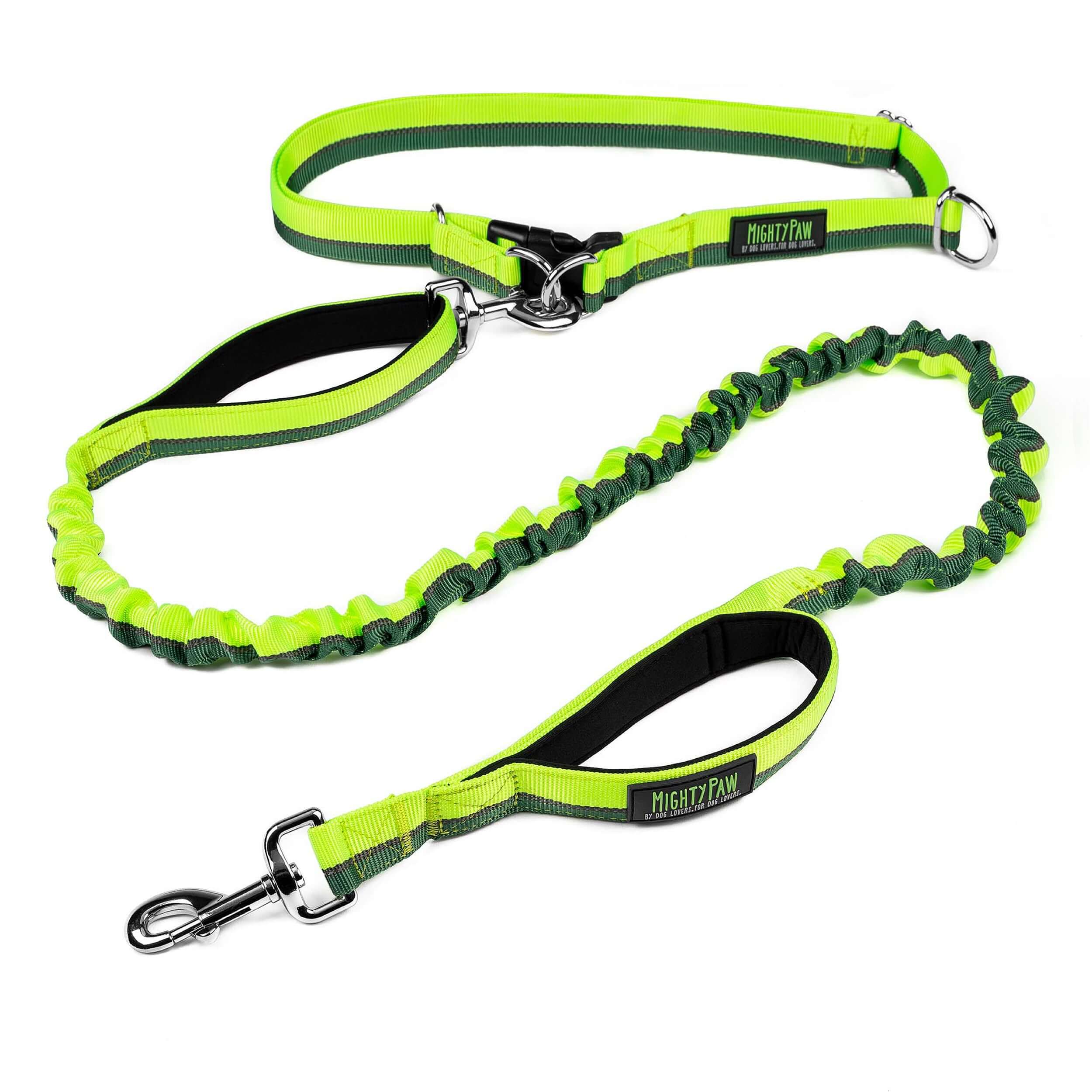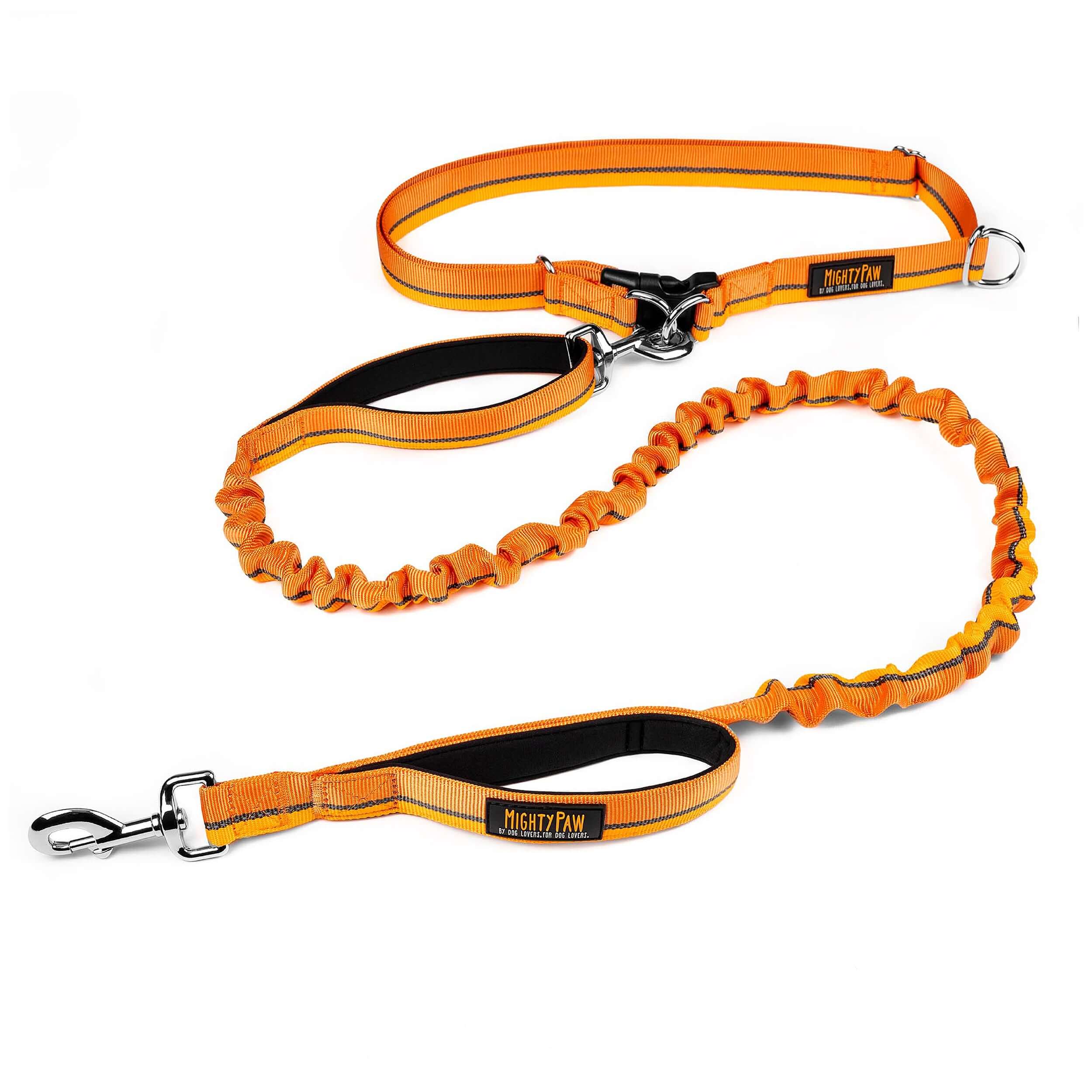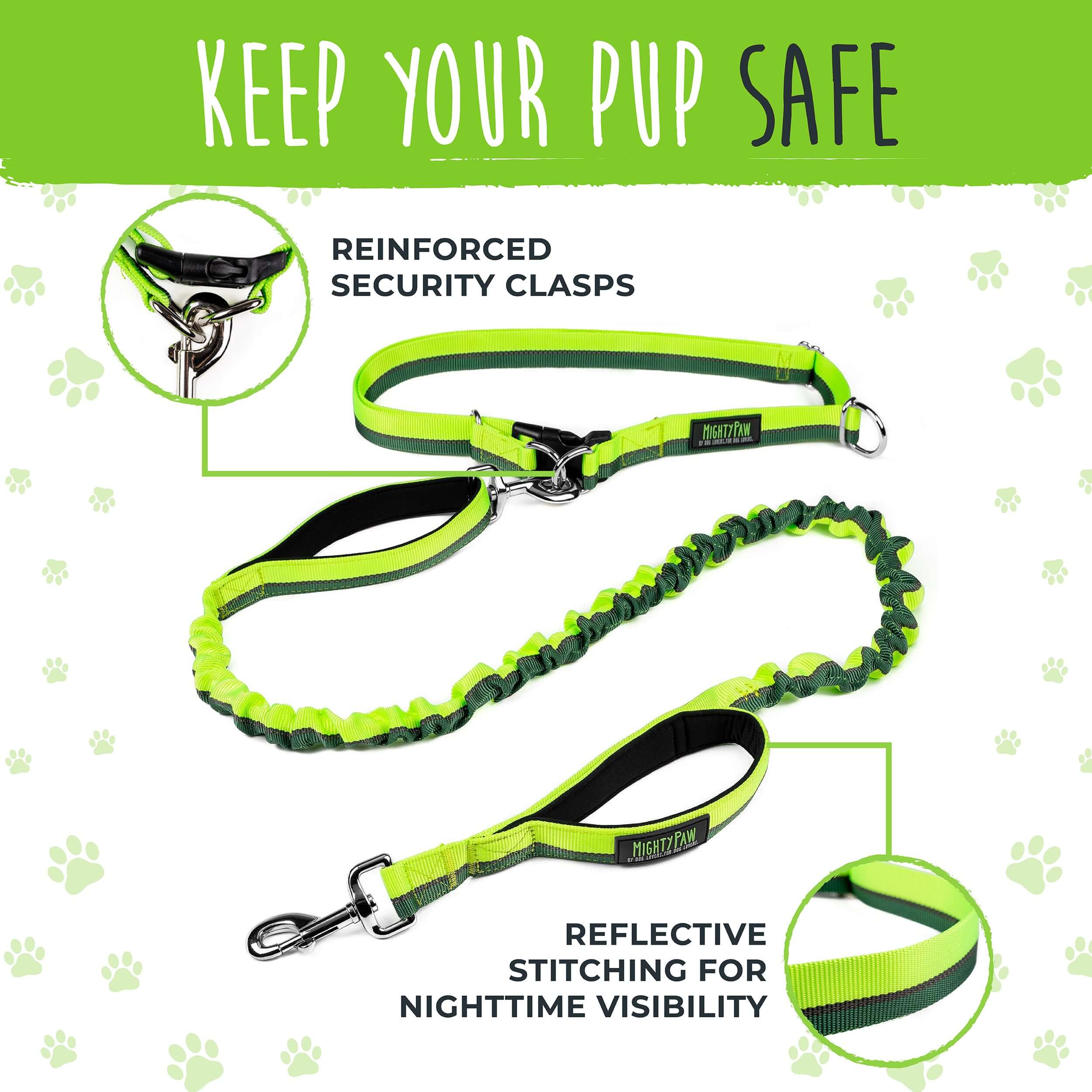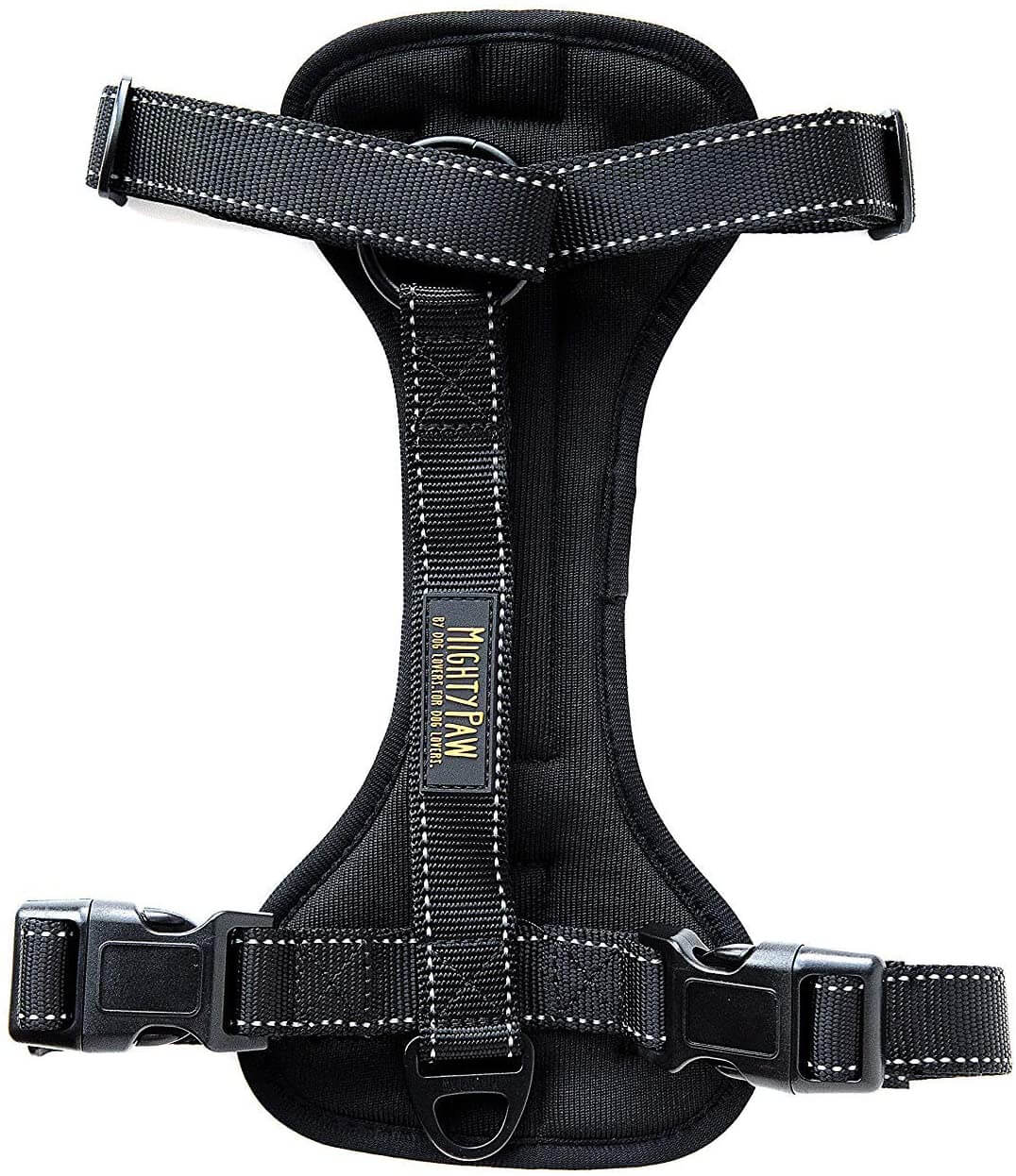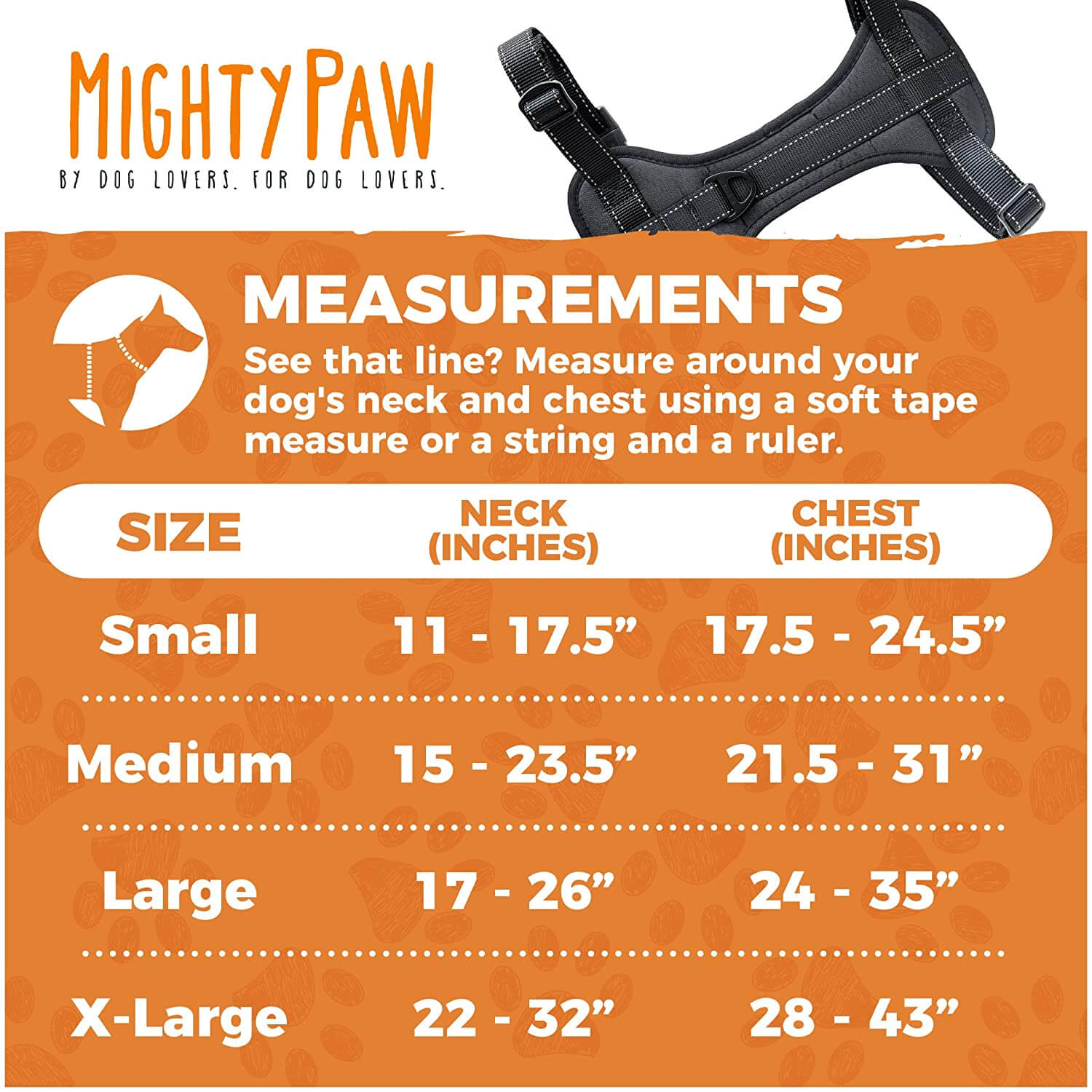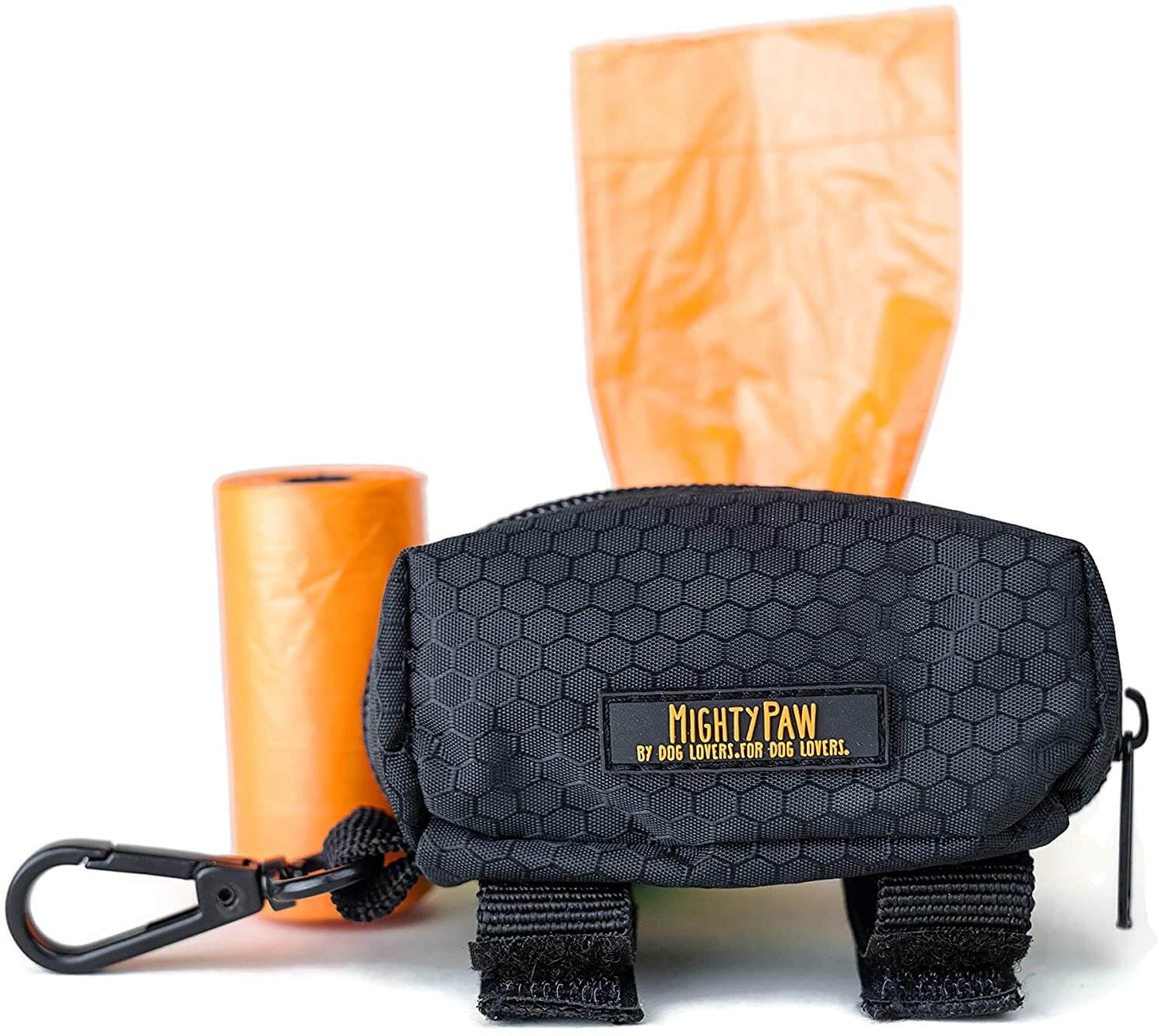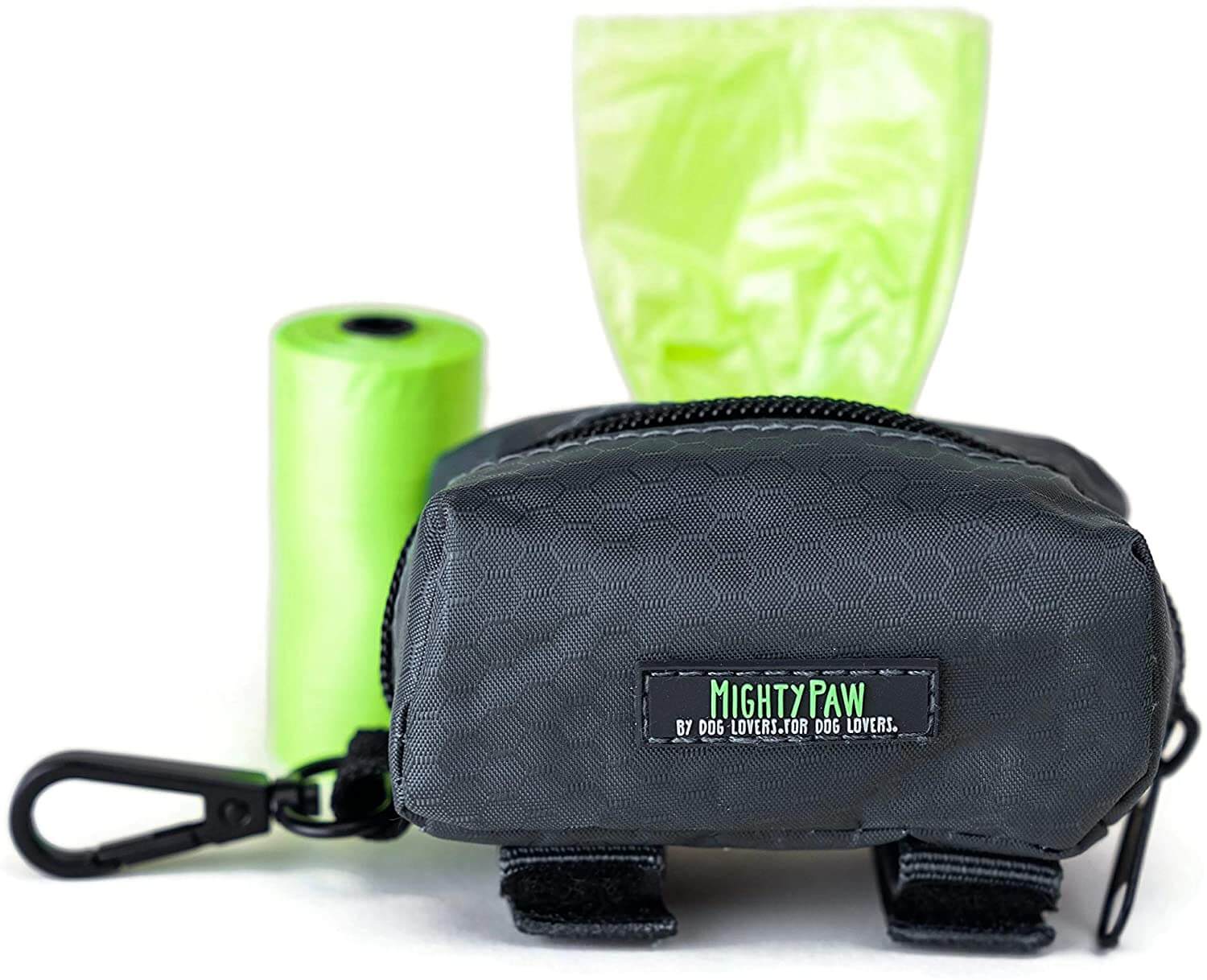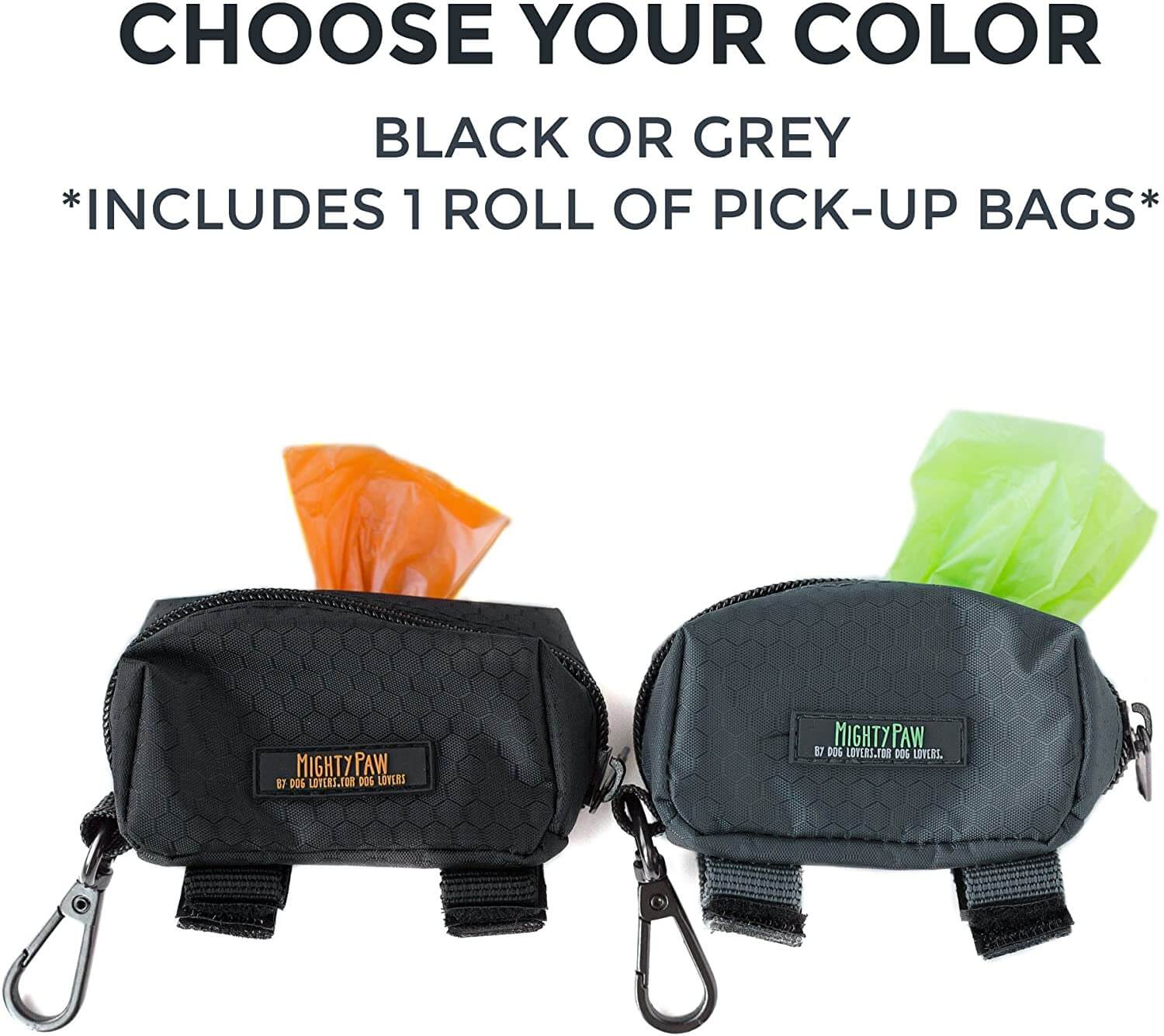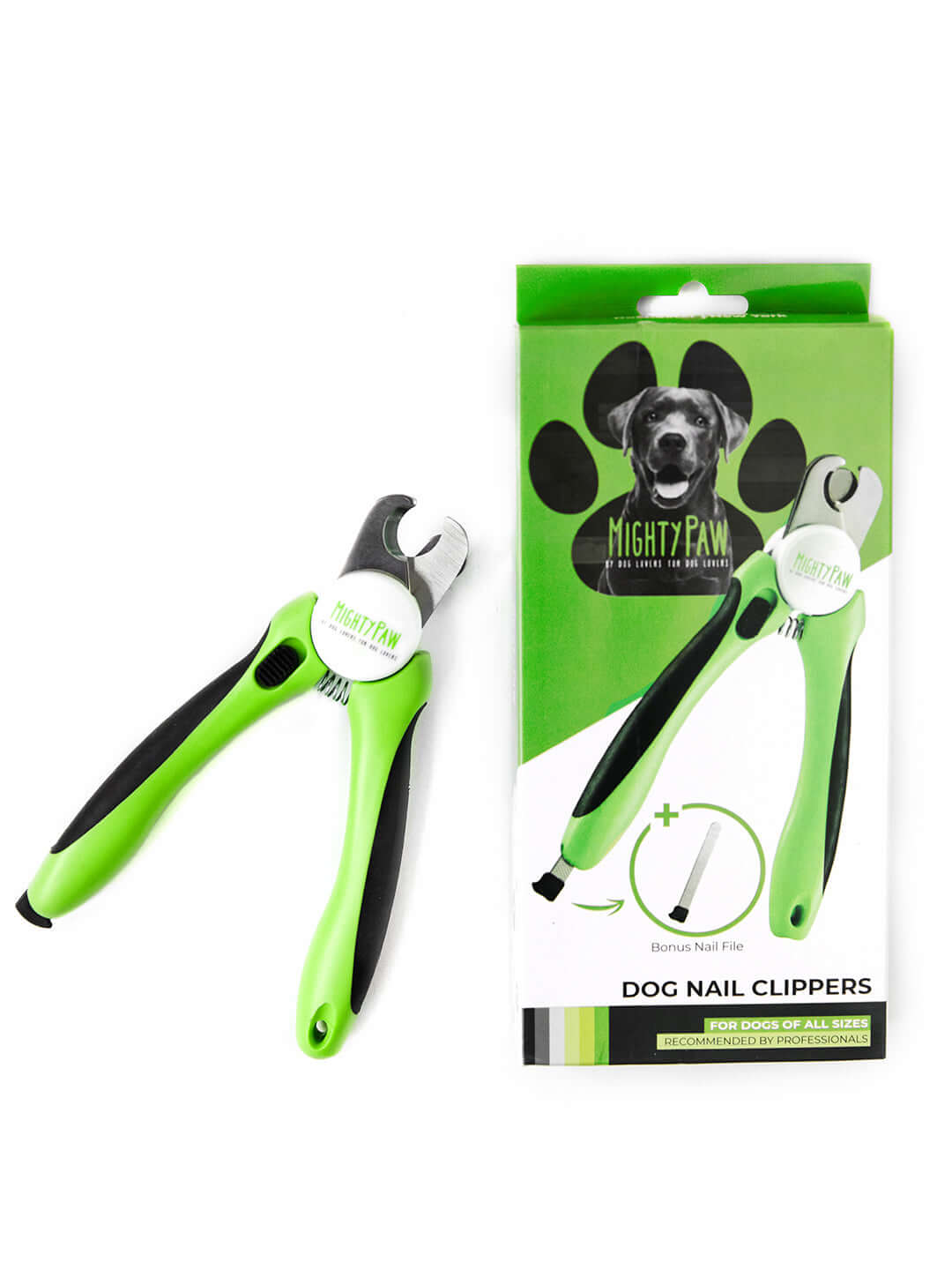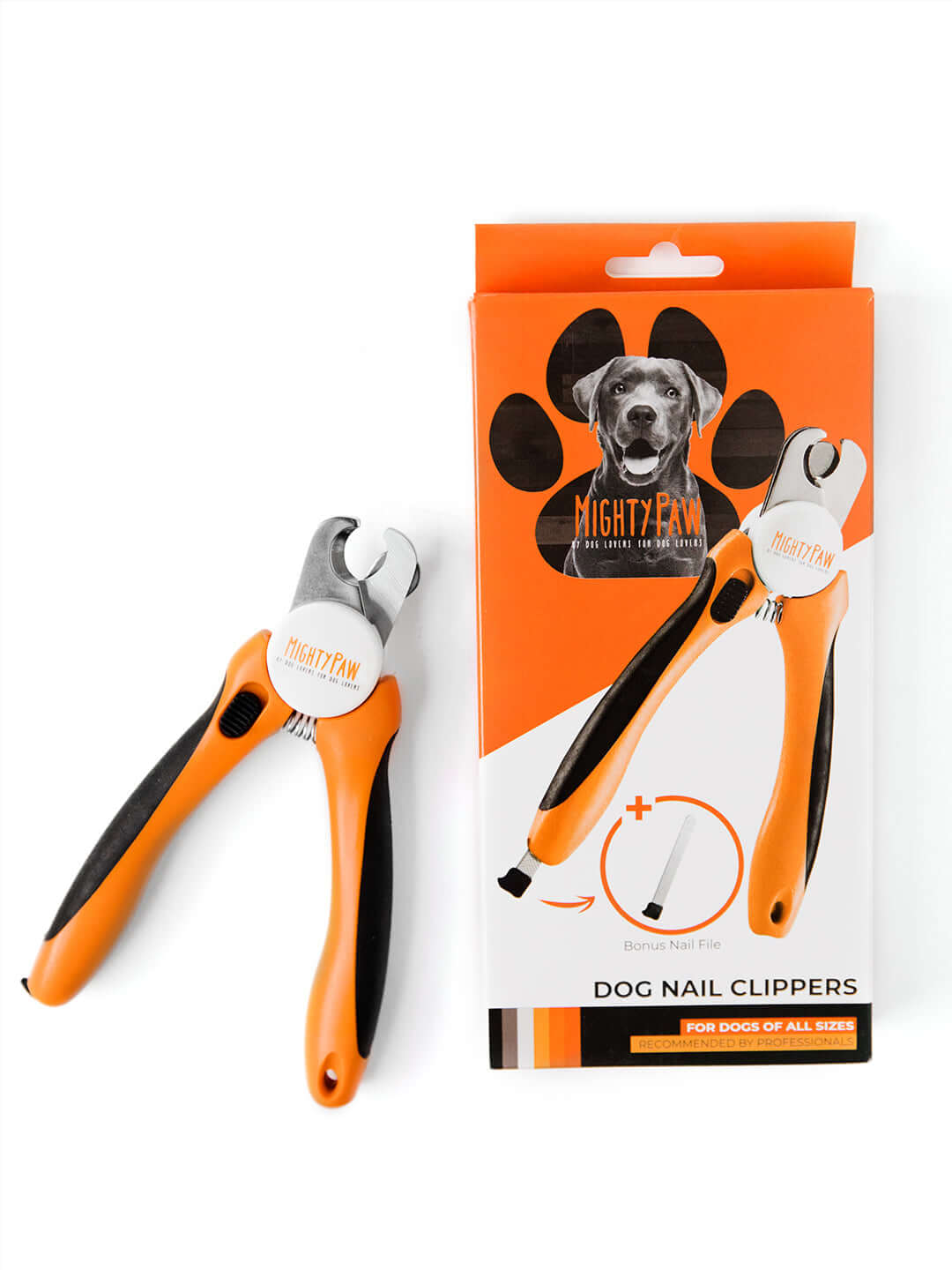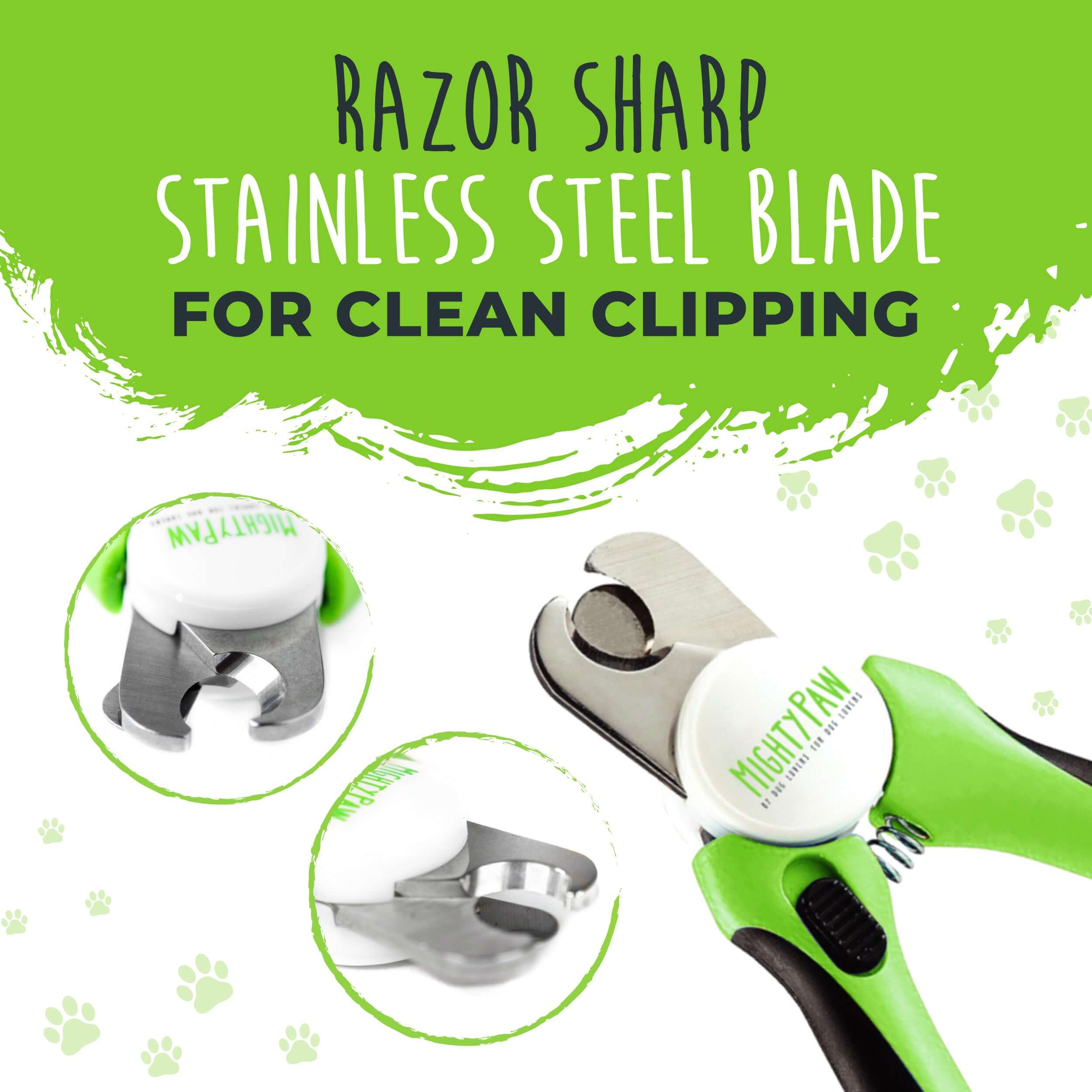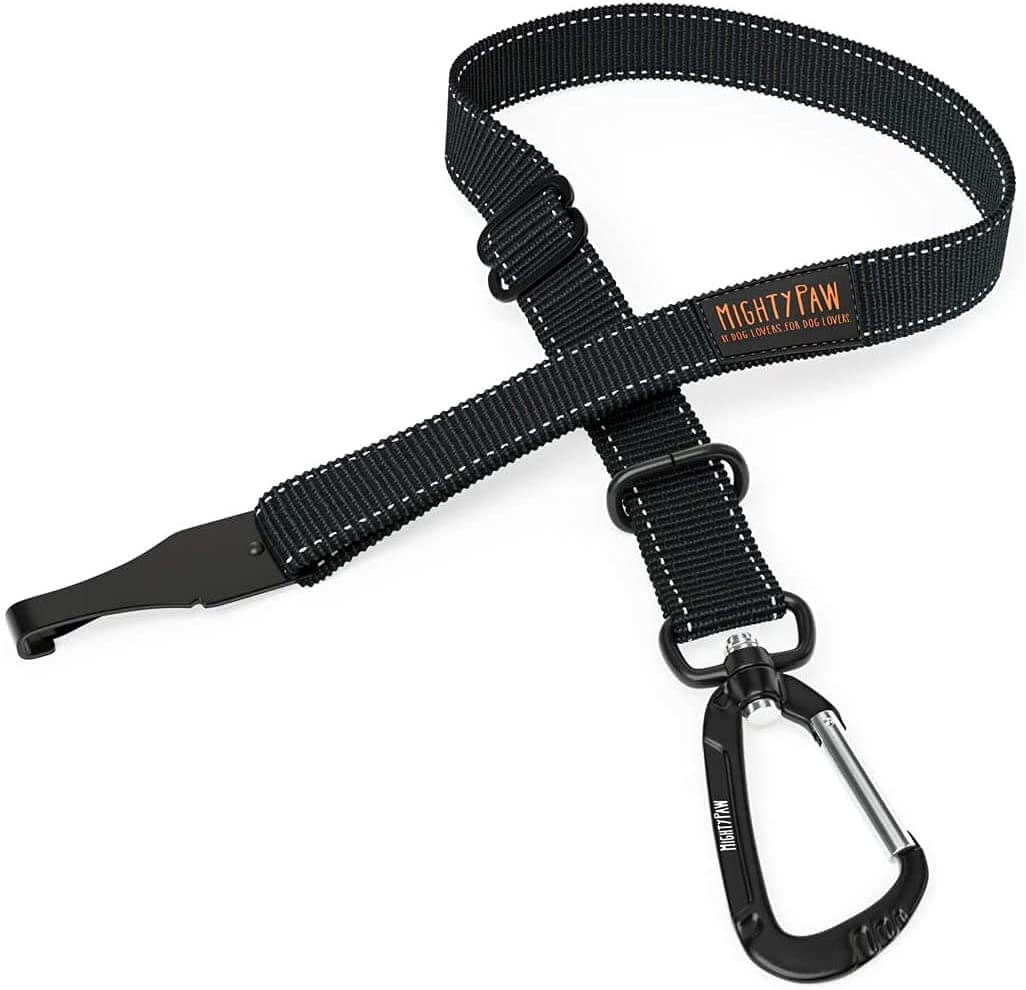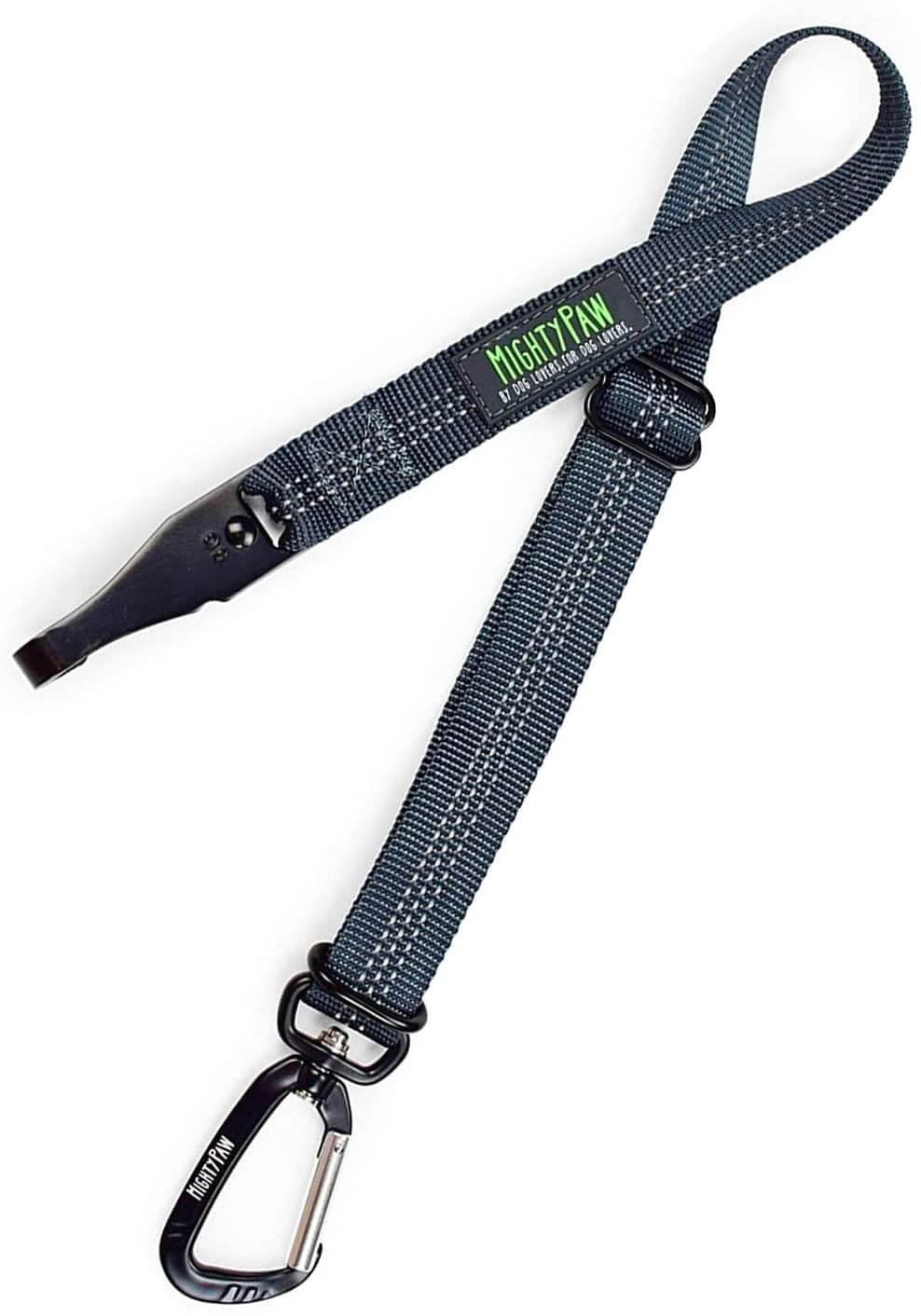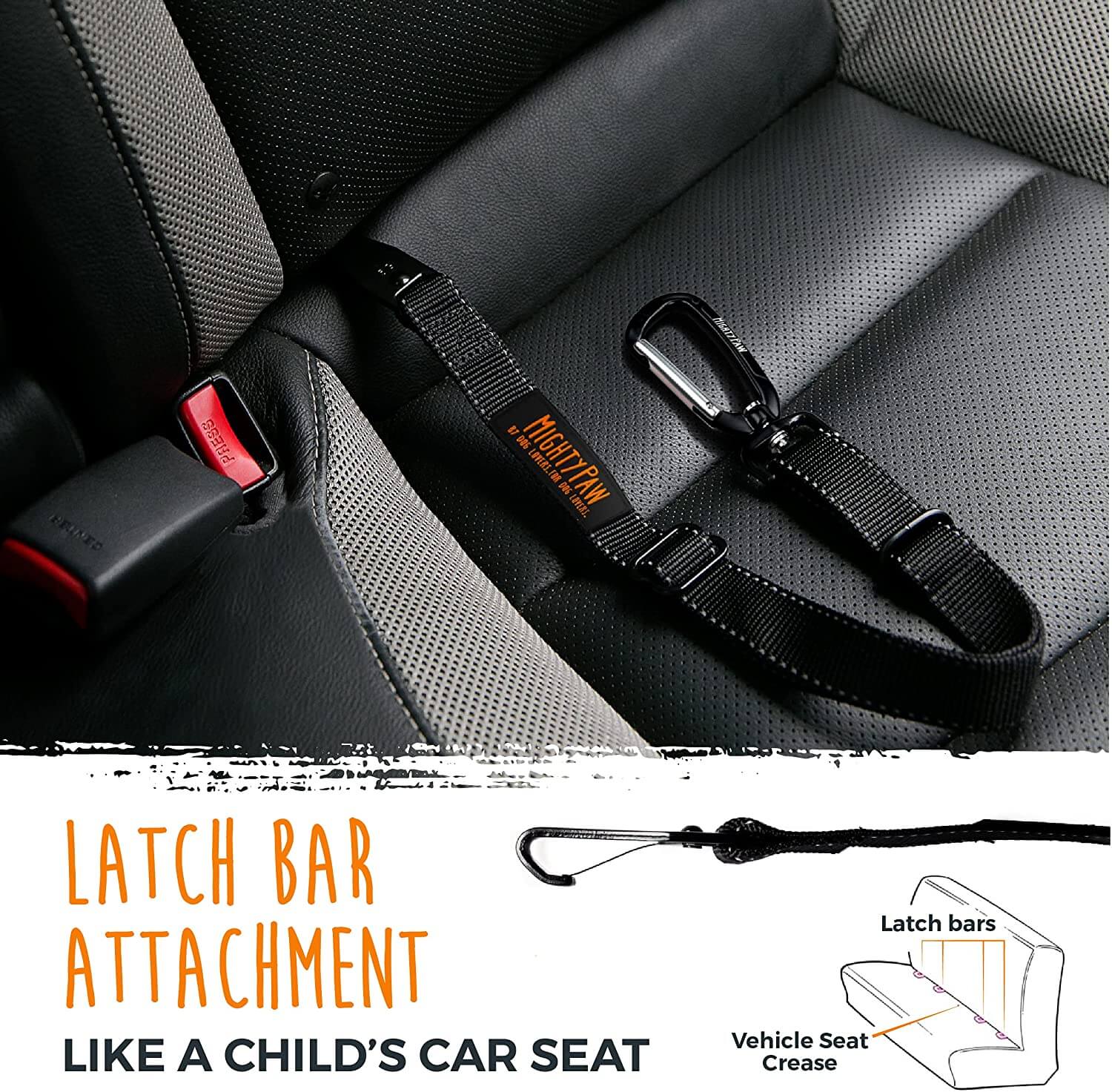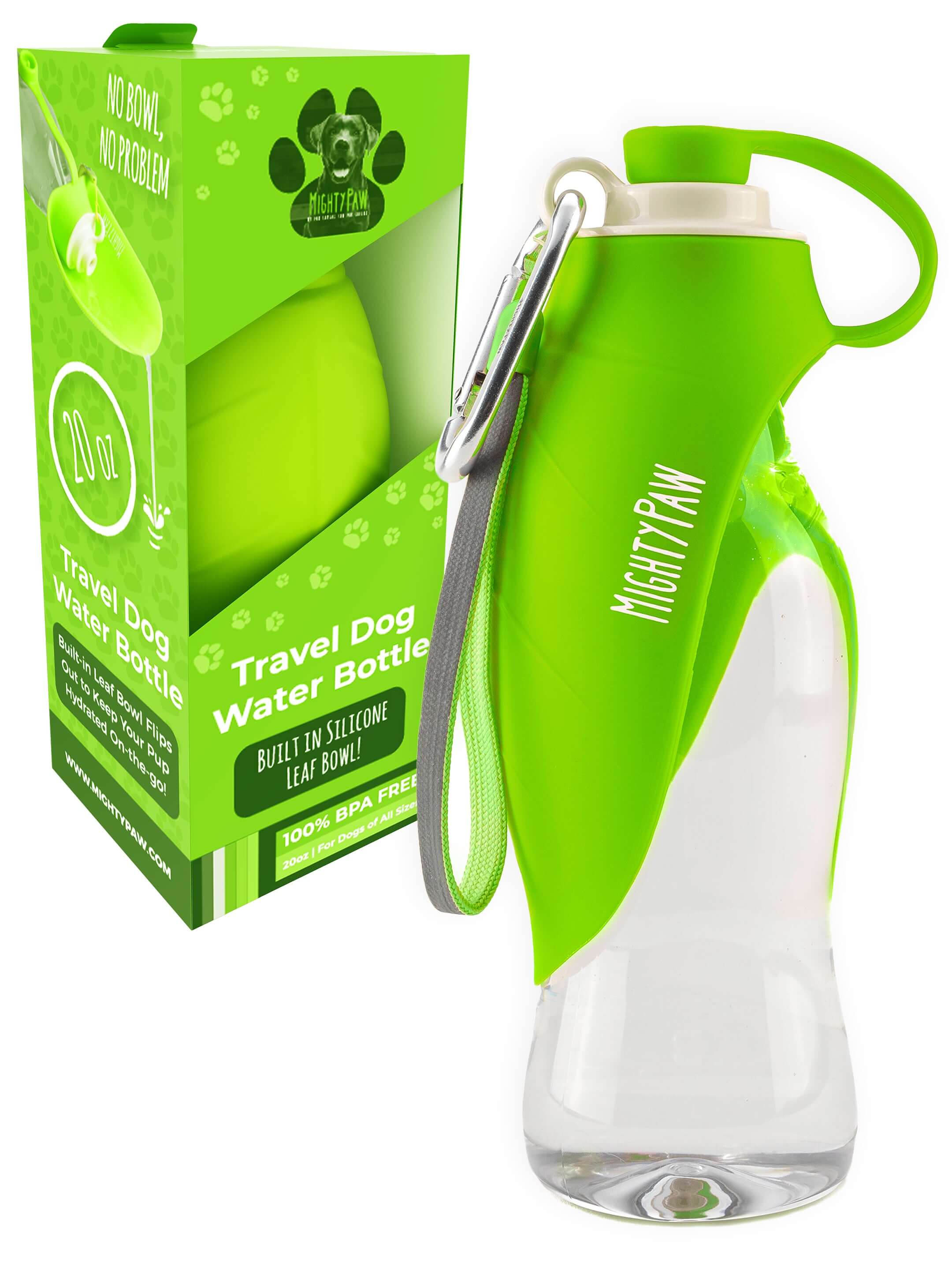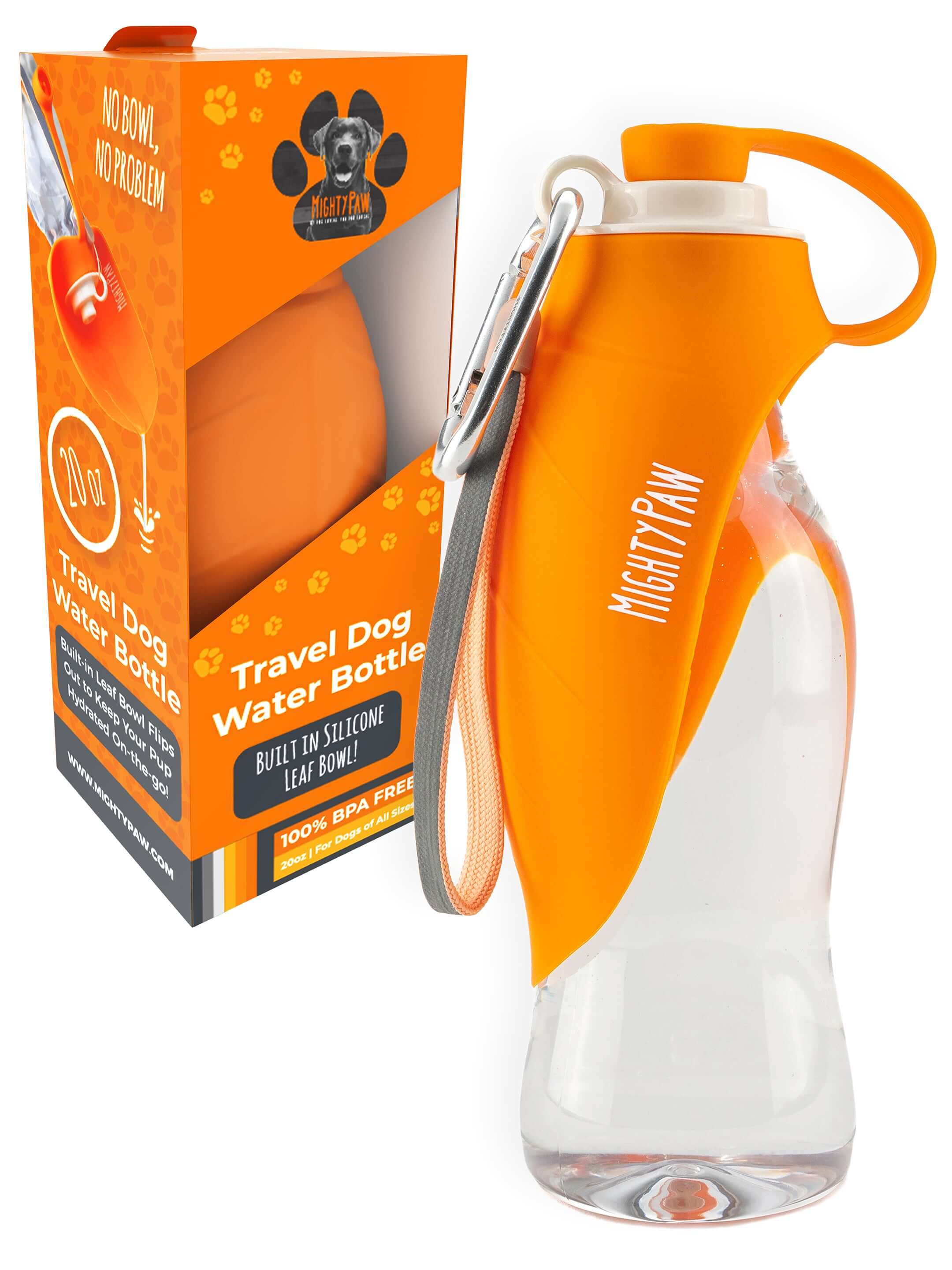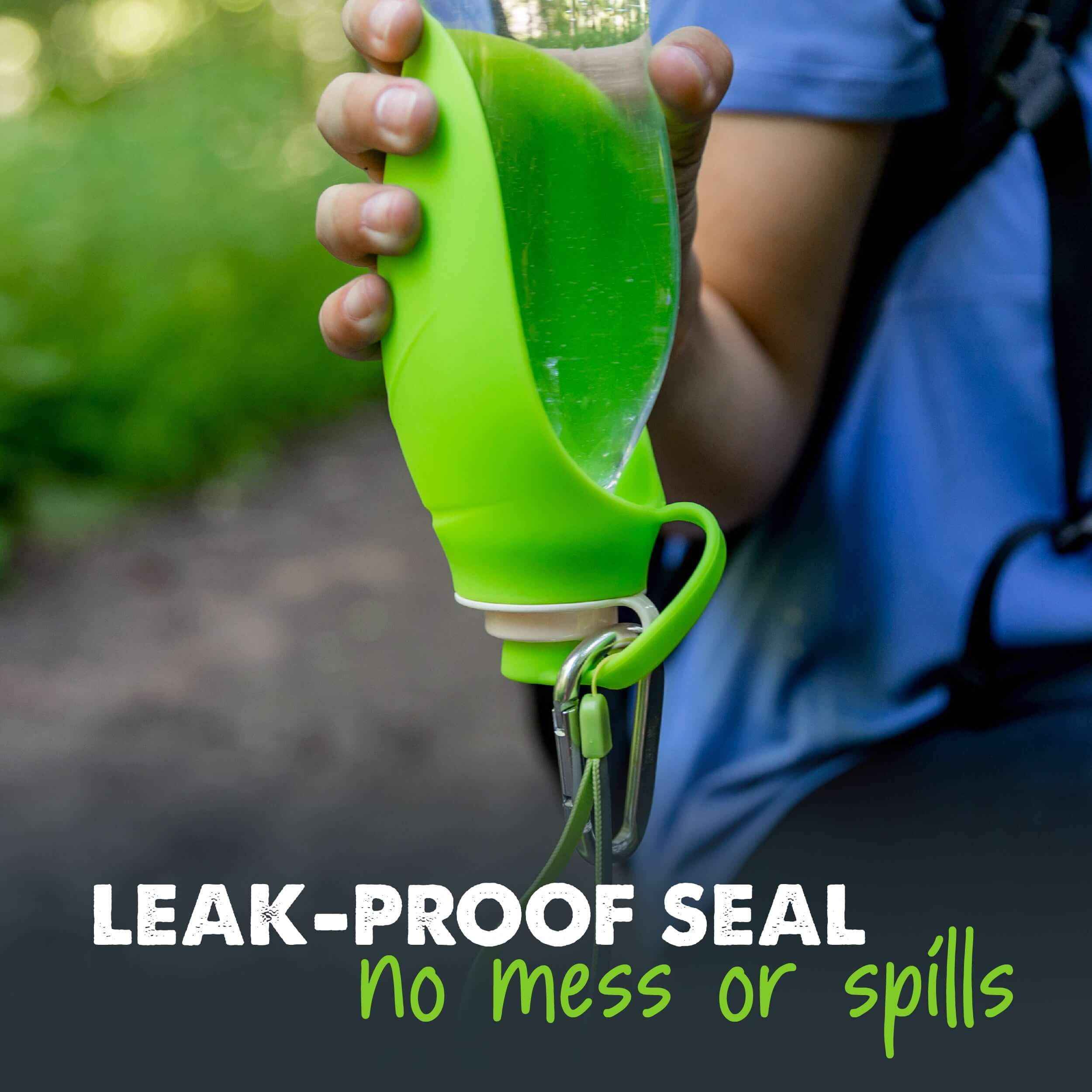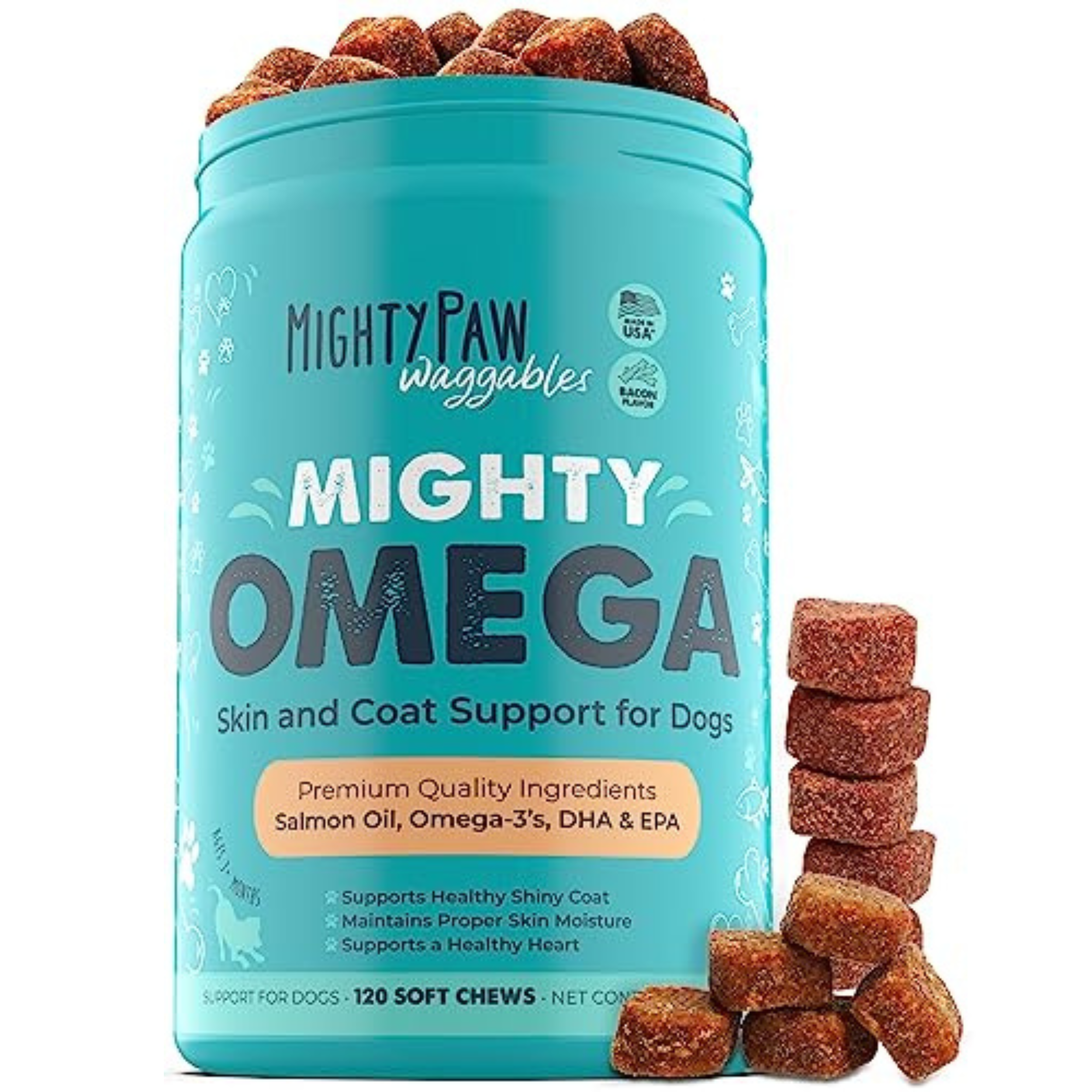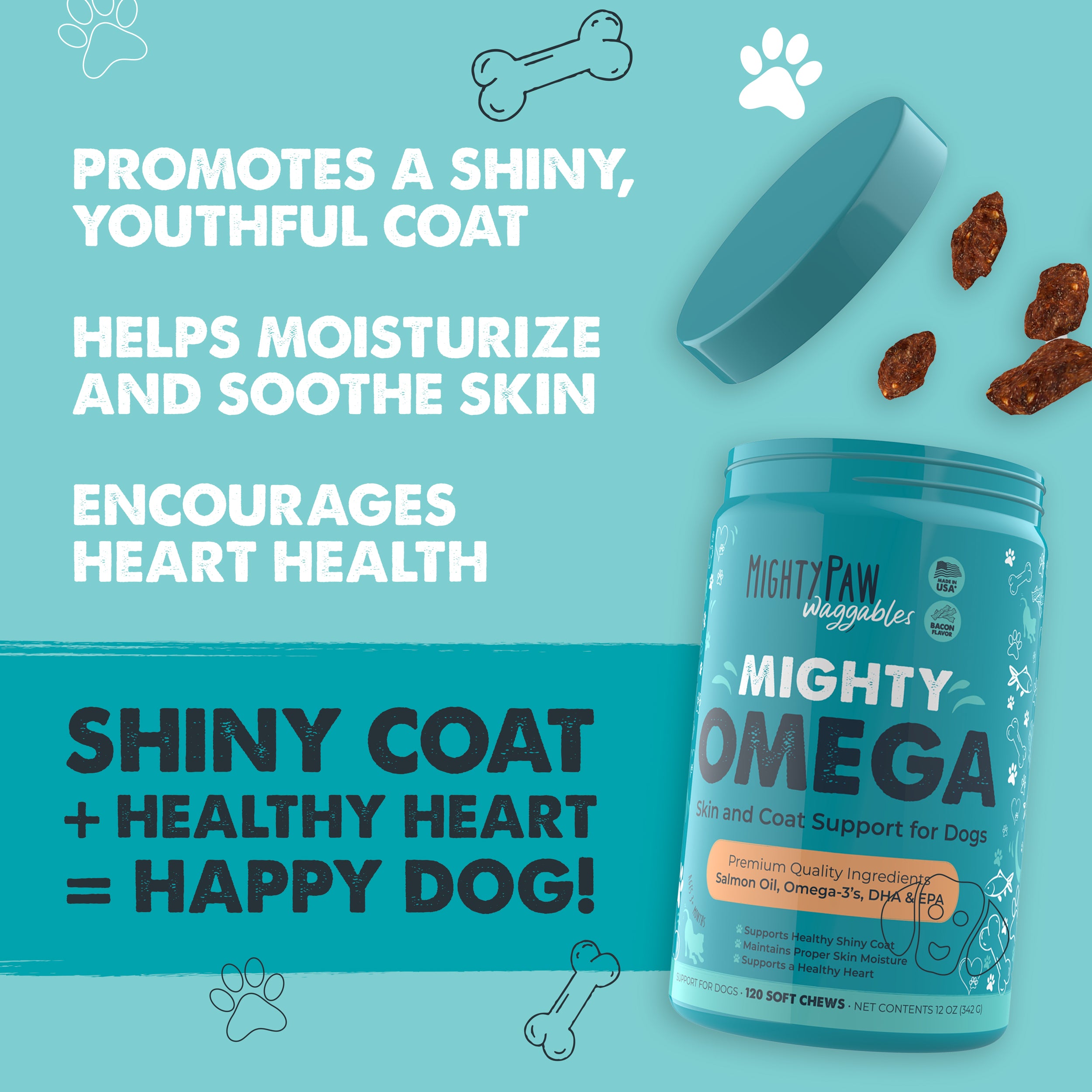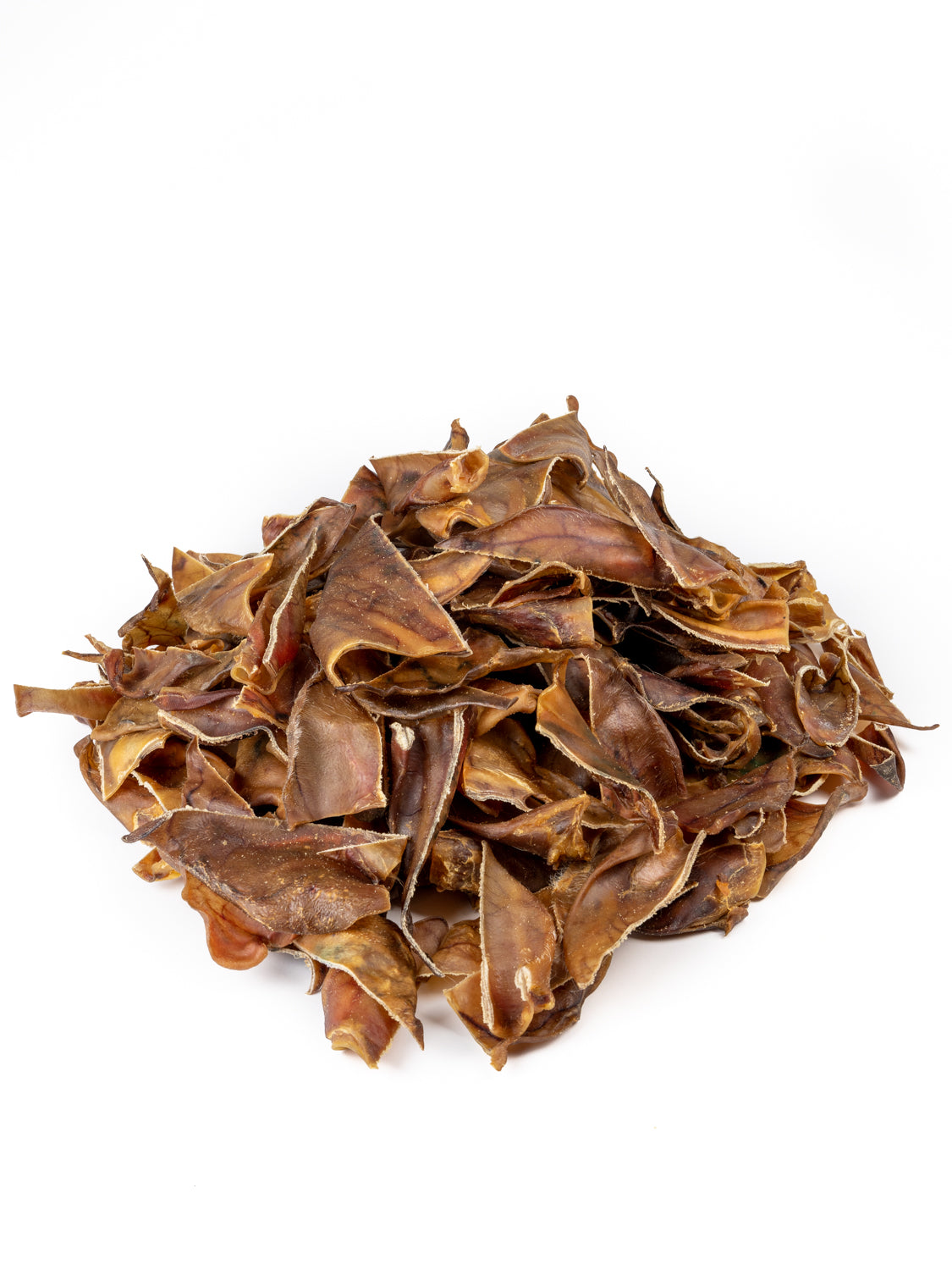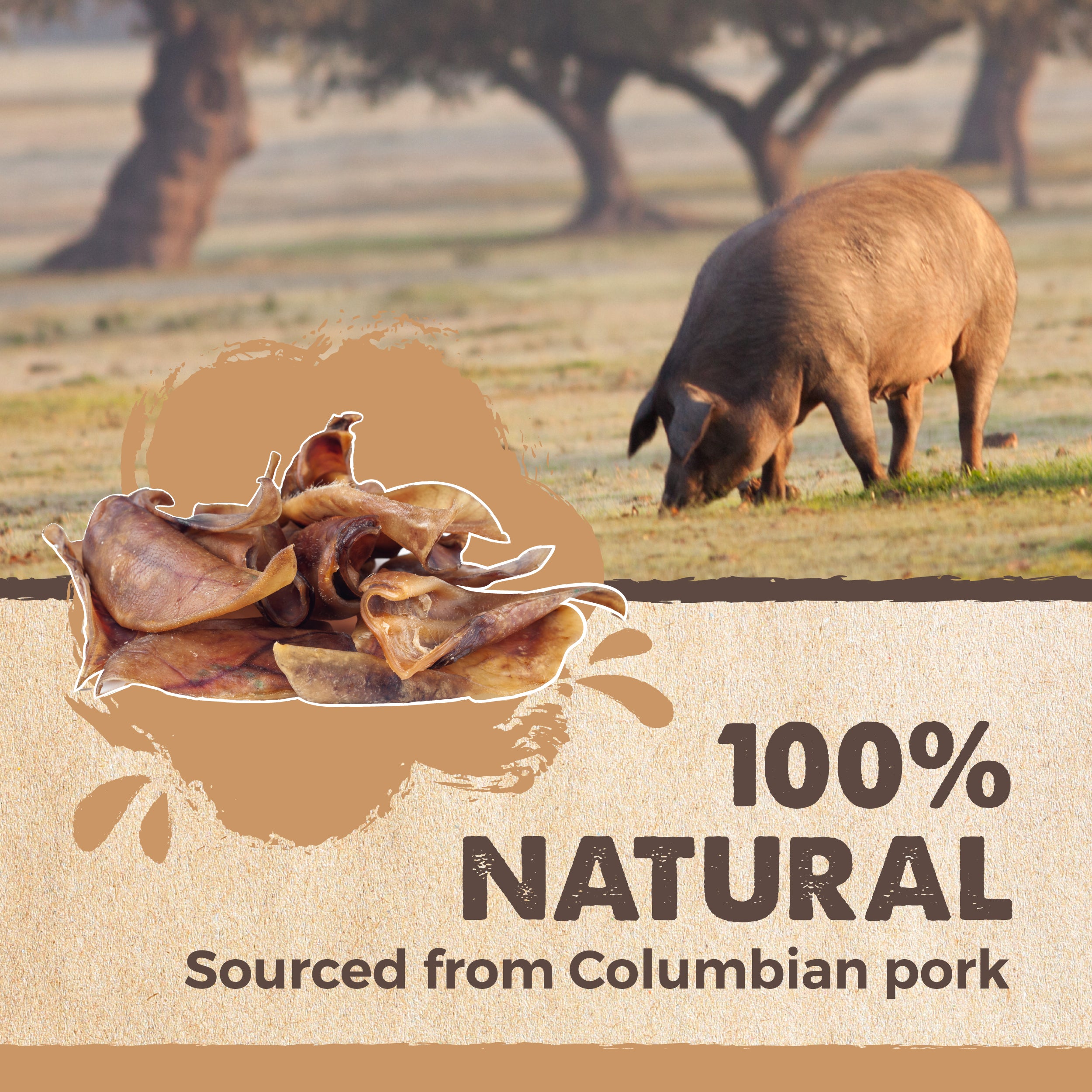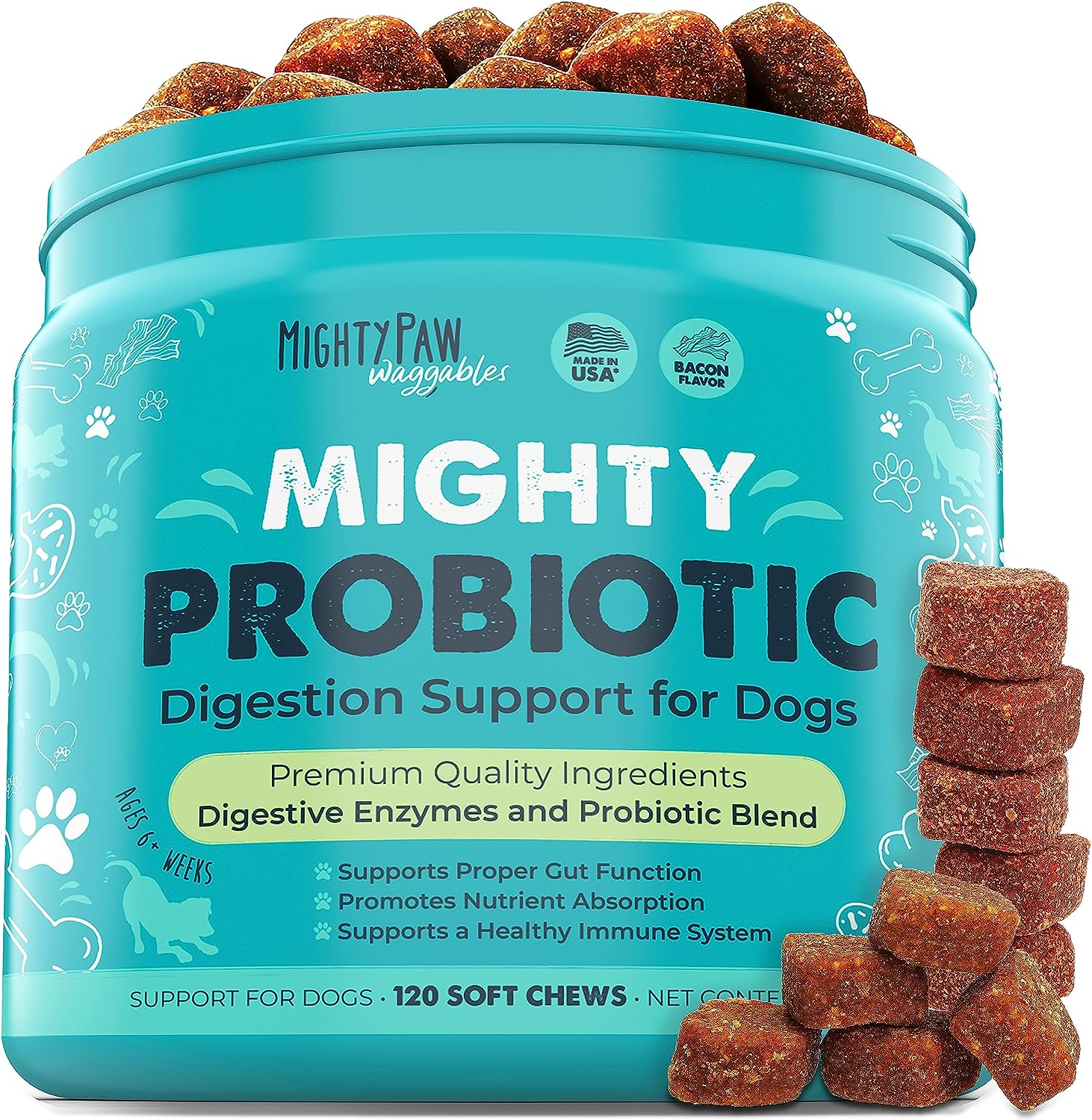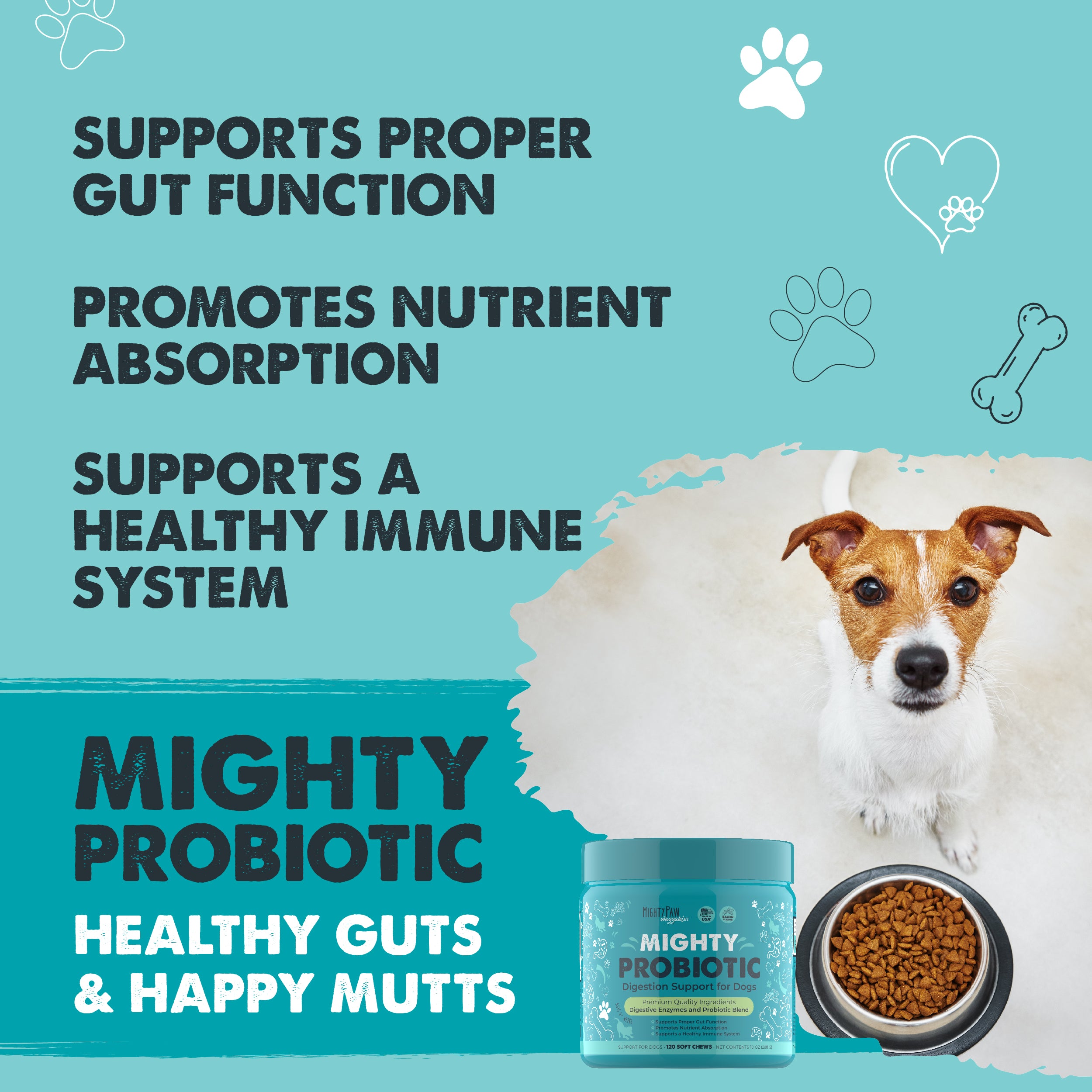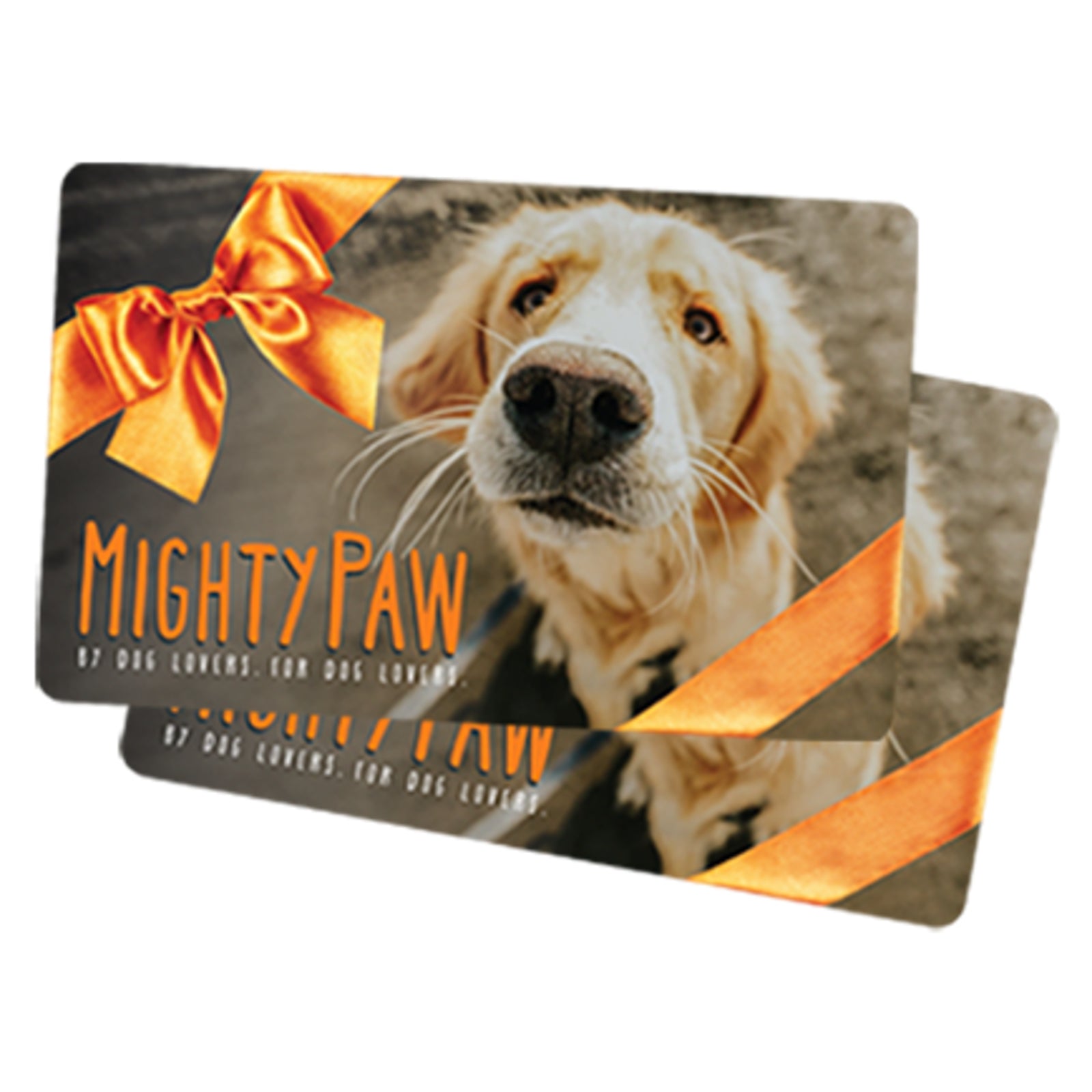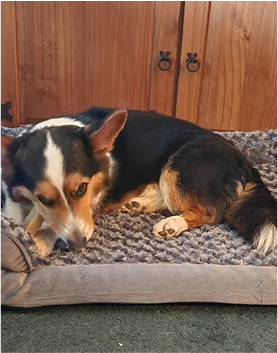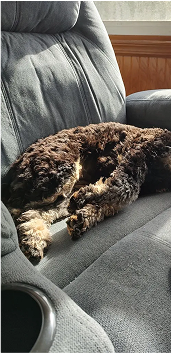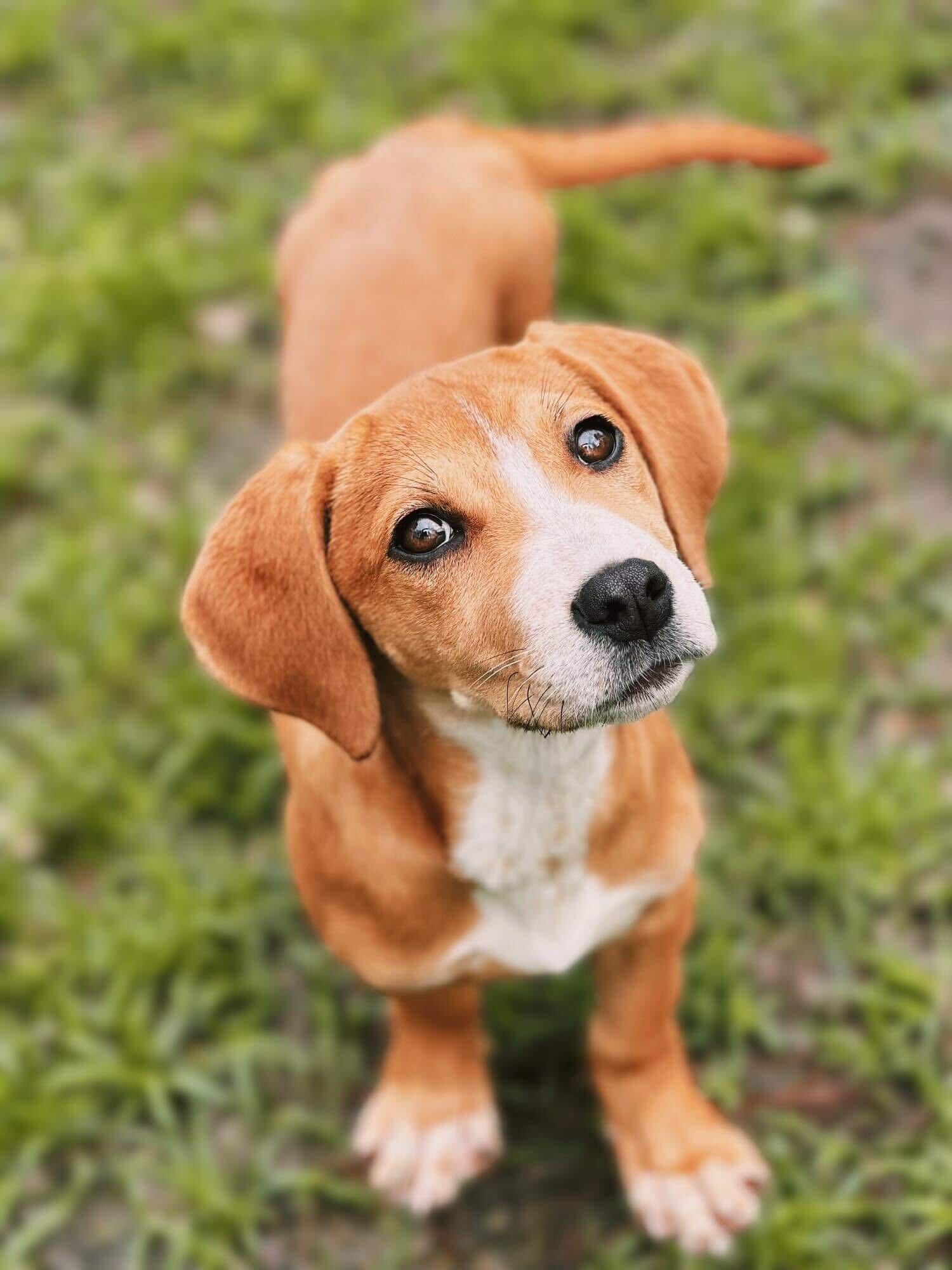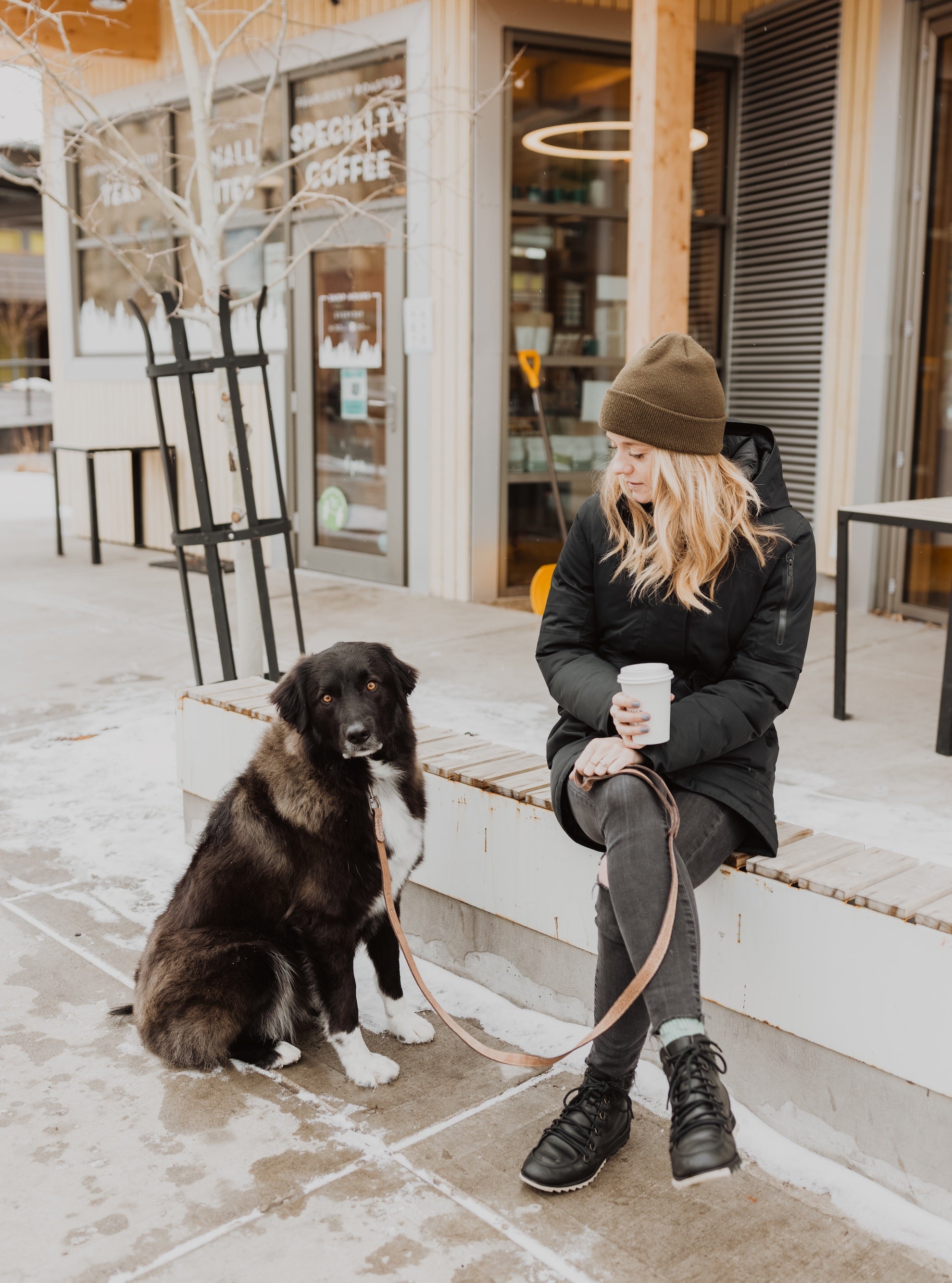Even if you're focused on eliminating the toxic and maximizing the good in your dog's life, it can be easy to overlook hazards lurking in your home.
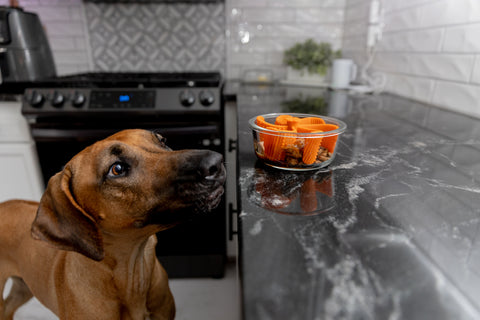
Many things are seemingly harmless, even good for their intended purposes, but highly toxic for dogs.
Although safety is a constant in dog parents' minds, Pet Poisoning Prevention Awareness Month is a good reminder and opportunity to sharpen your antenna for everyday things that can seriously harm your dog.
Let's jump into a refresher on some of the most common, most dangerous toxins to dogs all pet parents should know.
What's the #1 toxic threat sending dog parents to the pet poison helpline or emergency vet?
If you answered human OTC and prescription medications, you are right.
About one-quarter of all phone calls to the ASPCA Animal Poison Control Center are about accidental ingestion of human medications. All too quickly and easily, a dog can ingest a dropped pill or decide to chew a bottle within counter-surfing reach.
Here's what to keep top of mind:
1) Everyday over-the-counter medications
Our ubiquitous human pain relievers (NSAIDs/non-steroidal anti-inflammatory drugs such as ibuprofen; acetaminophen/such as Tylenol, for example) can cause seizures, coma, even death when a dog eats the smallest bite. Dangerous OTC medicines also include widely-used products such as cold and flu medication. All those many things we take for granted as part of daily life.
2) Human prescription medications
Prescription medications are equally dangerous for dogs. Both OTC and prescription medicines need to be securely stored up and away from dogs as well as taken with care to avoid any accidental pill drops or access for your dog to eat.
What about foods that are fine for us but potentially toxic to dogs?
Many human foods are simply not compatible with your dog's digestive system. They can make your dog sick to the point of causing various symptoms and conditions: permanent kidney damage, liver damage, other complications, and even death.
Common toxic food you want to be sure to keep away from your dog:
3) Grapes and raisins
Grapes and raisins can cause kidney failure in dogs. Ingestion of grapes and raisins can lead to symptoms such as vomiting, diarrhea, lethargy, and dehydration.
Some dogs may show no ill effects, while others can develop severe kidney issues with just a small exposure. You want to make sure you never let your dog eat even one grape, raisin, or any foods containing them (cinnamon bread, oatmeal cookies, or other tasty treats/baked goods).
4) Xylitol (artificial sweetener)
Xylitol is commonly found in sugar-free chewing gum, mints, toothpaste, and even some peanut butters. It can cause a rapid release of insulin in a dog's stomach and body, which leads to a severe drop in blood sugar—potentially resulting in weakness, lethargy, seizures, and, in the worst case, liver failure.
Always check the labels of your sugar-free products and never give your dog human toothpaste or medications without consulting your vet.
Keep an eye out for old gum on sidewalks during your dog walks (yuck, in addition to being deadly). And if your dog loves peanut butter, stock up on a healthful, unsalted peanut butter made specifically for dogs with no xylitol, no anything but wholesome peanut butter.
Why unsalted peanut butter? Too much salt and salty foods of any kind create their own risks for dogs. All reasons we created our Bark'n Butter specifically for dogs.
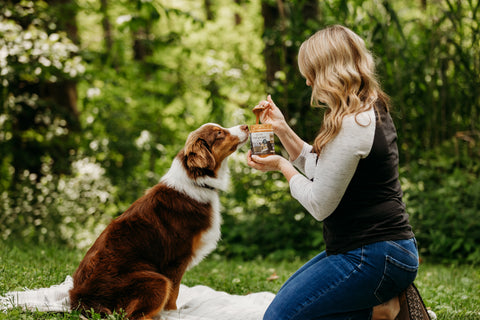
5) Chocolate
One of the most well-known foods toxic to dogs is chocolate. That's because chocolate contains theobromine, a compound dogs metabolize more slowly than humans. When consumed in large quantities, it can lead to various symptoms, including vomiting, diarrhea, hyperactivity, tremors, seizures, and even death.
Dark chocolate and unsweetened baking chocolate are the most potent due to their high theobromine content, but milk chocolate, though it's lower in theobromine, should be off-limits as well. Dogs are also more sensitive than humans to the caffeine found in chocolate that can result in dangerously overstimulating their heart rates.
6) Macadamia nuts and walnuts
Macadamia nuts are one of the few foods considered poisonous to dogs even in the most minimal amounts. Walnuts, particularly black walnuts, are also highly toxic to dogs. Symptoms include weakness, depression, vomiting, tremors, joint stiffness, and hyperthermia. Fortunately, most dogs can recover with supportive care like fluid therapy and pain management.
7) Onions and garlic
Onions, garlic, chives, and leeks belong to the allium family and can cause damage to a dog’s red blood cells, resulting in anemia. While it's more common for symptoms to develop after a large exposure, even small amounts (including garlic and onion powder) over time can accumulate and be harmful.
Signs of onion or garlic poisoning may include weakness, pale gums, and decreased appetite. Be cautious of table bites you might feed your dog or the use of these ingredients in unexpected places, like seasoning on a seemingly harmless dish.
8) Caffeine
Surprisingly enough, some dogs will try to snag your coffee given a chance and maybe not so surprisingly will go for the garbage and ingest coffee grounds. If that sounds like your dog, it's worth knowing that caffeine in any form, from coffee, highly concentrated coffee grounds, energy drinks, and chocolate, is toxic for dogs.
It's a stimulant and can cause a dog's heart to race, resulting in restlessness, rapid breathing, heart palpitations, and tremors. More severe cases can lead to collapse and death. Signs of caffeine poisoning can appear within one to two hours of ingestion.
9) Alcohol
Alcoholic beverages and food products containing alcohol can cause intoxication and alcohol poisoning in dogs. Ingestion can lead to depression of the central nervous system, poor coordination, vomiting, diarrhea, difficulty breathing, coma, and even death. Symptoms vary depending on the amount consumed relative to the dog's size.
10) Moldy foods and tempting garbage finds
Molds produce toxins called mycotoxins. The types of mycotoxins encountered in moldy food can lead to symptoms ranging from sluggishness and tremors to convulsions and even death. Always discard any food that has begun to grow mold and keep your pantry or garbage out of reach.
On the subject of keeping garbage out of reach, another good reason is to protect your dog from ingesting raw potatoes and raw, peeled potato skins. They contain a substance called solanine (not a factor in cooked potatoes); Solanine poisoning can cause heart problems, difficulty breathing, and gastrointestinal upset.
The raw potato and skins also contain chaconine that can cause irritation to the digestive tract, nervous system symptoms (tremors), and kidney disorders.
11) What about avocado?
You'll sometimes see avocado on lists of harmful foods for dogs when there's actually a lot of good in avocados. It's the skin and leaves that contain a harmful concentration of persin which can be toxic. The pit is a choking hazard as is the pit of any fruit.
Meanwhile, the flesh of the avocado is loaded with nutrients and good fats. A little goes a long way, so you only need a spoonful or so to give your dog the benefits. (Do avoid if your dog is on a low-fat diet for digestive issues with processing fats.) Enjoy avocado with your pup -- just make sure any skins or pits are out of reach for counter-surfers or would-be garbage snackers!
For a little more myth-busting, you might have heard you should be wary of raw meat and raw eggs. In fact raw or lightly cooked meat and eggs can be great sources of protein and other important nutrients.
Dogs' carnivorous digestive systems are different and more acidic than humans' and are wired to safely process raw meats. You may want to steer clear of poultry if you're feeding your dog raw, but raw meat and eggs properly sourced are often recommended by canine nutritionists.
What house, garden, and garage items are especially toxic for dogs?
Key products to be especially cautious about or eliminate entirely and replace with safer options:
12) Chemical lawn and garden pesticides, weed-killers, fertilizers
Ingestion of any of these spilled in the garage or in your yard can create an emergency situation, while over time exposure to paws, skin, sniffing noses contributes to diseases and sometimes severe allergies.
13) Rat and mouse poison
Rat poison and other rodenticides kill rats and mice but can also be fatal to dogs. Curious dogs have a way of sniffing out things we may think we've hidden well, so the safest course is to skip rodent poison and explore more dog/everyone-friendly solutions.
14) Antifreeze
Sadly and frighteningly, antifreeze can be fatal for dogs very quickly. Even if your dog eats/drinks/licks the smallest amount of antifreeze, severe poisoning can result. Ethylene glycol (the deadly ingredient in antifreeze) has a sweet taste so dogs might explore, sniff, and lick it intentionally. Even walking through antifreeze is a risk if your dog licks his/her paws afterward.
Any antifreeze spilling over or dripping in your driveway or garage can put your dog at serious risk. It's important to be extremely vigilant about use and storage of antifreeze anywhere near where your dog might be.
It's a good thing to remember for these last three poisons, to be aware of your neighbors' lawns, driveways, etc. as well. Many unfortunate stories come from a dog venturing onto a neighbor's property who might not be thinking about safest practices and exposure for dogs, cats, and other beings (including children).
Toxic Food Prevention Tips
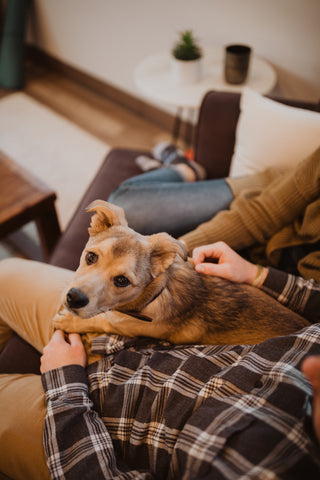
Preventing an accidental poisoning of your dog is far easier than treating the symptoms. Here are some key prevention tips to feeding foods that are toxic to dogs to keep in mind:
- Do your research before sharing food with your dog, and make sure everyone (including kids!) knows the rules.
- Store all toxic food well out of your dog's reach, in a place where your pup can't accidentally knock over or break the containers. That goes for garbage as well.
- During holidays or events or anytime more people are around, be extra vigilant about any foods toxic to dogs around the house. Or don't even serve foods that could be toxic for your dog if dropped on the floor or left on a low table.
- Consider enrolling in a pet first aid and CPR class so you and other household members can be prepared in the event of an emergency. It's always good to have theses skills ready to call on.
- Pick a visible spot to keep the number of the ASPCA Animal Poison Control Center (888-426-4435) handy.
Stay safe and enjoy every moment with your happy, healthy dog!
At Mighty Paw, we believe in keeping all dogs at their healthiest physically and emotionally -- to make the most of every adventure large and small with you. That's why we're dedicated to finding ways to help you bring more wellness and fun to your dog's life.
We're committed to providing high-quality products that are safe, durable, and practical for everything you need to keep your pup healthy, happy, and enjoying every moment by your side.

